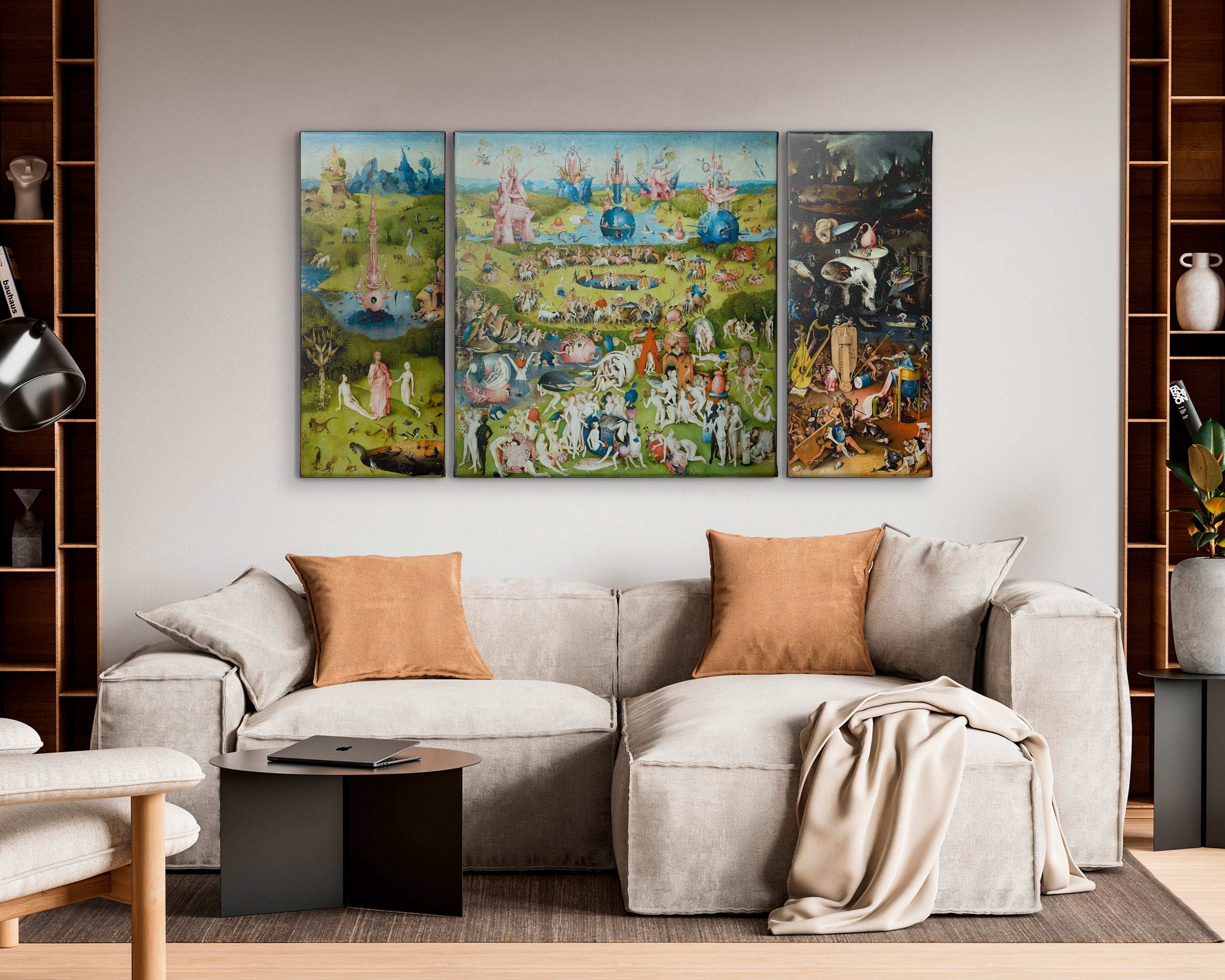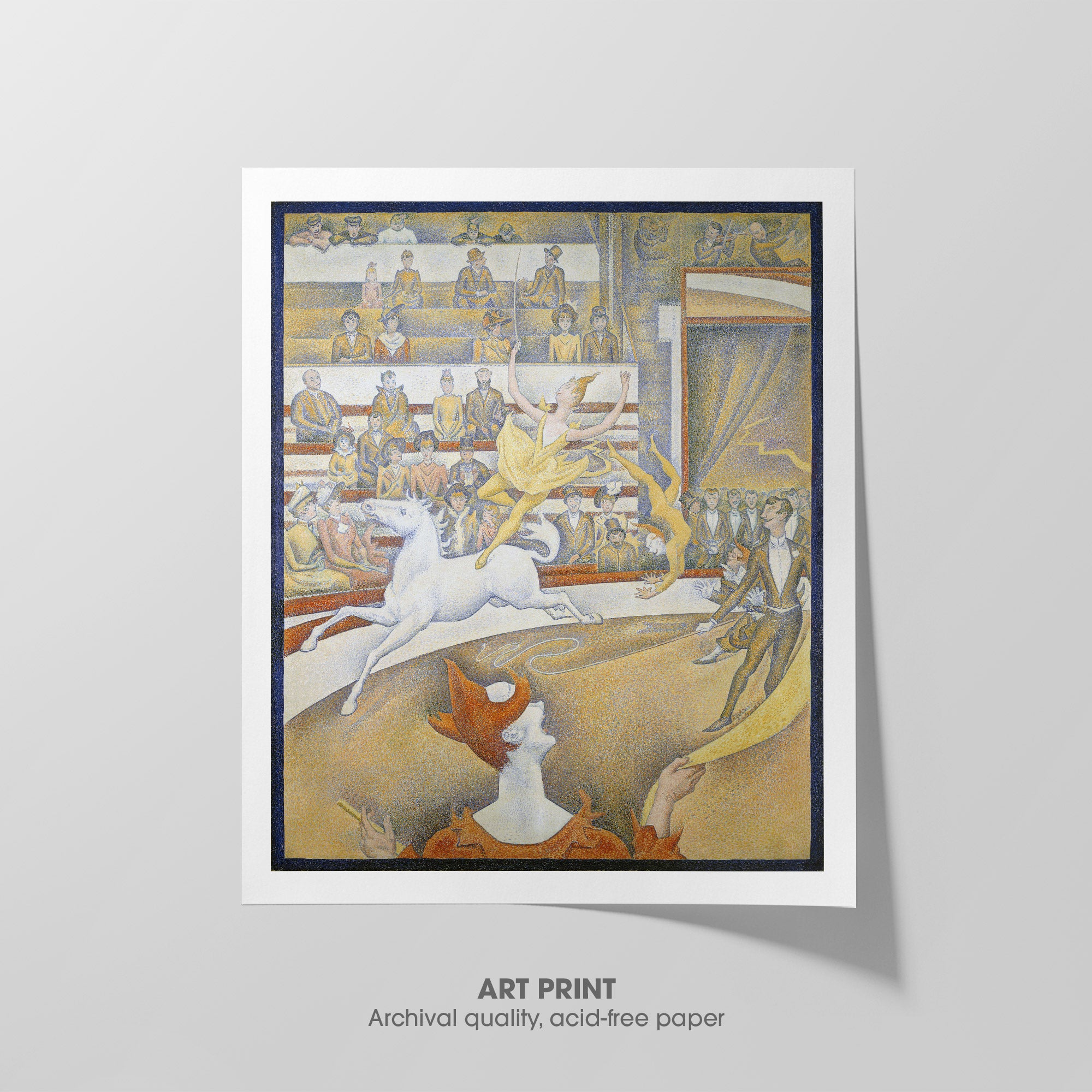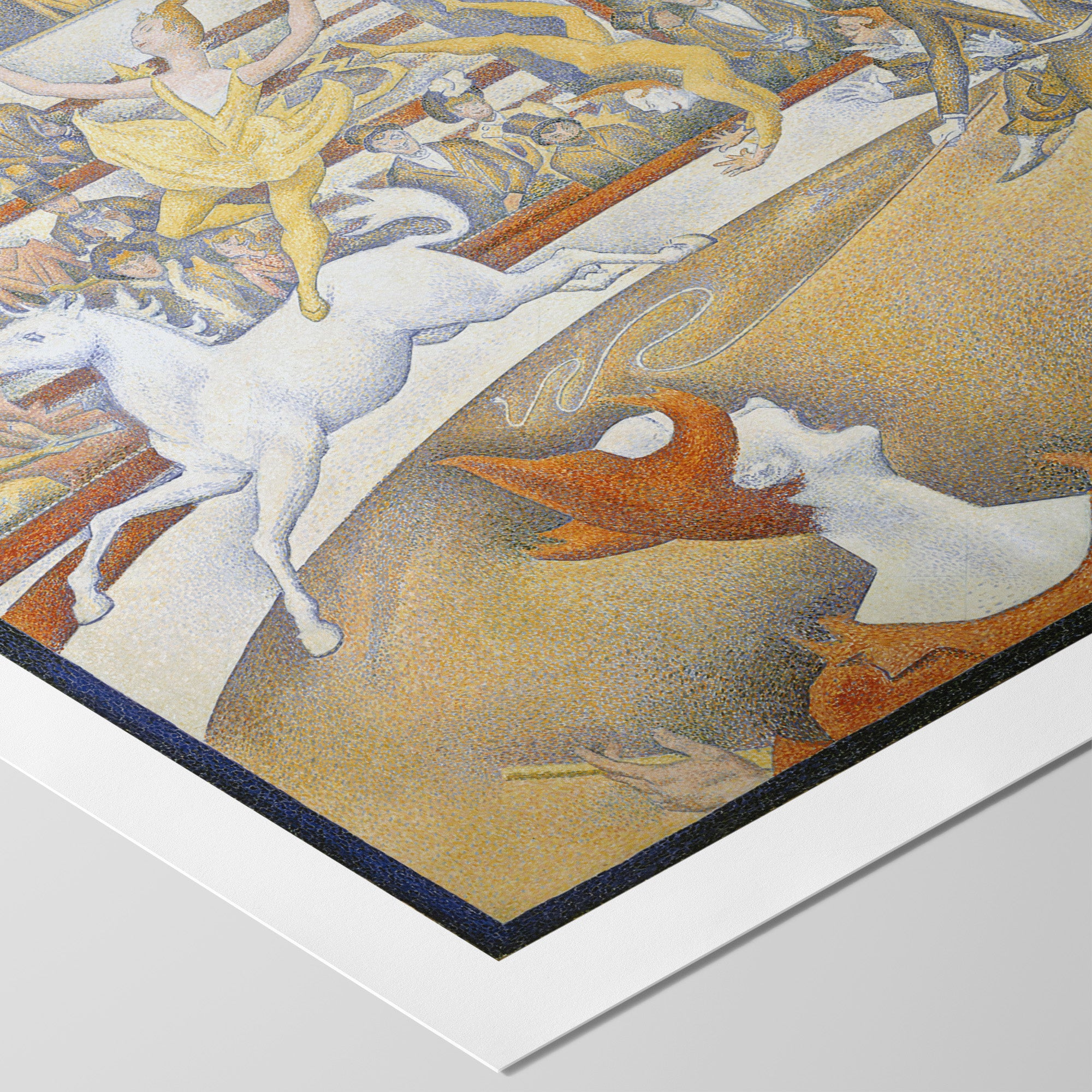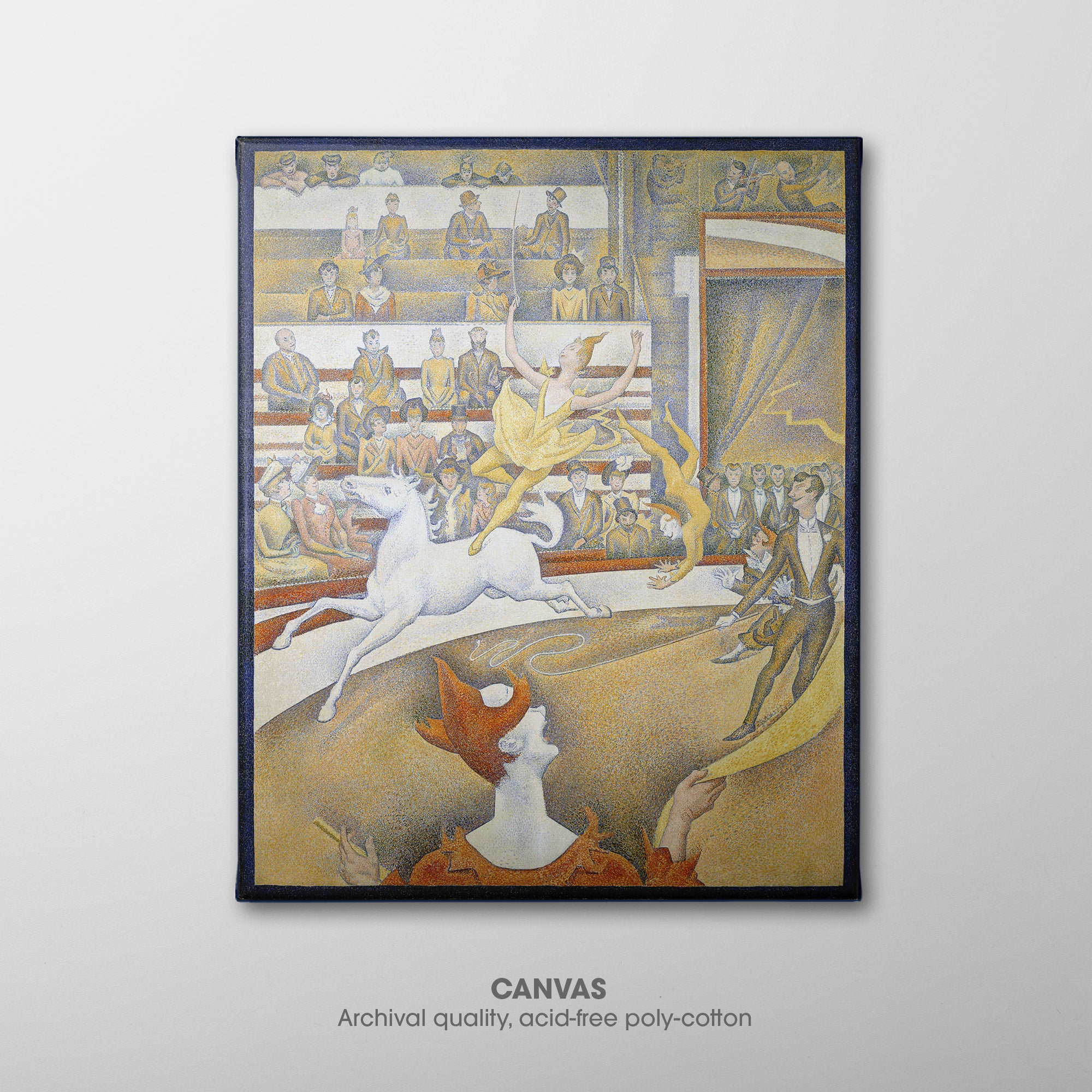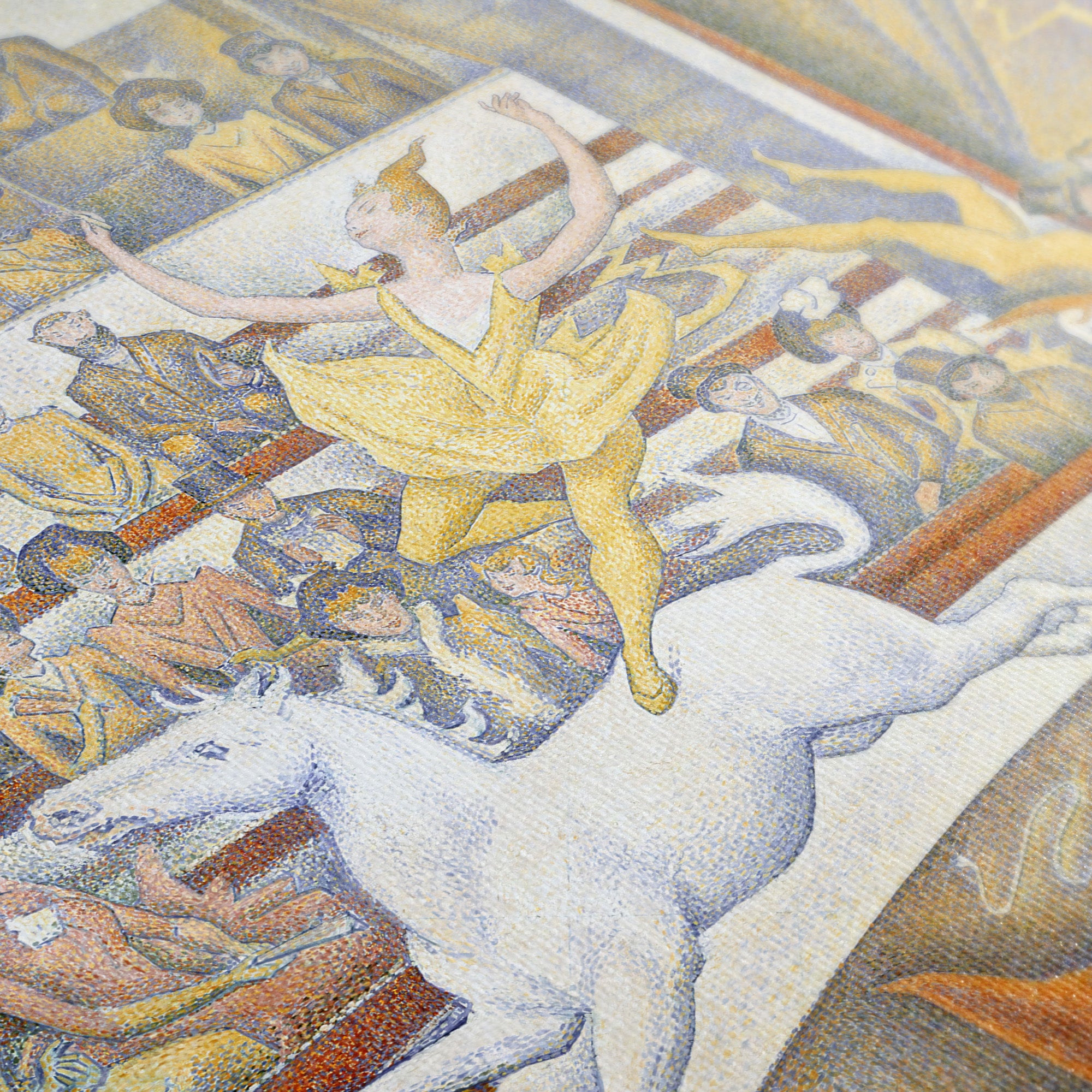-
Terrestrial Paradise ☷ Bosch ☷ Art Print
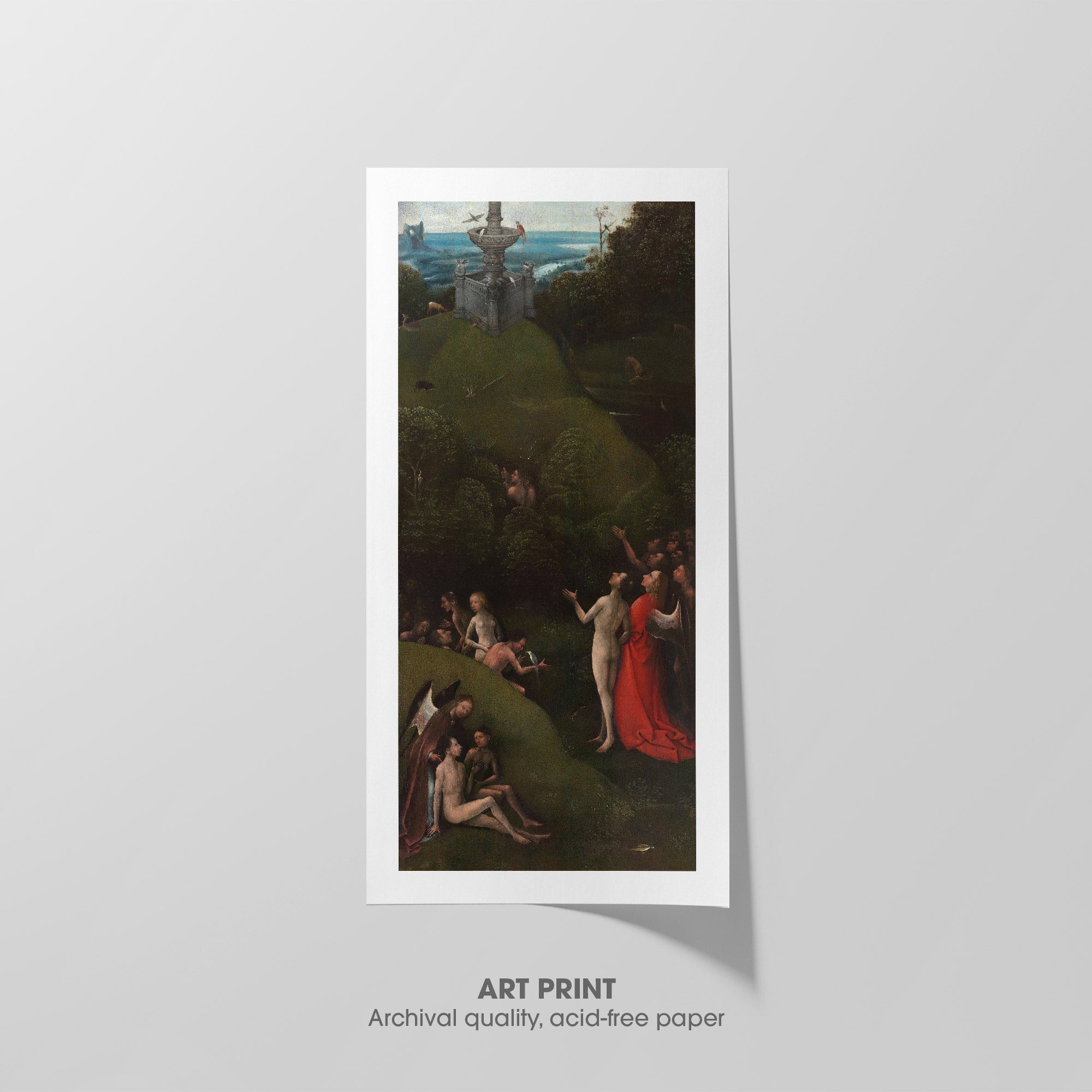
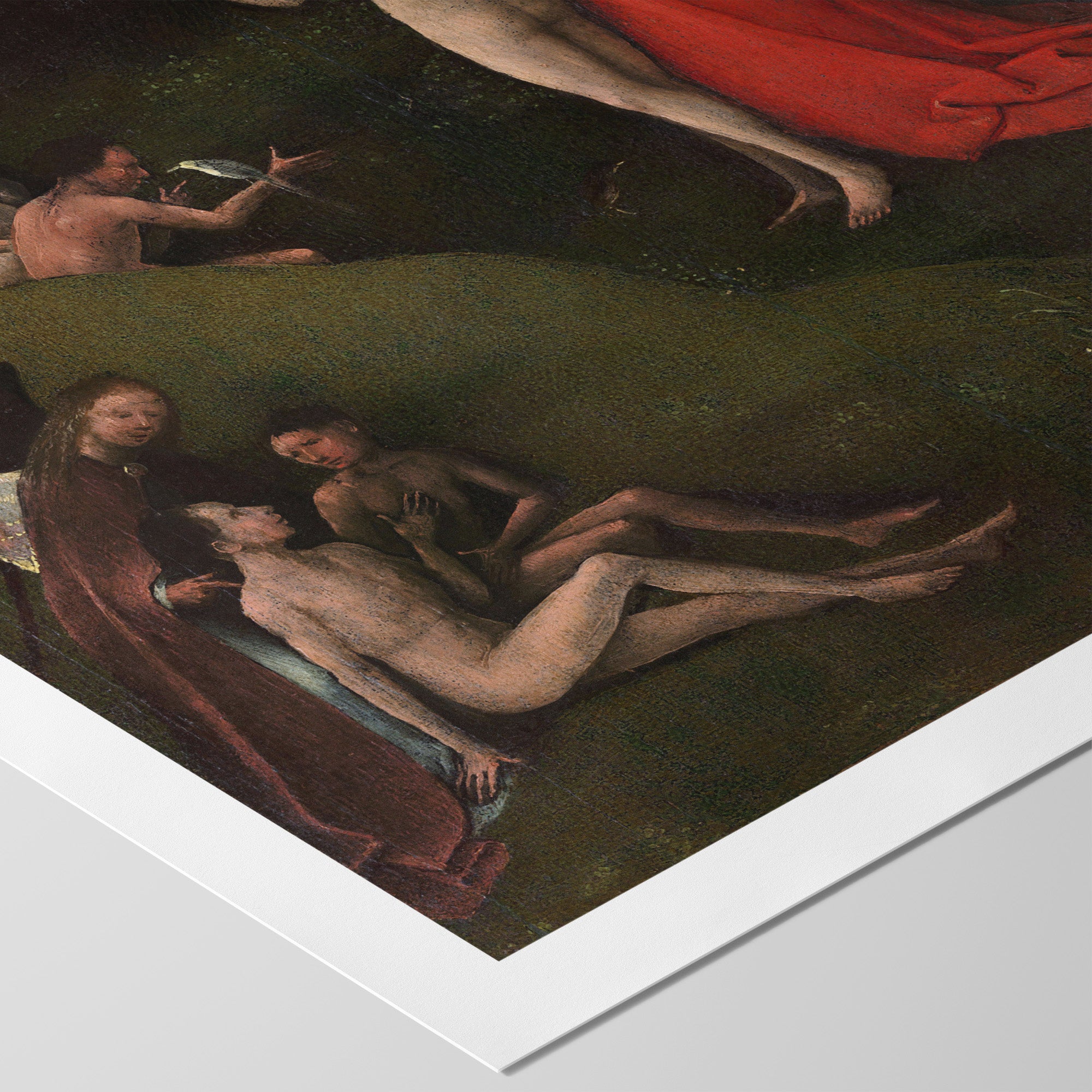 Visions of the Hereafter (1515) by Hieronymus Bosch is a polyptych consisting of two panels depicting religious scenes about sin and judgment. At the Galleria dell'accademia in Venice the panels are ordered, left to right, Fall of the Damned, Hell, Terrestrial Paradise, ➵
Visions of the Hereafter (1515) by Hieronymus Bosch is a polyptych consisting of two panels depicting religious scenes about sin and judgment. At the Galleria dell'accademia in Venice the panels are ordered, left to right, Fall of the Damned, Hell, Terrestrial Paradise, ➵◰ Canvas Reproductions
⧈ Framed Art Prints -
Terrestrial Paradise ☷ Bosch ☷ Canvas
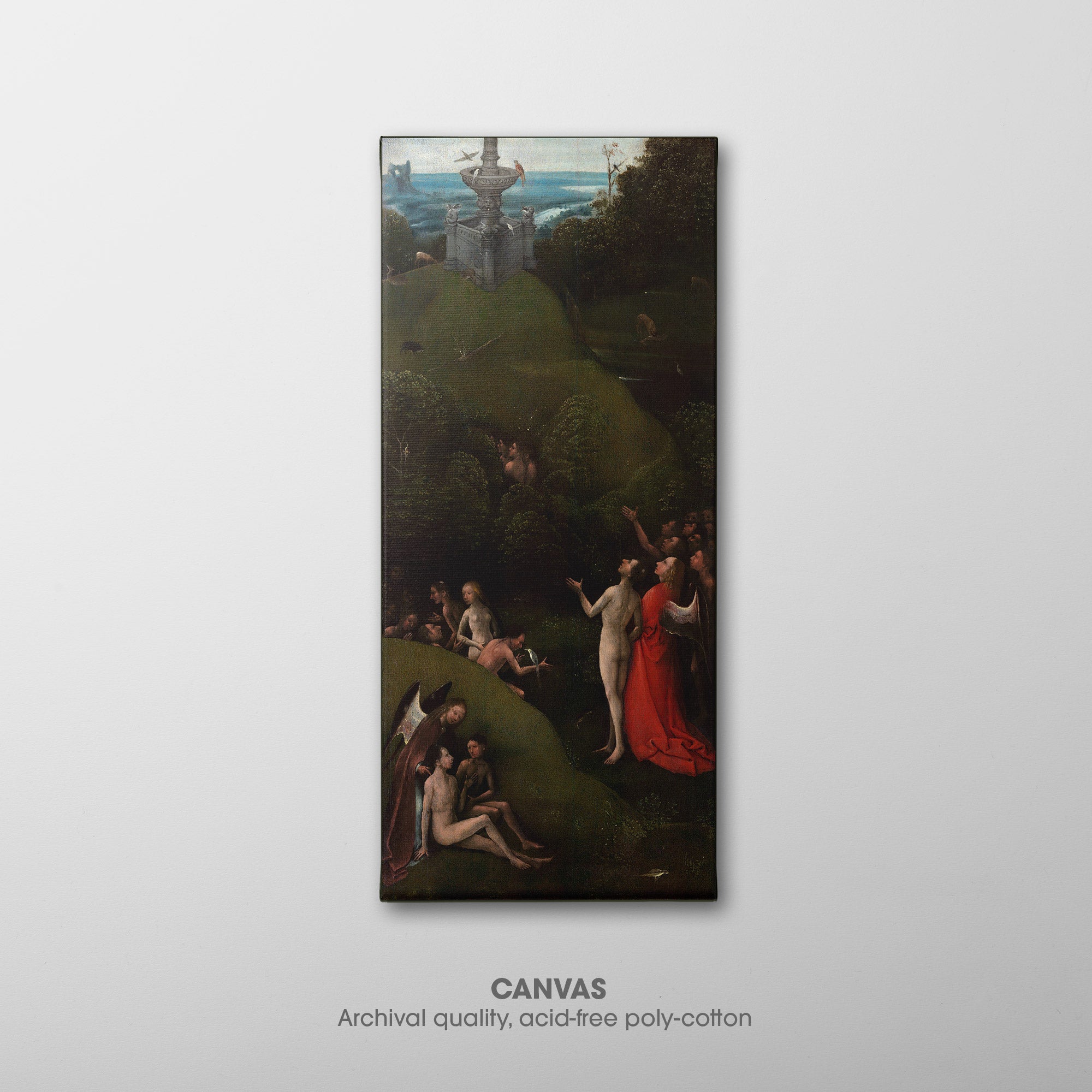
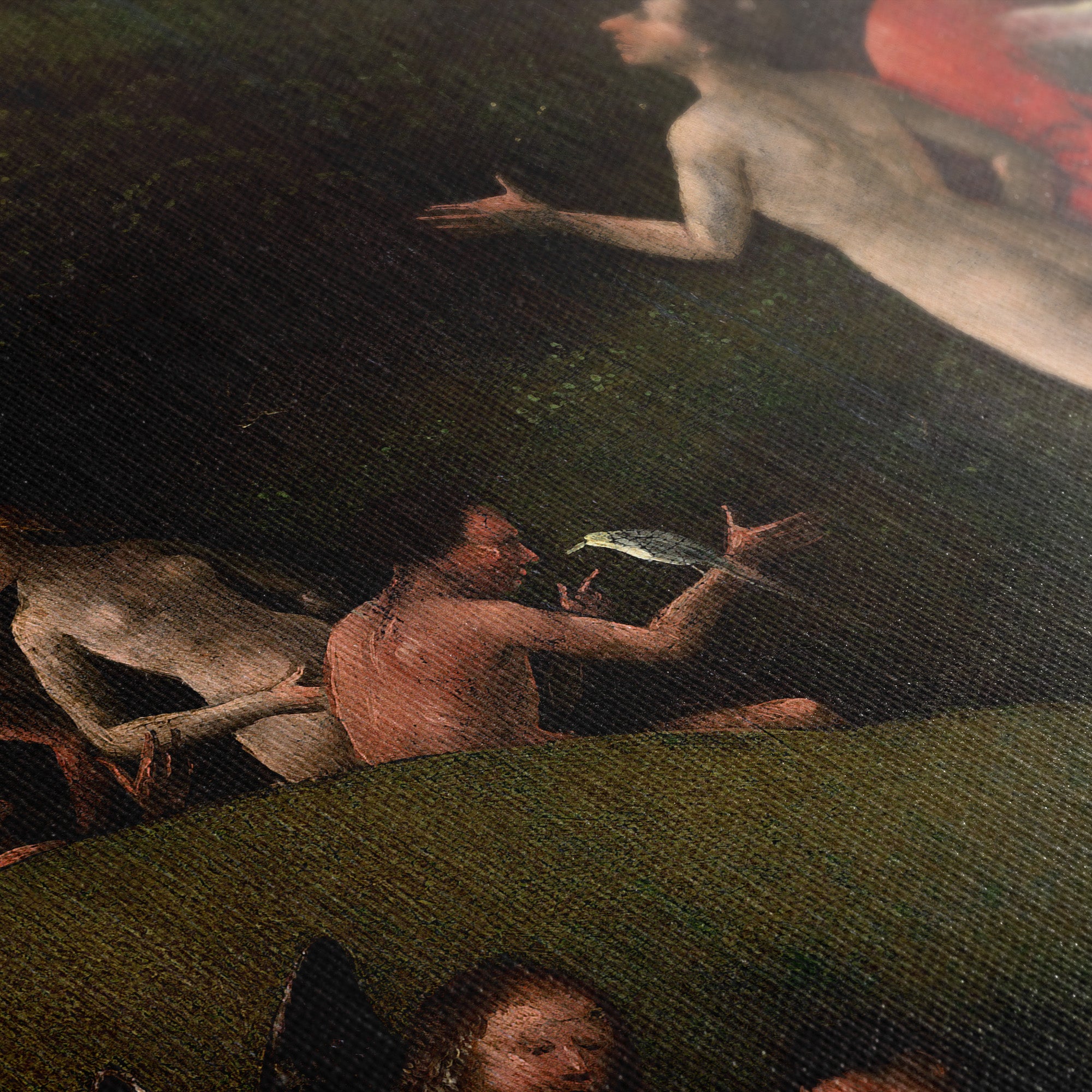 Visions of the Hereafter (1515) by Hieronymus Bosch is a polyptych consisting of two panels depicting religious scenes about sin and judgment. At the Galleria dell'accademia in Venice the panels are ordered, left to right, Fall of the Damned, Hell, Terrestrial Paradise, ➵
Visions of the Hereafter (1515) by Hieronymus Bosch is a polyptych consisting of two panels depicting religious scenes about sin and judgment. At the Galleria dell'accademia in Venice the panels are ordered, left to right, Fall of the Damned, Hell, Terrestrial Paradise, ➵◰ Canvas Reproductions
⧈ Framed Art Prints -
The Allegory of Faith ☷ Vermeer ☰ Art Print
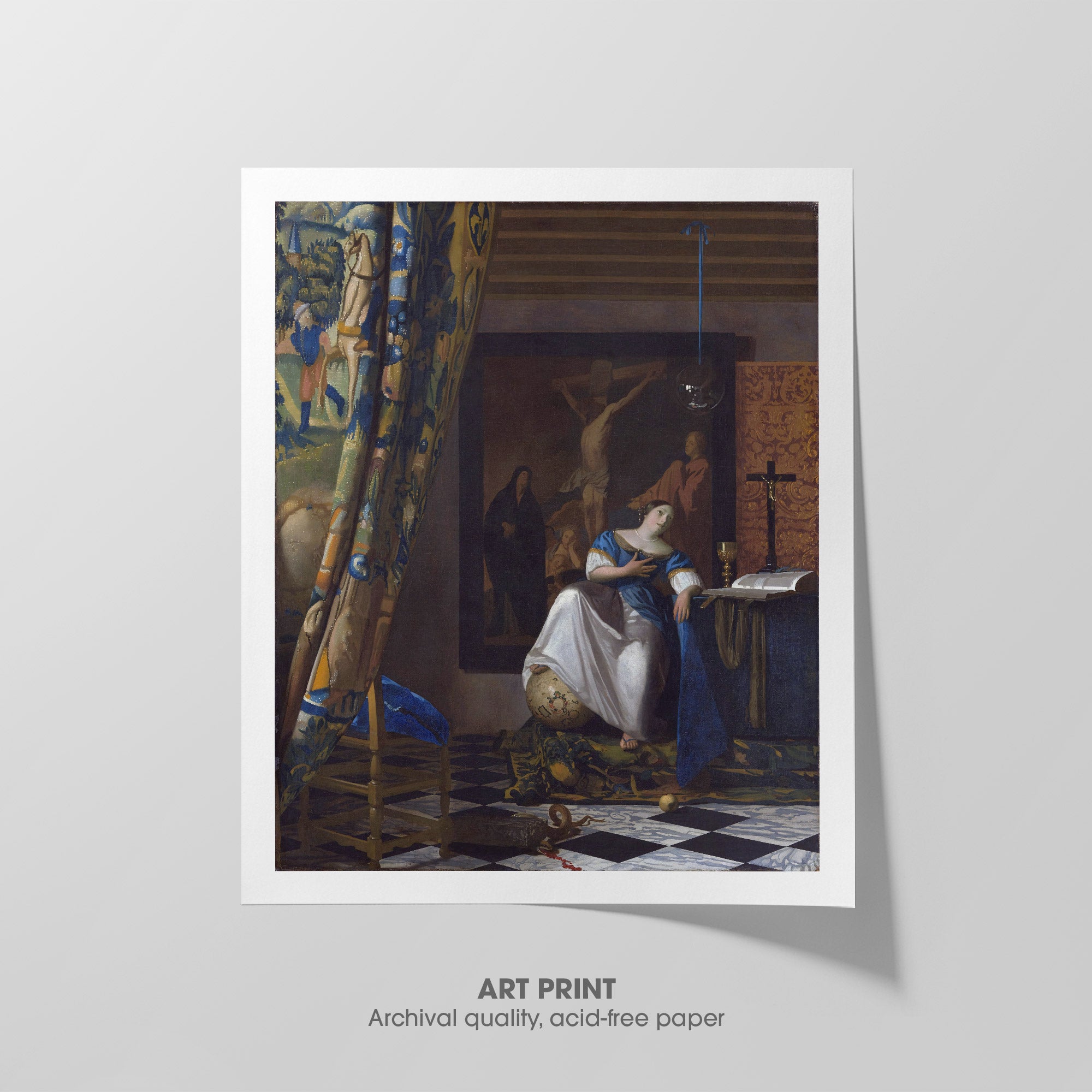
 The Allegory of Faith (1672) by Johannes Vermeer, also known as Allegory of the Catholic Faith, is rich in symbolism, sharing several elements with The Art of Painting, both differing greatly in style and purpose from his other works that depict everyday ➵
The Allegory of Faith (1672) by Johannes Vermeer, also known as Allegory of the Catholic Faith, is rich in symbolism, sharing several elements with The Art of Painting, both differing greatly in style and purpose from his other works that depict everyday ➵◰ Canvas Reproductions
⧈ Framed Art Prints -
The Allegory of Faith ☷ Vermeer ☰ Canvas
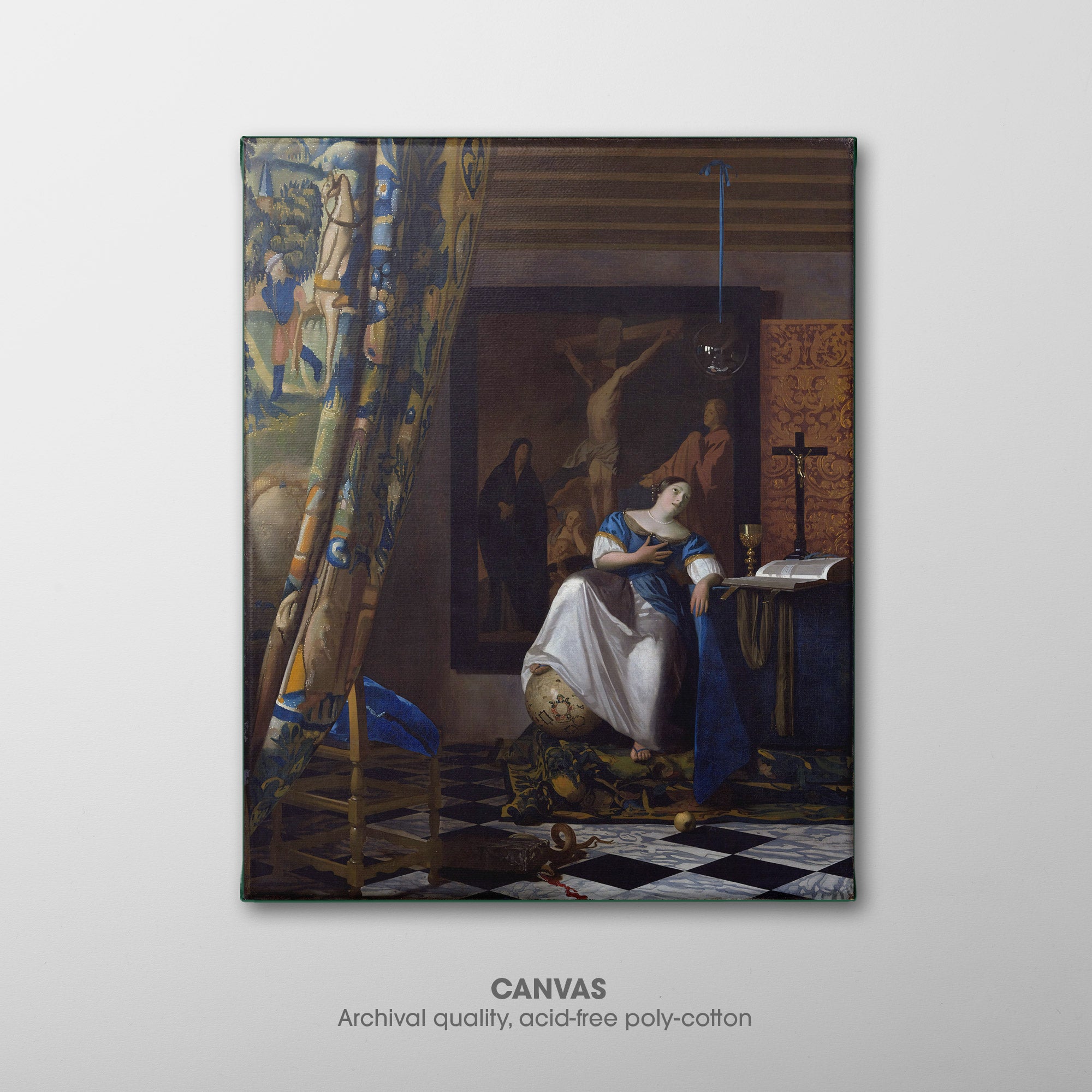
 The Allegory of Faith (1672) by Johannes Vermeer, also known as Allegory of the Catholic Faith, is rich in symbolism, sharing several elements with The Art of Painting, both differing greatly in style and purpose from his other works that depict everyday ➵
The Allegory of Faith (1672) by Johannes Vermeer, also known as Allegory of the Catholic Faith, is rich in symbolism, sharing several elements with The Art of Painting, both differing greatly in style and purpose from his other works that depict everyday ➵◰ Canvas Reproductions
⧈ Framed Art Prints -
The Arnolfini Portrait ☷ Van Eyck ☲ Art Print

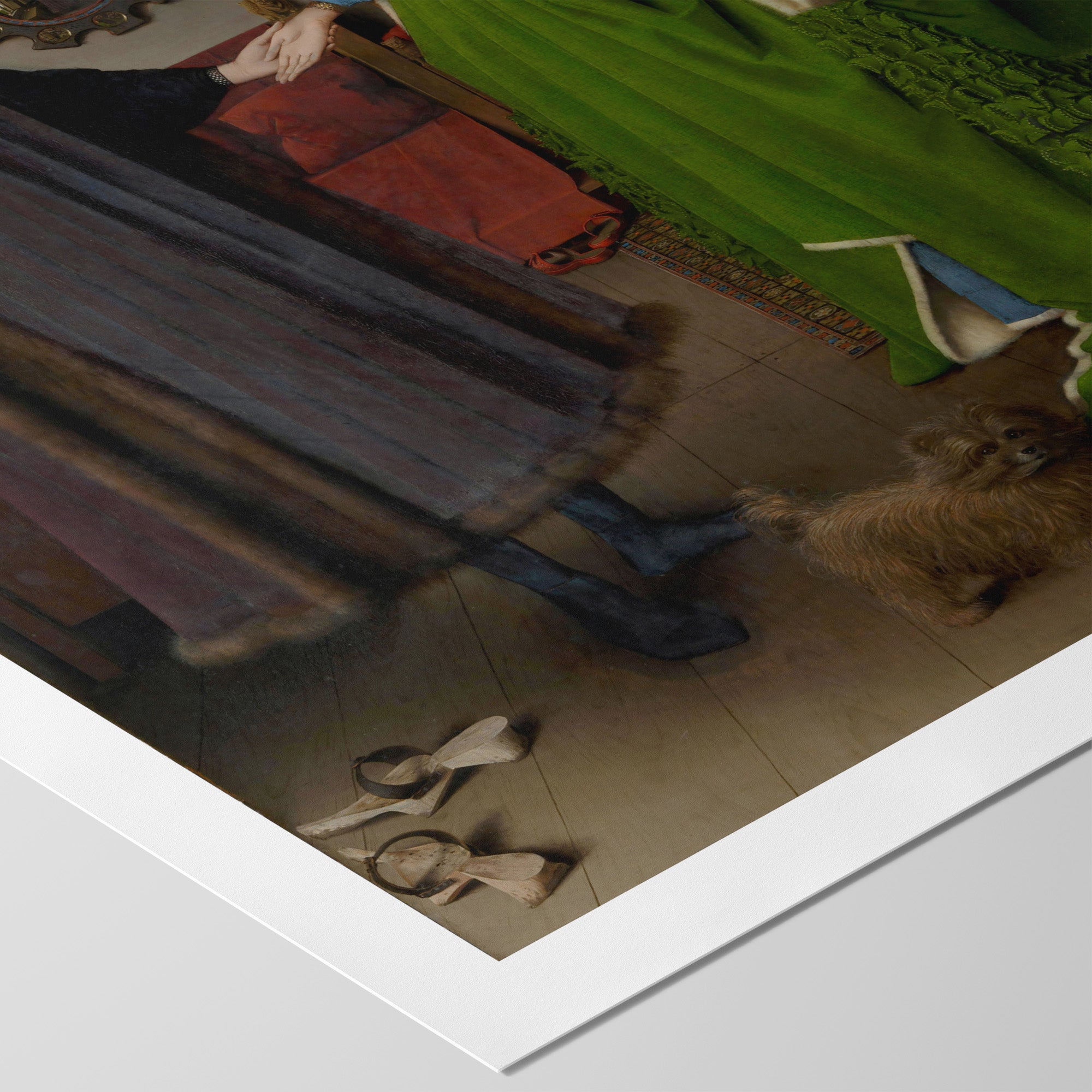 The Arnolfini Portrait (1434) by Jan van Eyck is considered one of the most original and complex paintings in Western art due to its stunning detail, complex iconography, geometric perspective, and expansion of space with the use of a mirror. It is ➵
The Arnolfini Portrait (1434) by Jan van Eyck is considered one of the most original and complex paintings in Western art due to its stunning detail, complex iconography, geometric perspective, and expansion of space with the use of a mirror. It is ➵◰ Canvas Reproductions
⧈ Framed Art Prints -
The Arnolfini Portrait ☷ Van Eyck ☲ Canvas
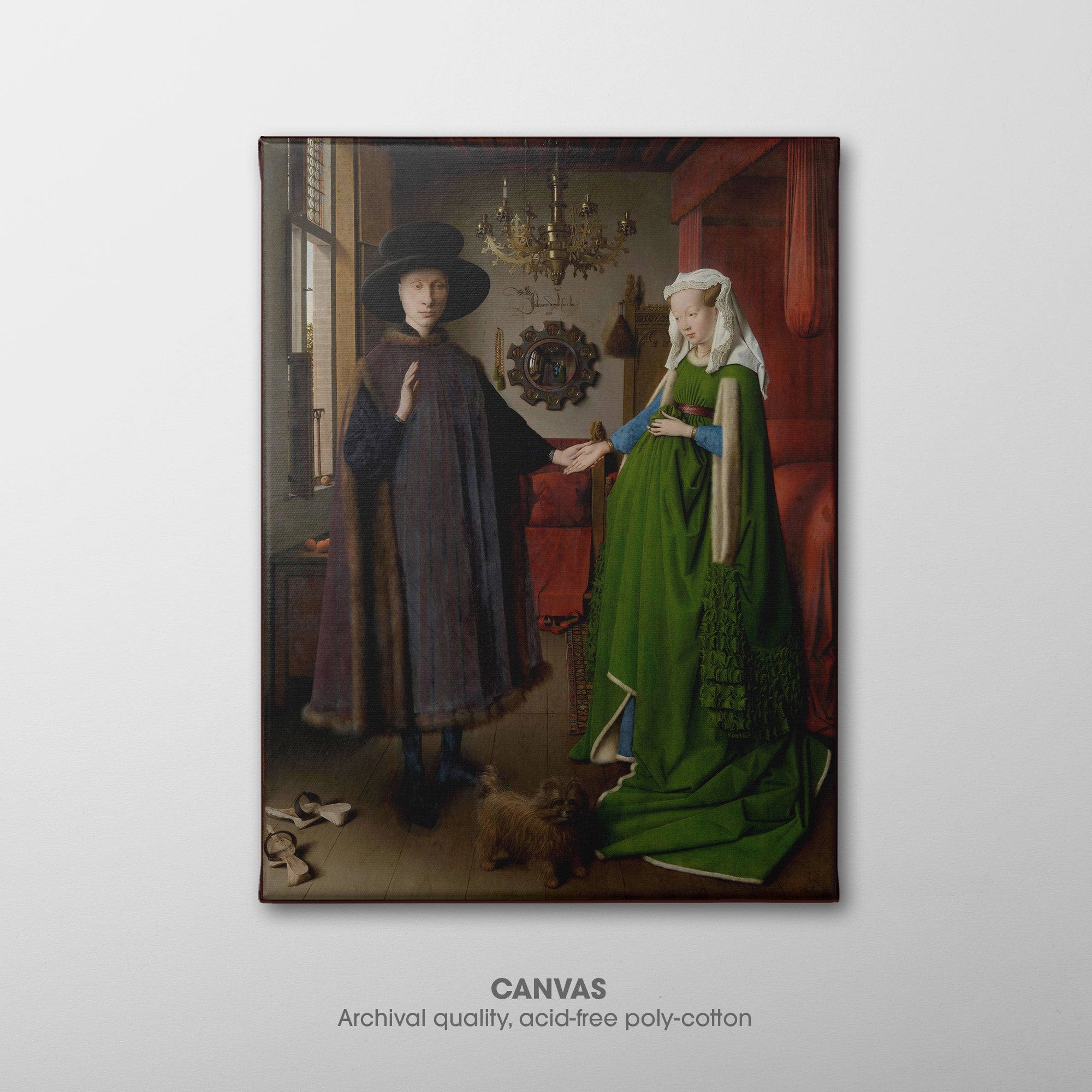
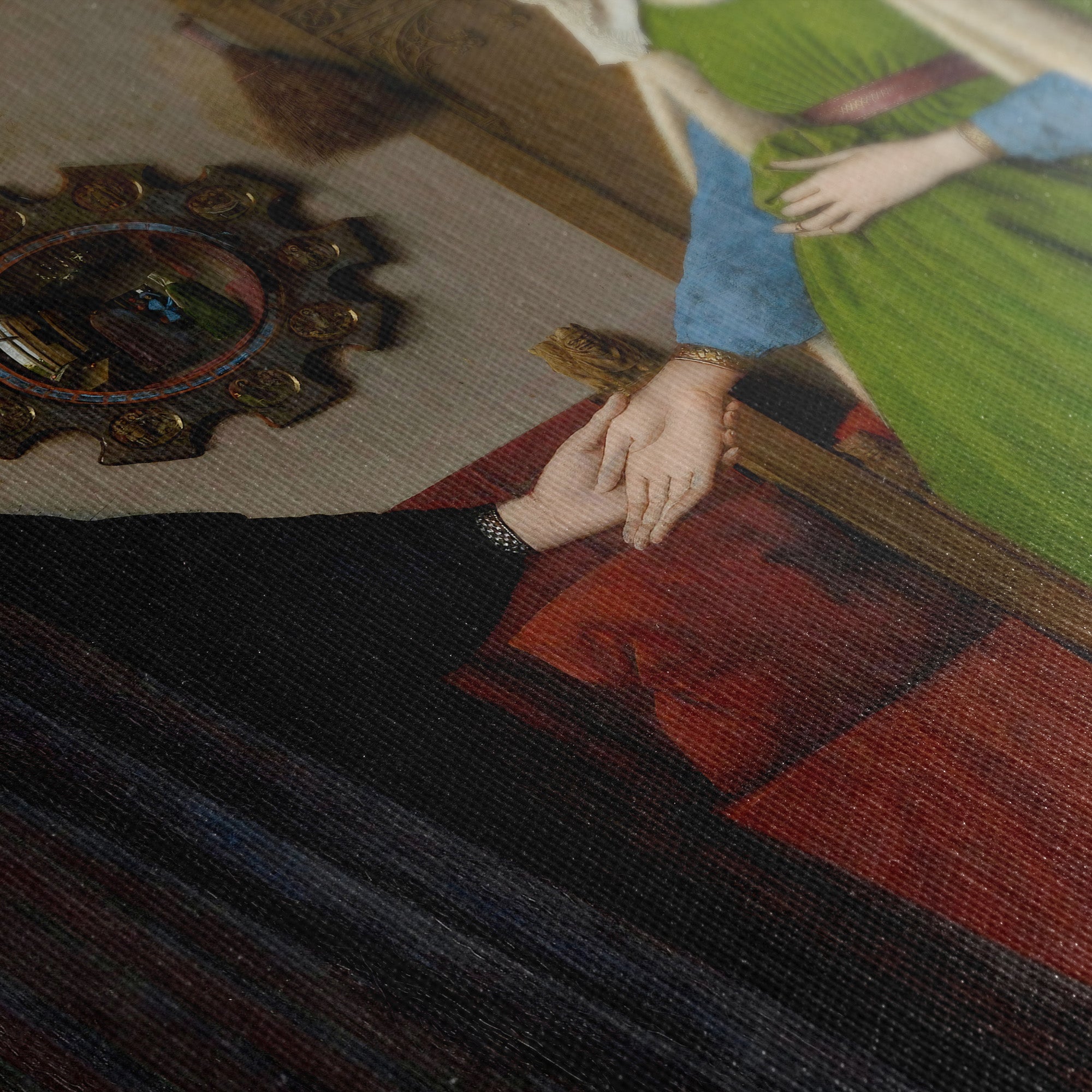 The Arnolfini Portrait (1434) by Jan van Eyck is considered one of the most original and complex paintings in Western art due to its stunning detail, complex iconography, geometric perspective, and expansion of space with the use of a mirror. It is ➵
The Arnolfini Portrait (1434) by Jan van Eyck is considered one of the most original and complex paintings in Western art due to its stunning detail, complex iconography, geometric perspective, and expansion of space with the use of a mirror. It is ➵◰ Canvas Reproductions
⧈ Framed Art Prints -
The Art of Painting ☰ Vermeer ☷ Art Print

 The Art of Painting (1668) by Johannes Vermeer, also known as The Allegory of Painting, or Painter in his Studio, depicts an artist painting a woman dressed in blue. Rich in iconography, it is considered his most complex work. The model is ➵
The Art of Painting (1668) by Johannes Vermeer, also known as The Allegory of Painting, or Painter in his Studio, depicts an artist painting a woman dressed in blue. Rich in iconography, it is considered his most complex work. The model is ➵◰ Canvas Reproductions
⧈ Framed Art Prints -
The Art of Painting ☰ Vermeer ☷ Canvas
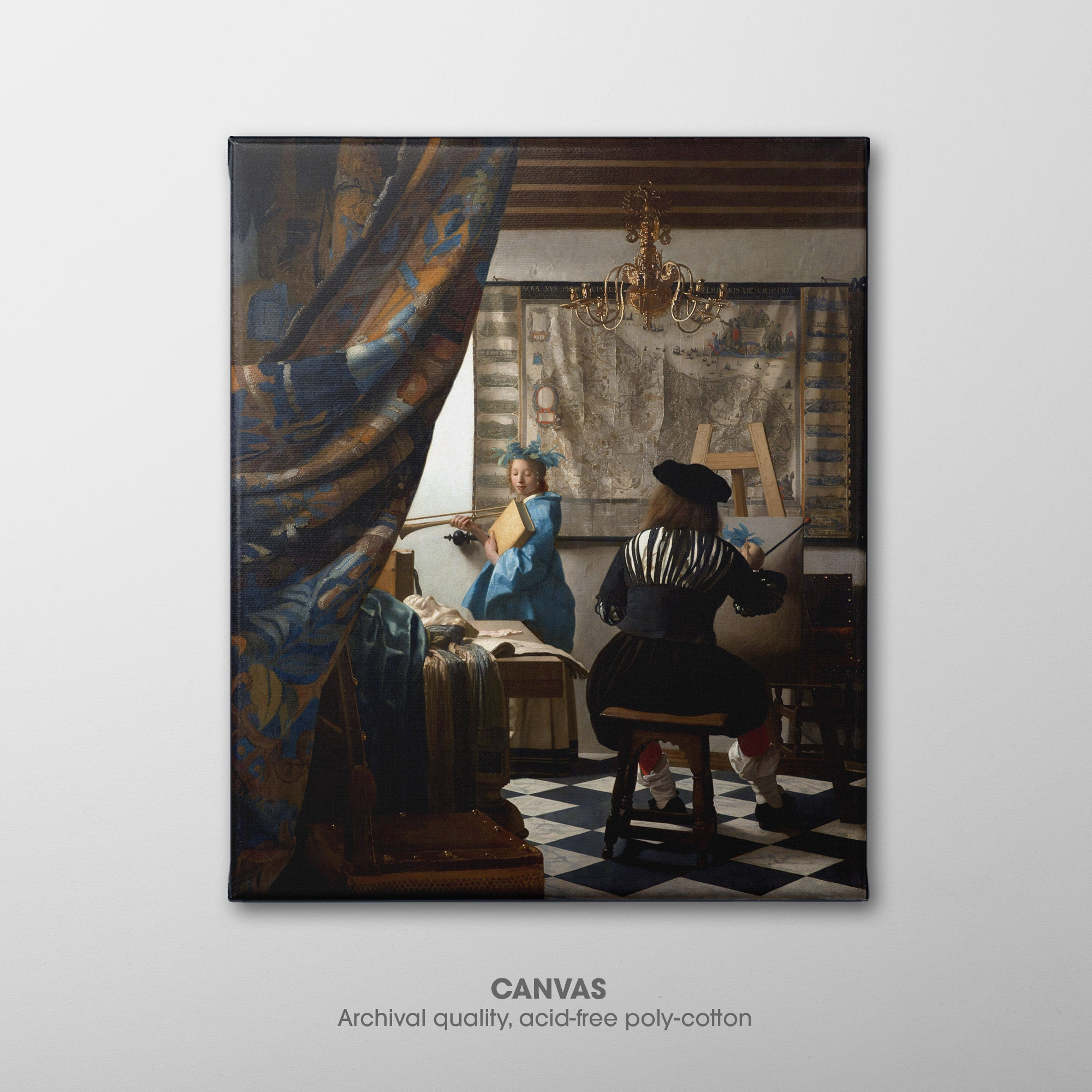
 The Art of Painting (1668) by Johannes Vermeer, also known as The Allegory of Painting, or Painter in his Studio, depicts an artist painting a woman dressed in blue. Rich in iconography, it is considered his most complex work. The model is ➵
The Art of Painting (1668) by Johannes Vermeer, also known as The Allegory of Painting, or Painter in his Studio, depicts an artist painting a woman dressed in blue. Rich in iconography, it is considered his most complex work. The model is ➵◰ Canvas Reproductions
⧈ Framed Art Prints -
The Astronomer ☶ Vermeer ☷ Art Print
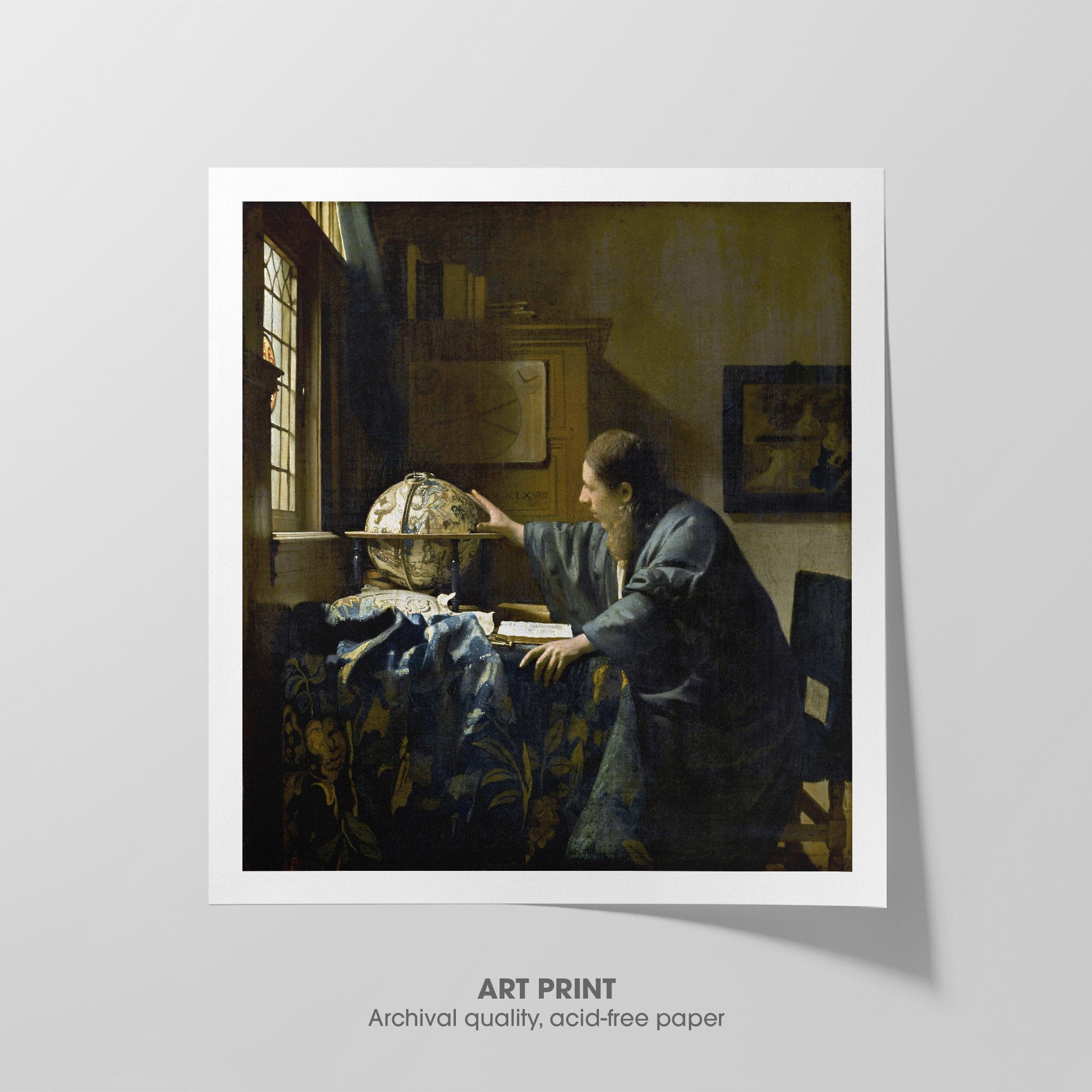
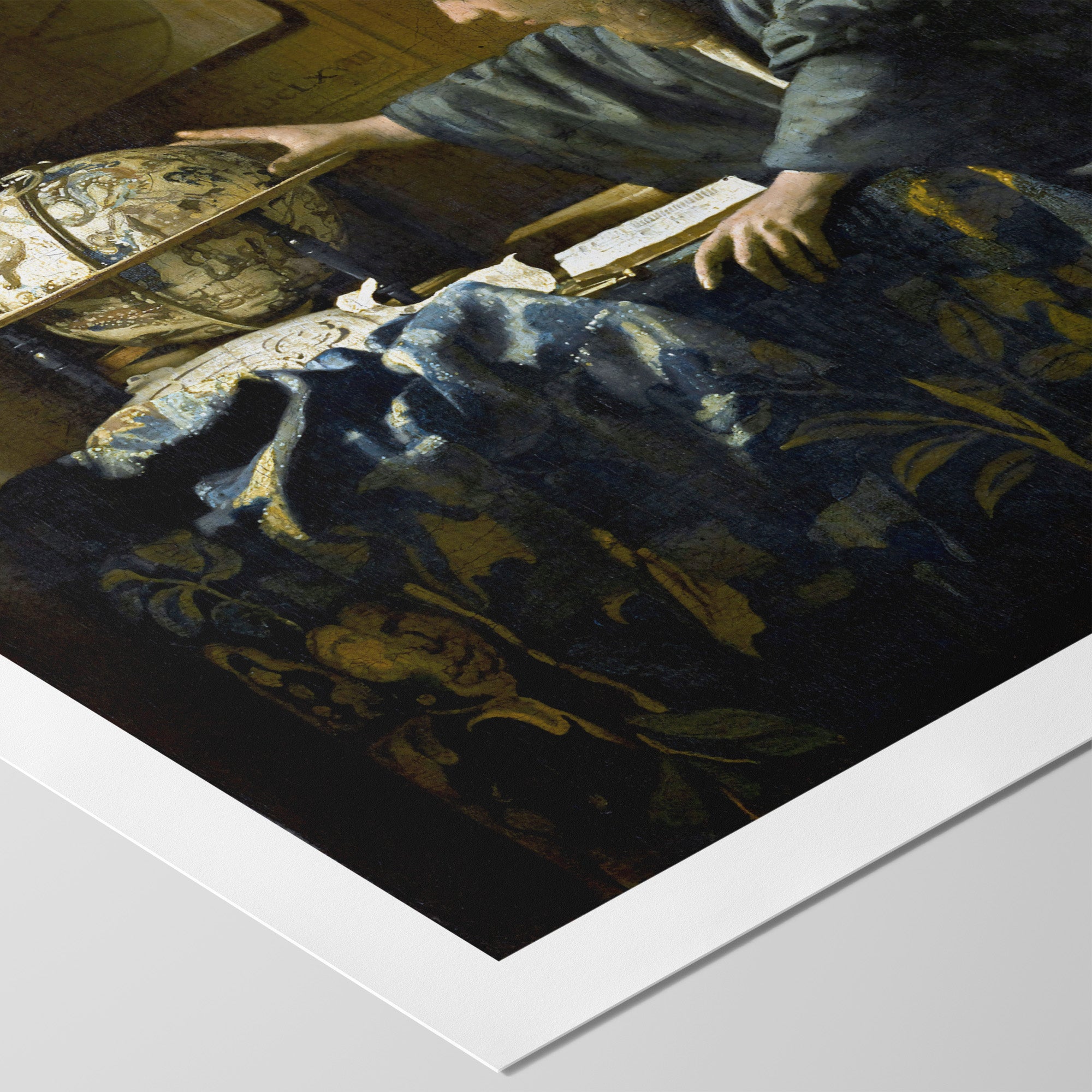 The Astronomer (1668) by Johannes Vermeer depicts an astronomer looking at a globe. It is closely paired with The Geographer, which used the same model, and canvas from the same bolt of material. The astronomer's profession is indicated by the celestial globe ➵
The Astronomer (1668) by Johannes Vermeer depicts an astronomer looking at a globe. It is closely paired with The Geographer, which used the same model, and canvas from the same bolt of material. The astronomer's profession is indicated by the celestial globe ➵◰ Canvas Reproductions
⧈ Framed Art Prints -
The Astronomer ☶ Vermeer ☷ Canvas
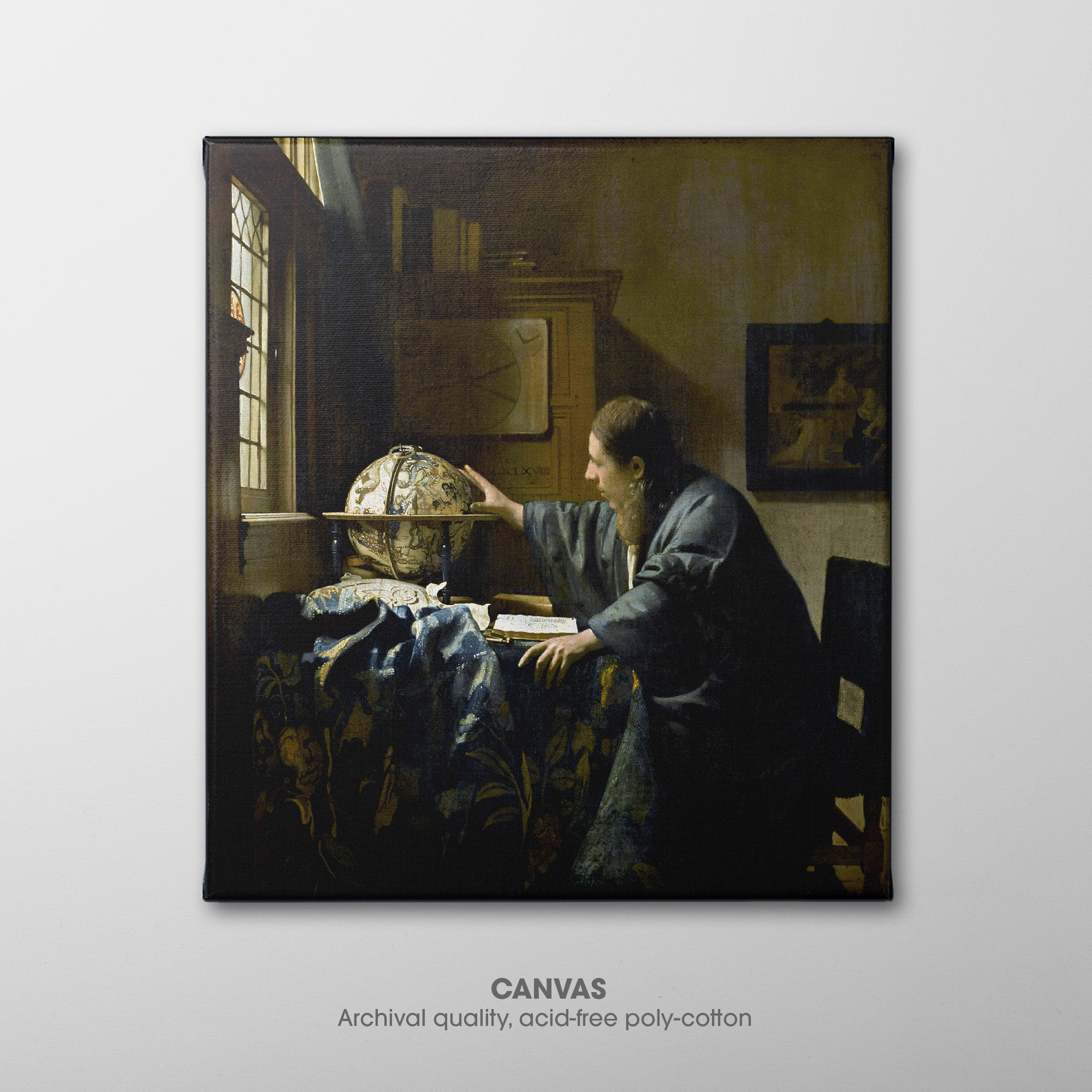
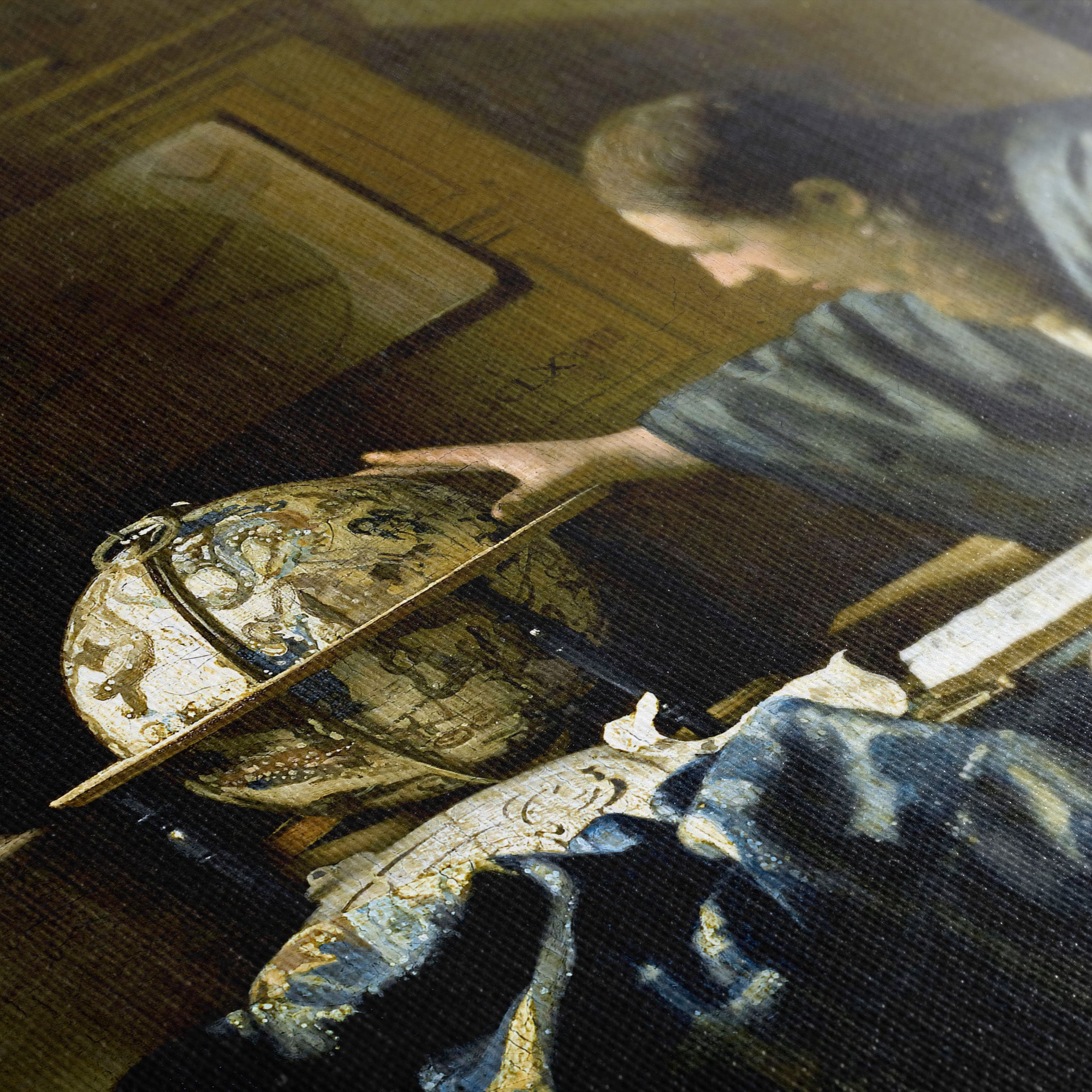 The Astronomer (1668) by Johannes Vermeer depicts an astronomer looking at a globe. It is closely paired with The Geographer, which used the same model, and canvas from the same bolt of material. The astronomer's profession is indicated by the celestial globe ➵
The Astronomer (1668) by Johannes Vermeer depicts an astronomer looking at a globe. It is closely paired with The Geographer, which used the same model, and canvas from the same bolt of material. The astronomer's profession is indicated by the celestial globe ➵◰ Canvas Reproductions
⧈ Framed Art Prints -
The Blanket Signal ☴ Remington ☷ Art Print
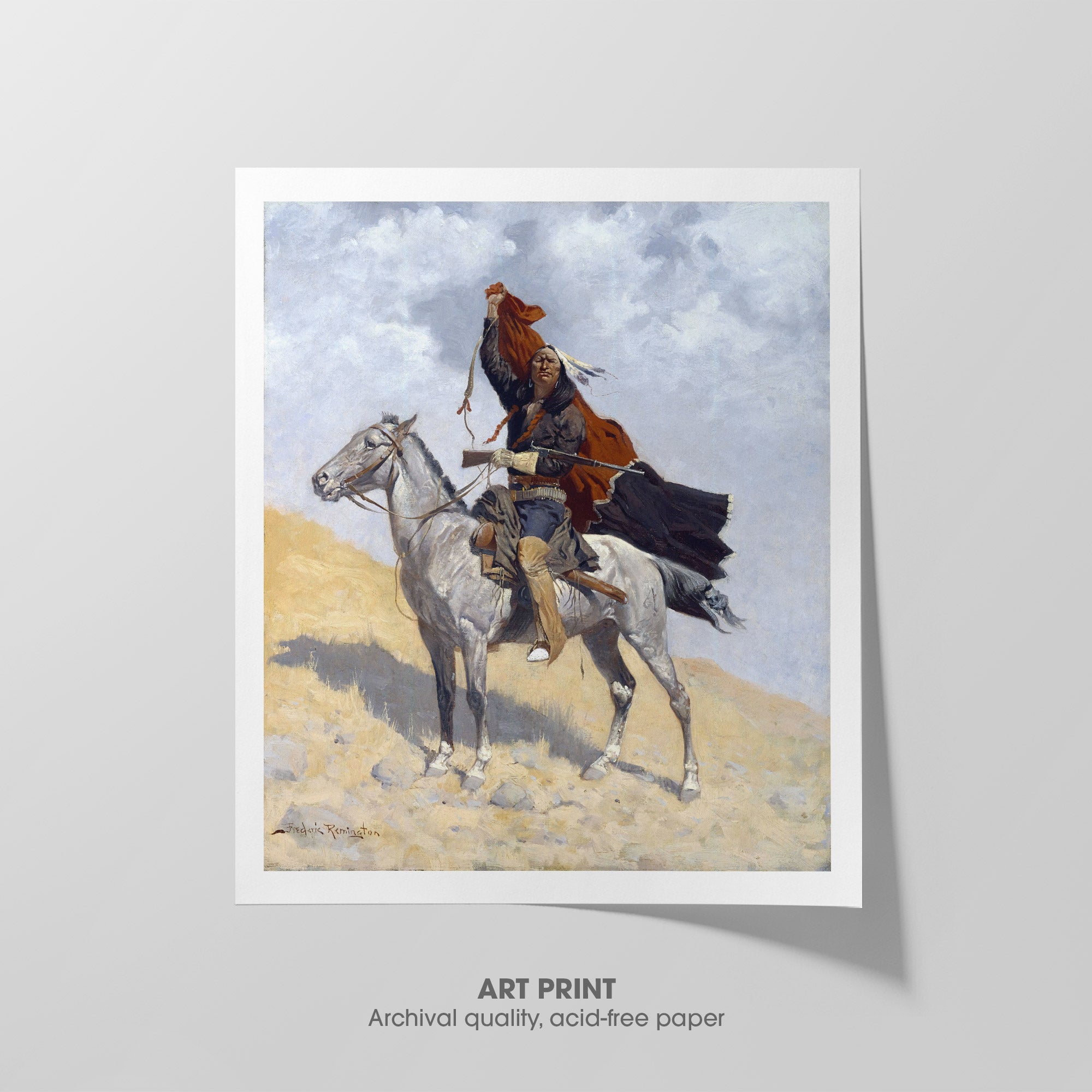
 The Blanket Signal (1896) by Frederic Remington depicts an Indian scout on horseback, holding a rifle and using a large, colorful blanket, to signal fellow tribesmen. The attention to detail in clothing and artifacts, and the dramatic composition against the land and ➵
The Blanket Signal (1896) by Frederic Remington depicts an Indian scout on horseback, holding a rifle and using a large, colorful blanket, to signal fellow tribesmen. The attention to detail in clothing and artifacts, and the dramatic composition against the land and ➵◰ Canvas Reproductions
⧈ Framed Art Prints -
The Blanket Signal ☴ Remington ☷ Canvas
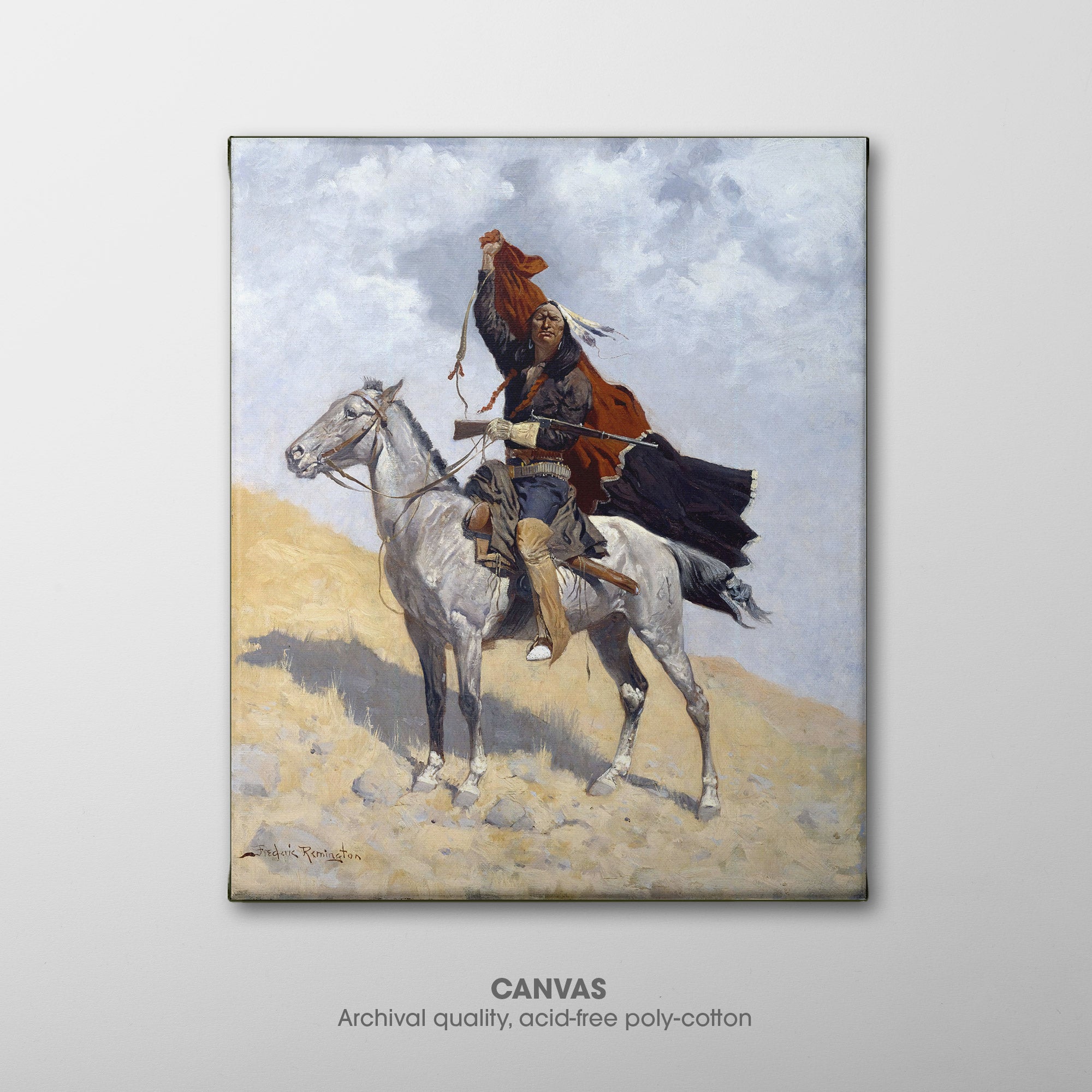
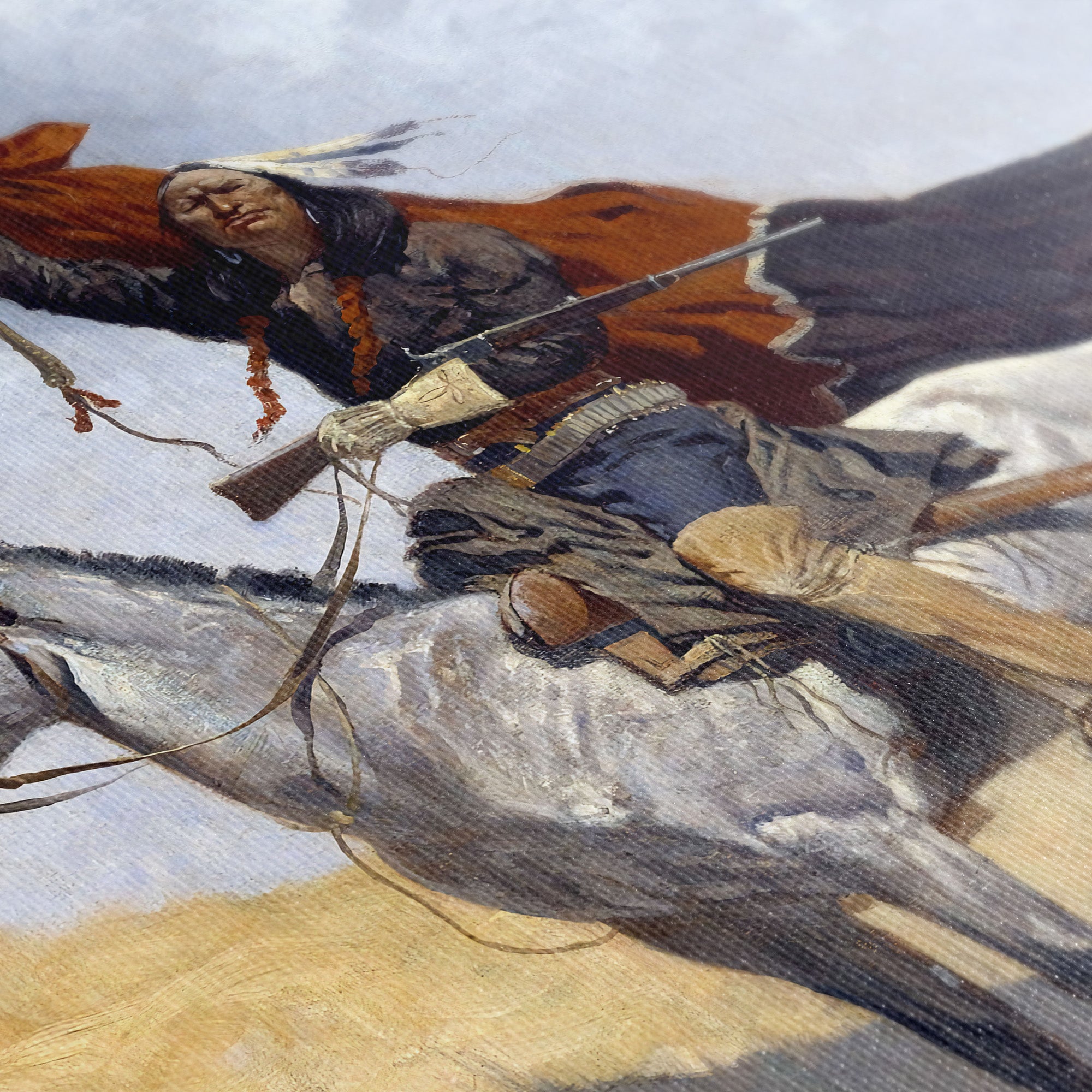 The Blanket Signal (1896) by Frederic Remington depicts an Indian scout on horseback, holding a rifle and using a large, colorful blanket, to signal fellow tribesmen. The attention to detail in clothing and artifacts, and the dramatic composition against the land and ➵
The Blanket Signal (1896) by Frederic Remington depicts an Indian scout on horseback, holding a rifle and using a large, colorful blanket, to signal fellow tribesmen. The attention to detail in clothing and artifacts, and the dramatic composition against the land and ➵◰ Canvas Reproductions
⧈ Framed Art Prints -
The Bonaventure Pine ☰ Signac ☷ Art Print
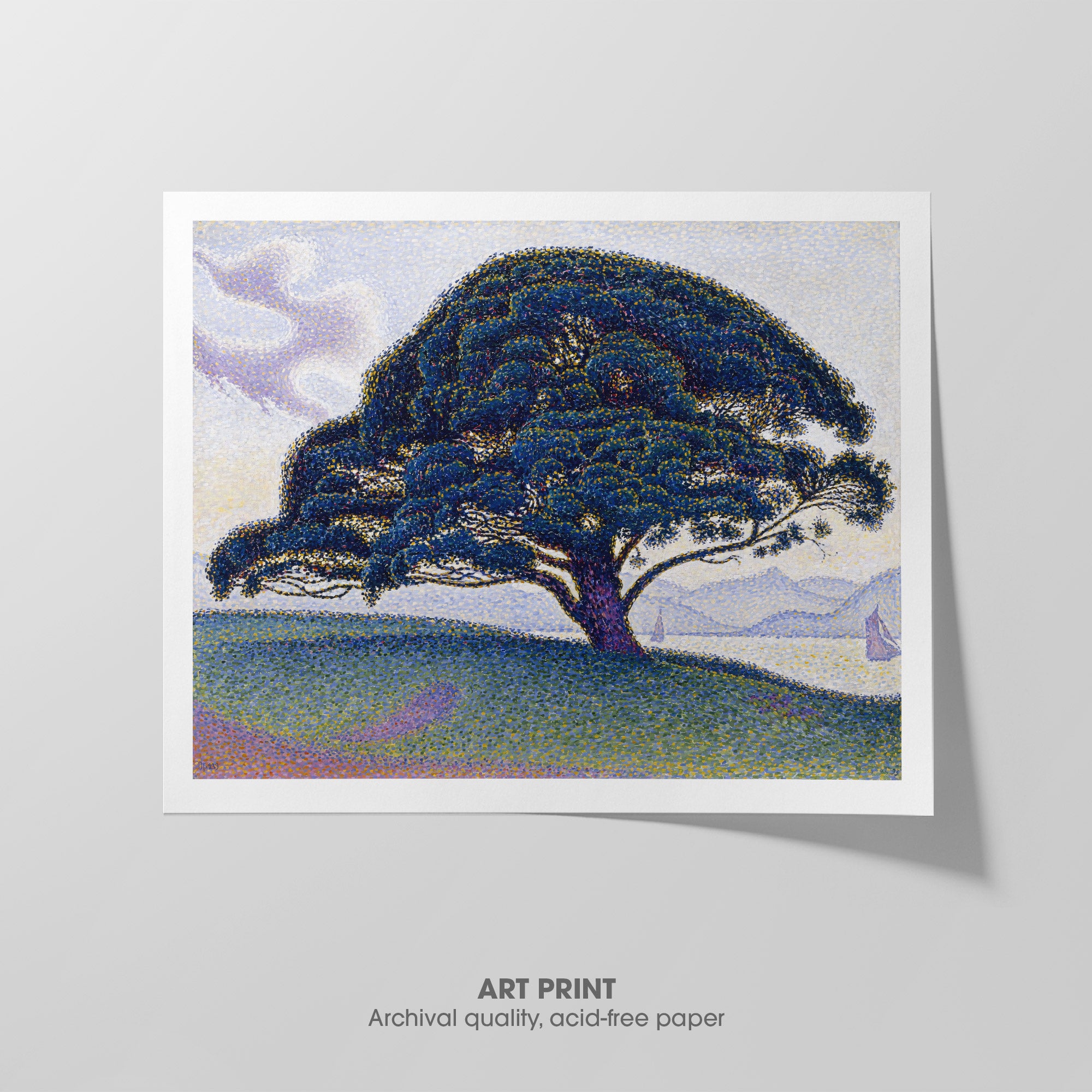
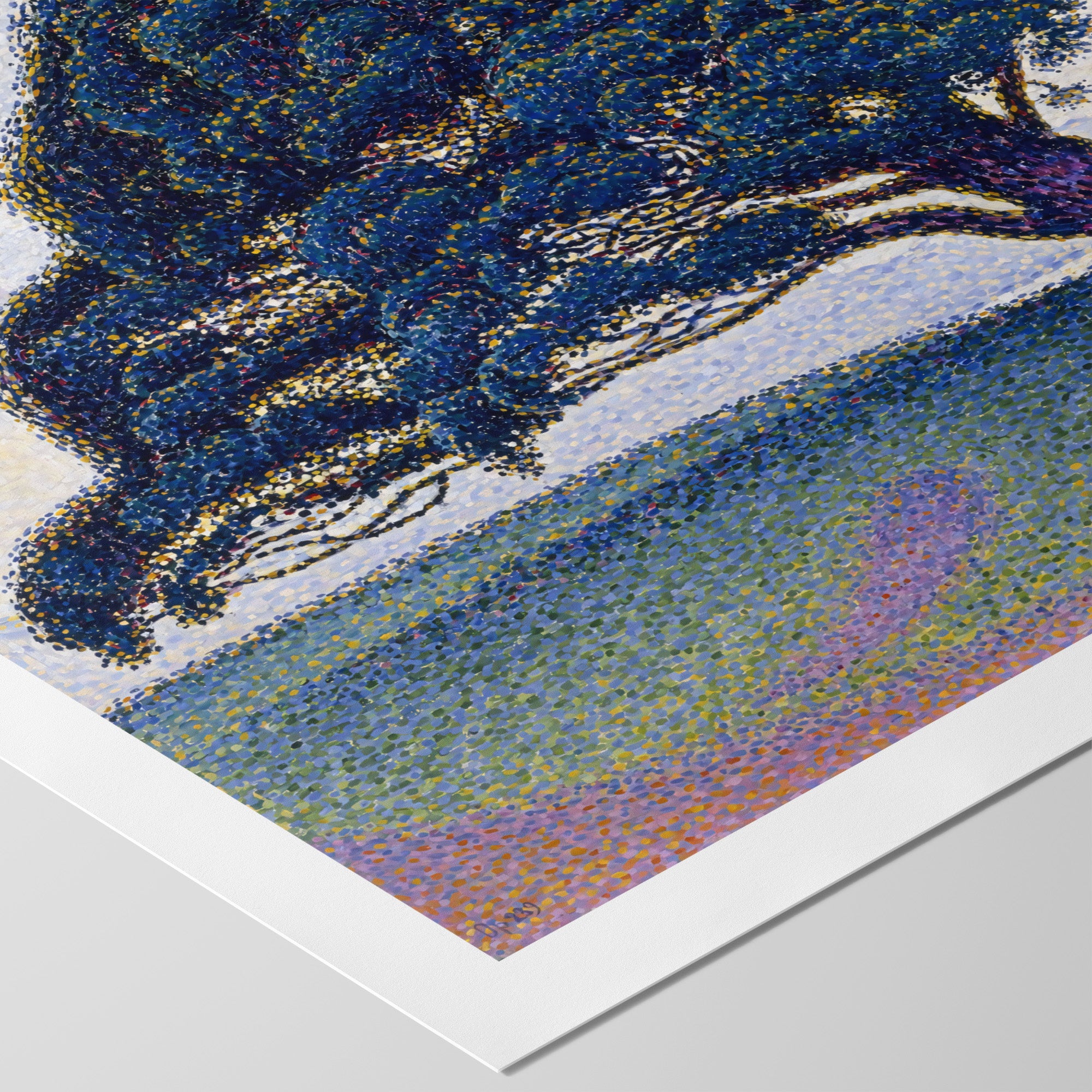 Opus 239, The Bonaventure Pine (1893) by Paul Signac depicts an umbrella pine in Saint-Tropez, France. Painted in the pointillist style developed by Signac and Georges Seurat, it is his most famous painting, one of many he painted of the seaside town. ➵
Opus 239, The Bonaventure Pine (1893) by Paul Signac depicts an umbrella pine in Saint-Tropez, France. Painted in the pointillist style developed by Signac and Georges Seurat, it is his most famous painting, one of many he painted of the seaside town. ➵◰ Canvas Reproductions
⧈ Framed Art Prints -
The Bonaventure Pine ☰ Signac ☷ Canvas

 Opus 239, The Bonaventure Pine (1893) by Paul Signac depicts an umbrella pine in Saint-Tropez, France. Painted in the pointillist style developed by Signac and Georges Seurat, it is his most famous painting, one of many he painted of the seaside town. ➵
Opus 239, The Bonaventure Pine (1893) by Paul Signac depicts an umbrella pine in Saint-Tropez, France. Painted in the pointillist style developed by Signac and Georges Seurat, it is his most famous painting, one of many he painted of the seaside town. ➵◰ Canvas Reproductions
⧈ Framed Art Prints -
The Buffalo Signal ☴ Remington ☳ Art Print
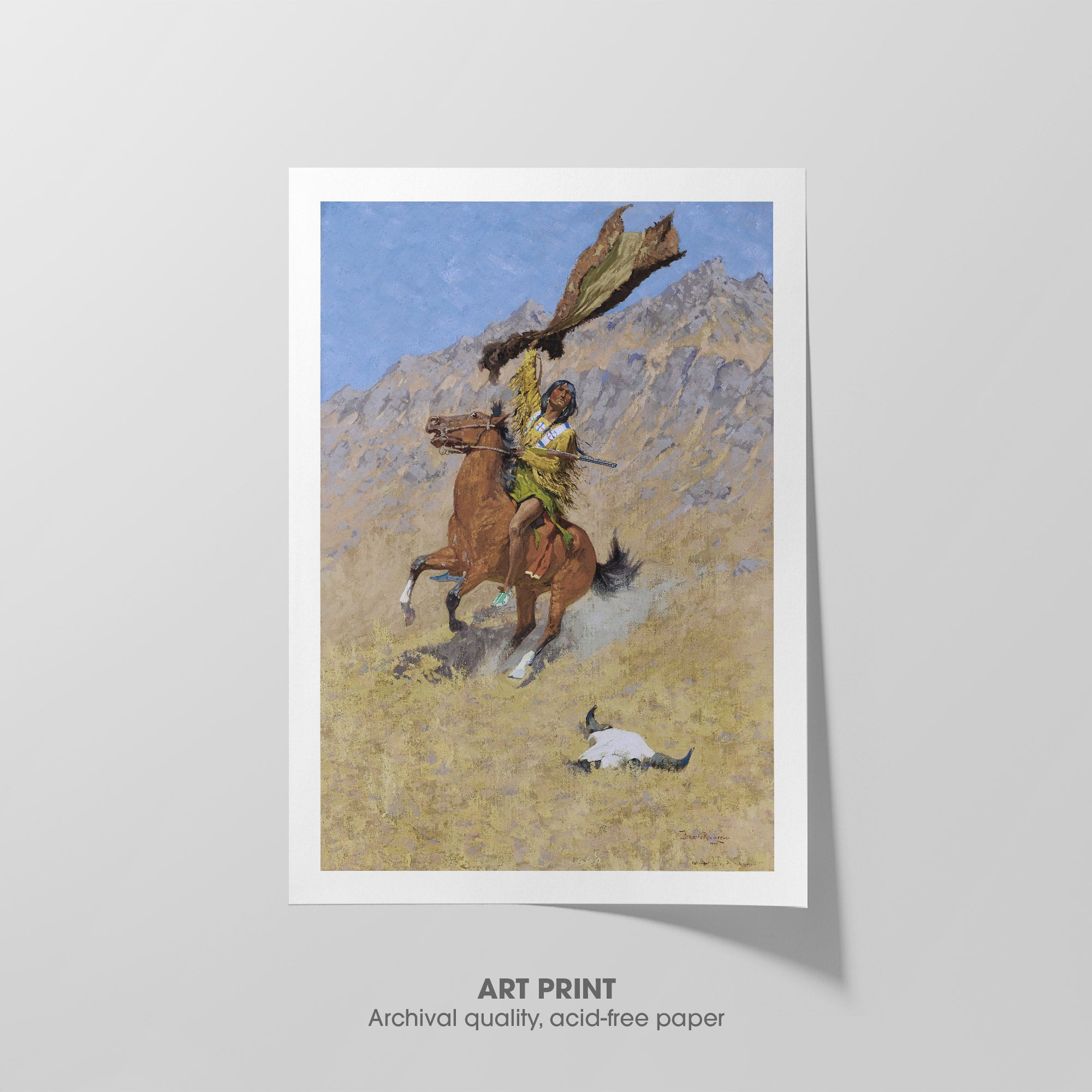
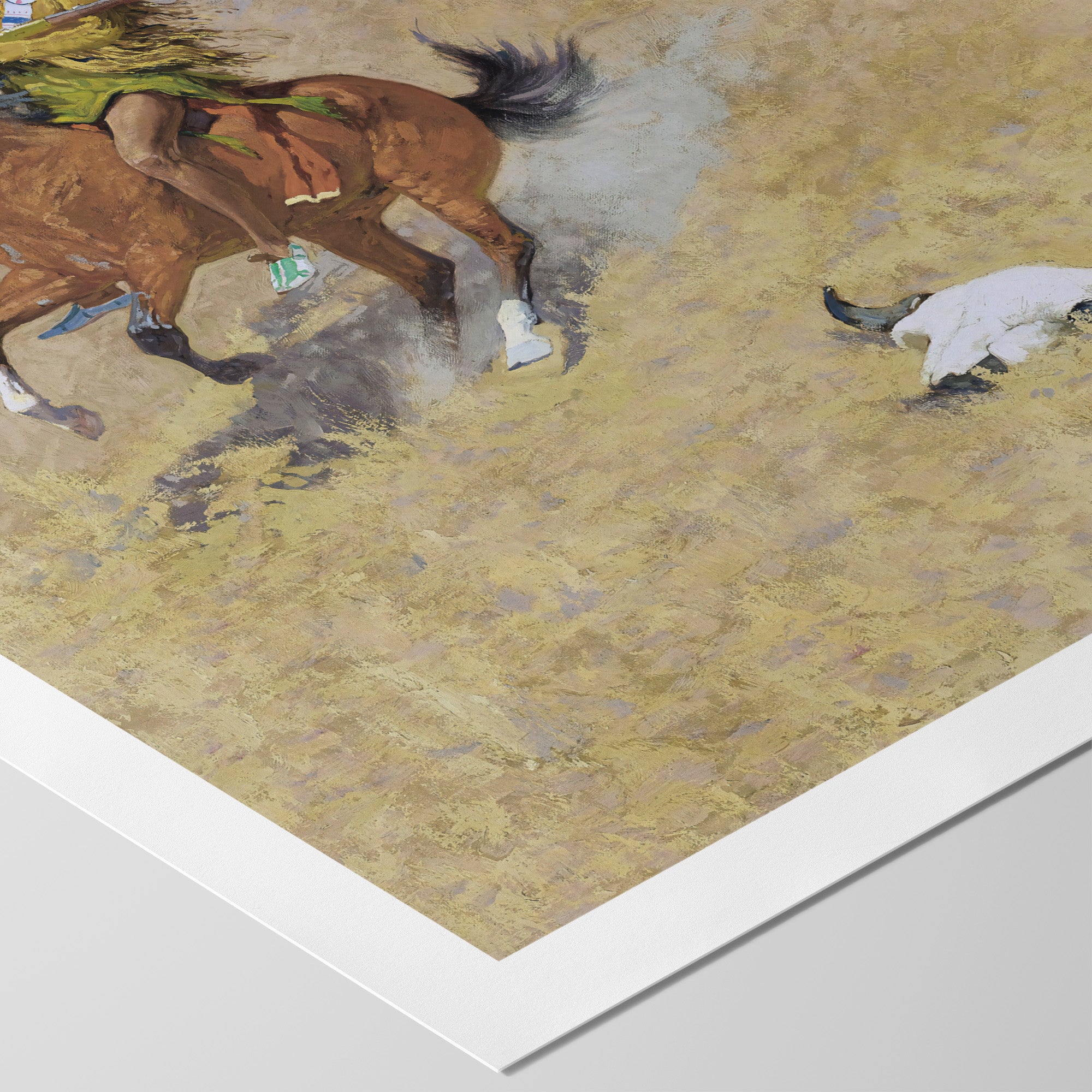 The Buffalo Signal (1900) by Frederic Remington, also known as If Skulls Could Speak, depicts an Indian buffalo scout on horseback signaling his tribesmen. The horse rears in alarm as he has been pulled to an abrupt halt to wave the buffalo ➵
The Buffalo Signal (1900) by Frederic Remington, also known as If Skulls Could Speak, depicts an Indian buffalo scout on horseback signaling his tribesmen. The horse rears in alarm as he has been pulled to an abrupt halt to wave the buffalo ➵◰ Canvas Reproductions
⧈ Framed Art Prints -
The Buffalo Signal ☴ Remington ☳ Canvas
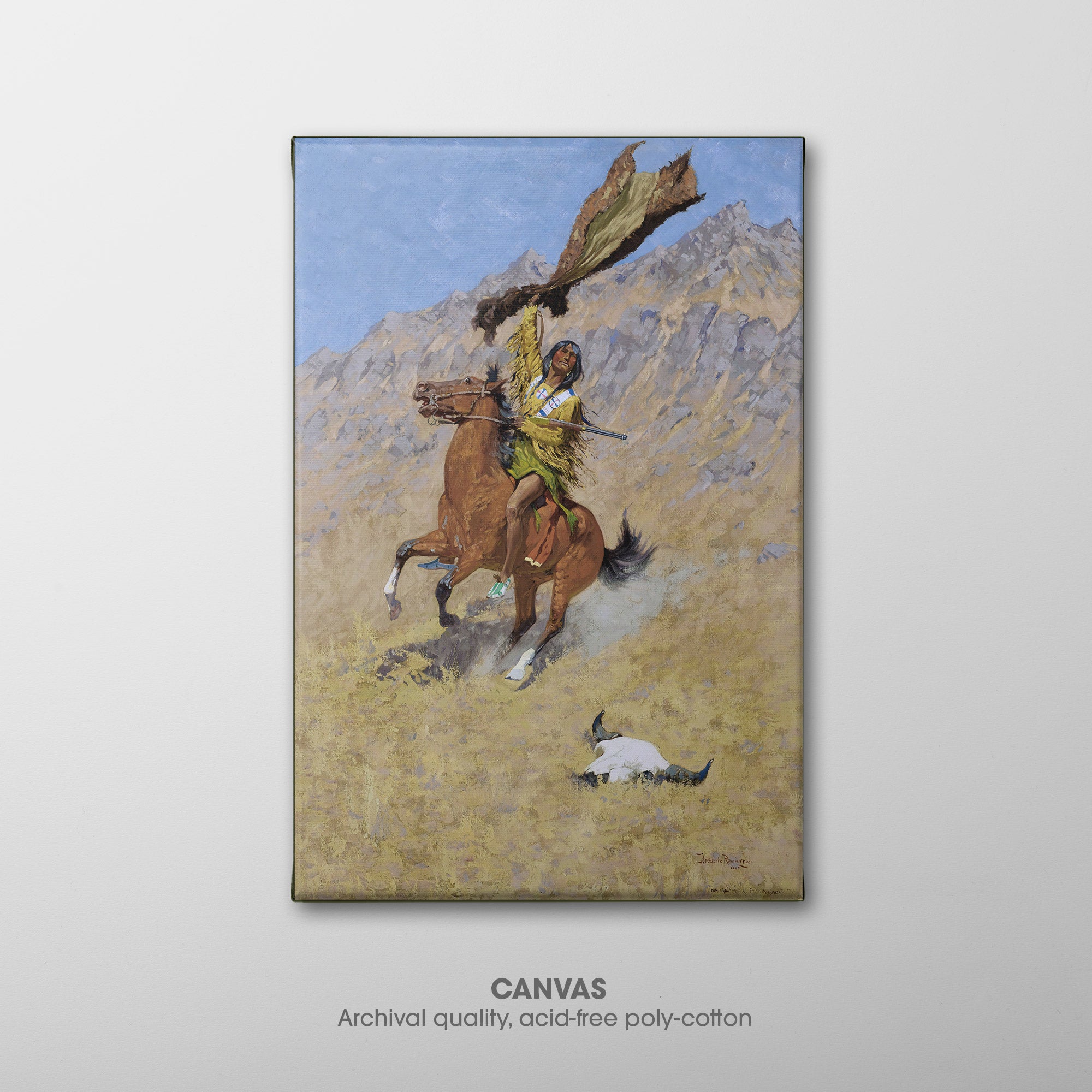
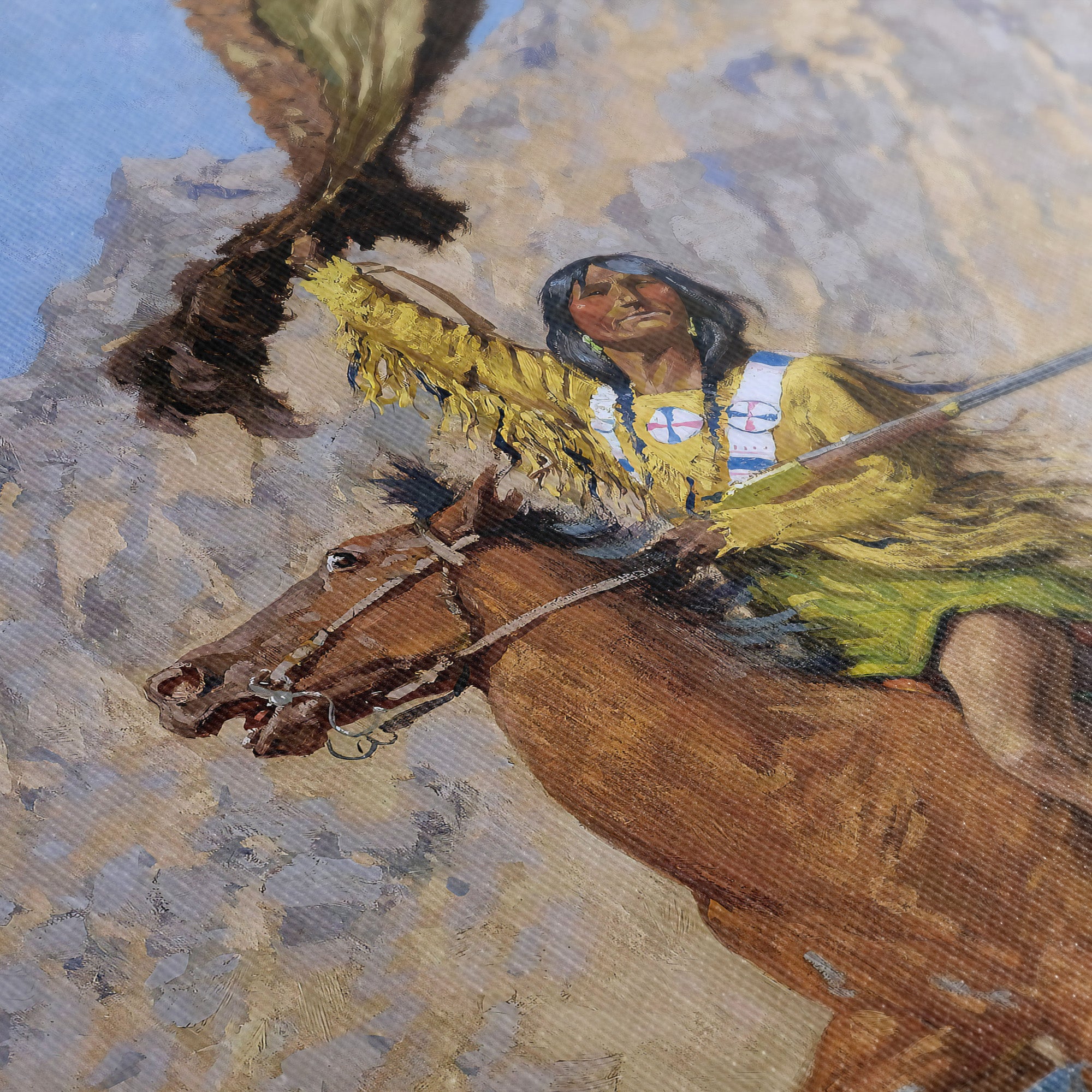 The Buffalo Signal (1900) by Frederic Remington, also known as If Skulls Could Speak, depicts an Indian buffalo scout on horseback signaling his tribesmen. The horse rears in alarm as he has been pulled to an abrupt halt to wave the buffalo ➵
The Buffalo Signal (1900) by Frederic Remington, also known as If Skulls Could Speak, depicts an Indian buffalo scout on horseback signaling his tribesmen. The horse rears in alarm as he has been pulled to an abrupt halt to wave the buffalo ➵◰ Canvas Reproductions
⧈ Framed Art Prints -
The Church at Auvers ☳ Van Gogh ☶ Art Print

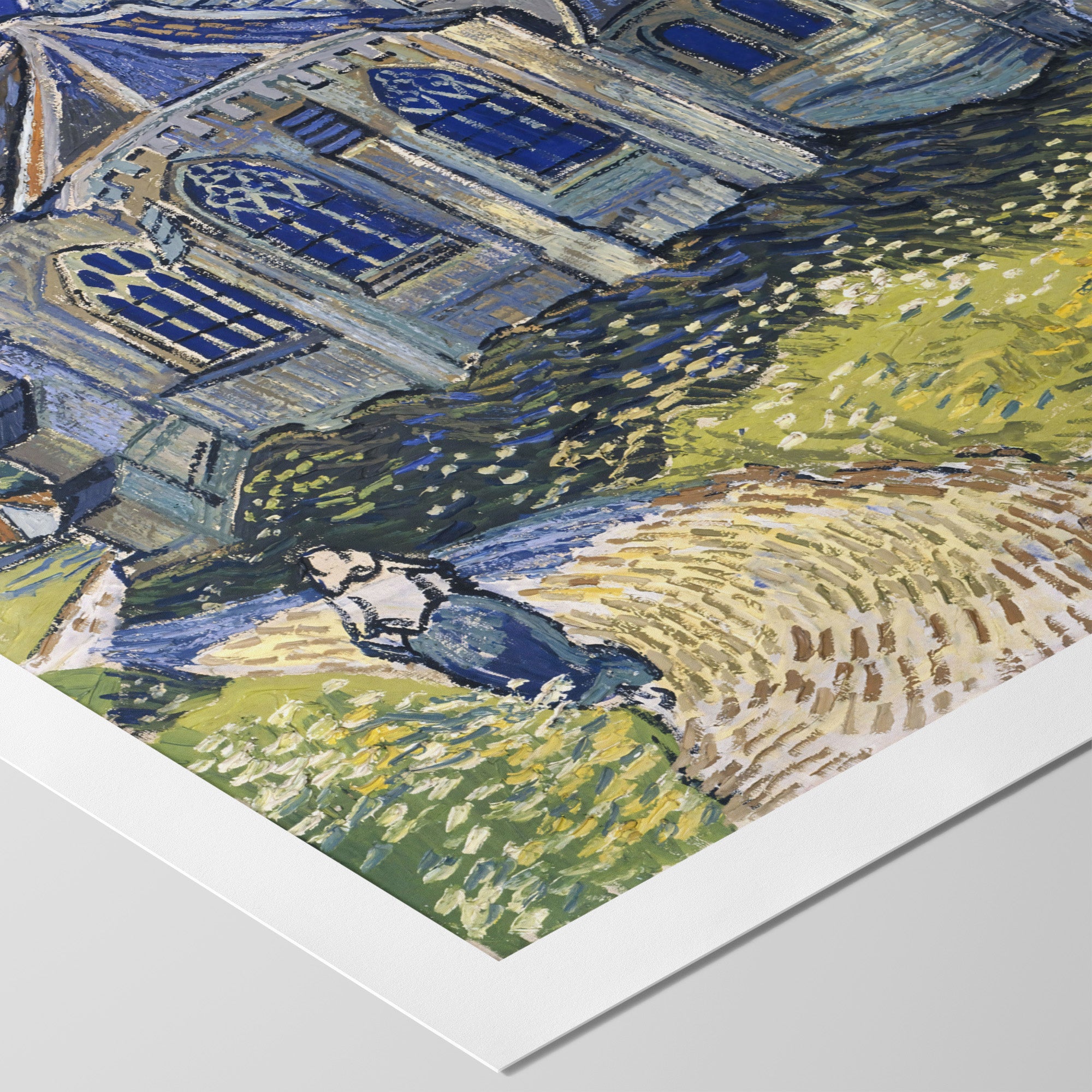 The Church at Auvers (1890) by Vincent van Gogh depicts the Église Notre-Dame-de-l'Assomption (Church of Our Lady of the Assumption) in Auvers, 17 miles northwest of Paris. The foreground is a brightly lit intersection of two paths, while the church sits in ➵
The Church at Auvers (1890) by Vincent van Gogh depicts the Église Notre-Dame-de-l'Assomption (Church of Our Lady of the Assumption) in Auvers, 17 miles northwest of Paris. The foreground is a brightly lit intersection of two paths, while the church sits in ➵◰ Canvas Reproductions
⧈ Framed Art Prints -
The Church at Auvers ☳ Van Gogh ☶ Canvas

 The Church at Auvers (1890) by Vincent van Gogh depicts the Église Notre-Dame-de-l'Assomption (Church of Our Lady of the Assumption) in Auvers, 17 miles northwest of Paris. The foreground is a brightly lit intersection of two paths, while the church sits in ➵
The Church at Auvers (1890) by Vincent van Gogh depicts the Église Notre-Dame-de-l'Assomption (Church of Our Lady of the Assumption) in Auvers, 17 miles northwest of Paris. The foreground is a brightly lit intersection of two paths, while the church sits in ➵◰ Canvas Reproductions
⧈ Framed Art Prints -
The Conjurer ☵ Bosch ☴ Art Print
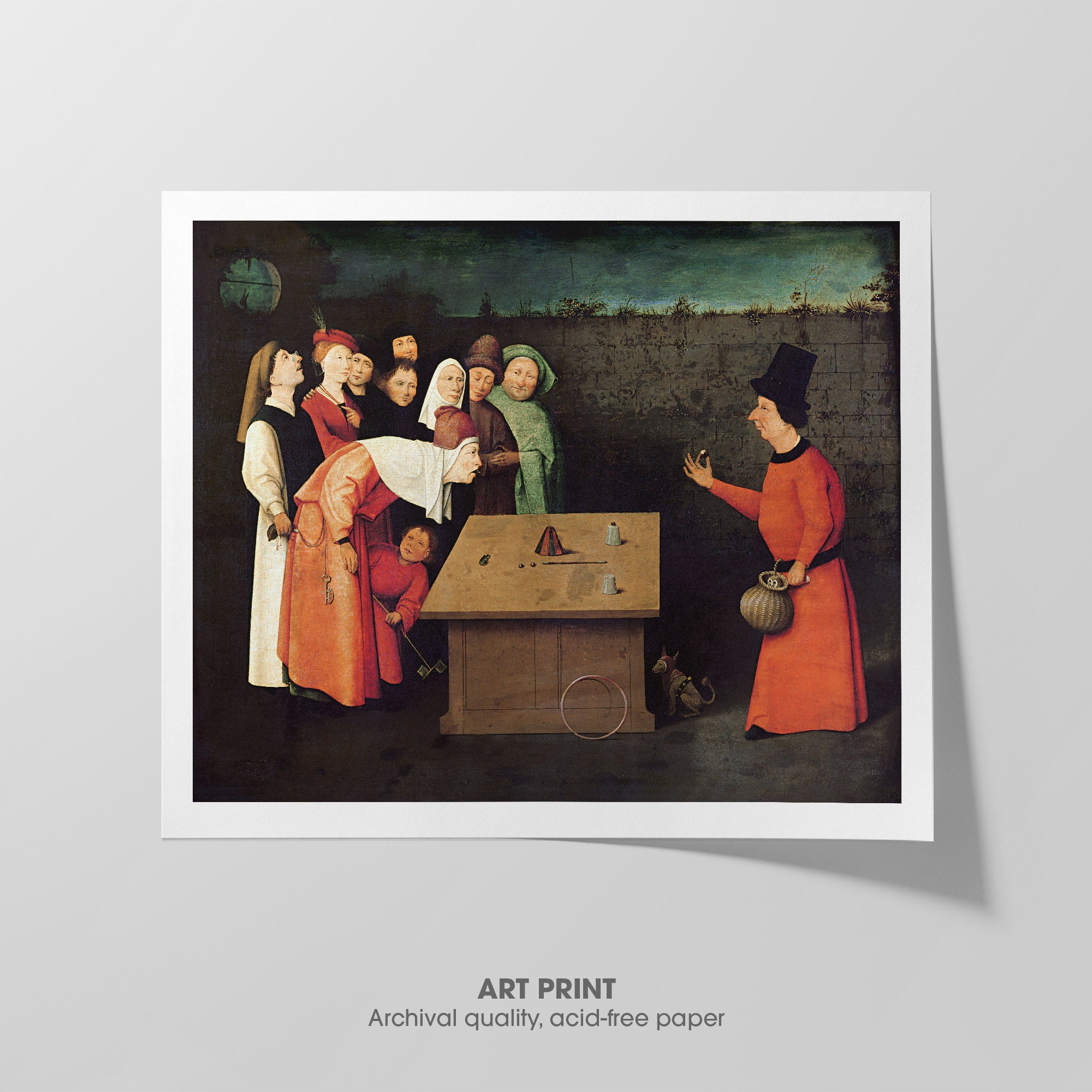
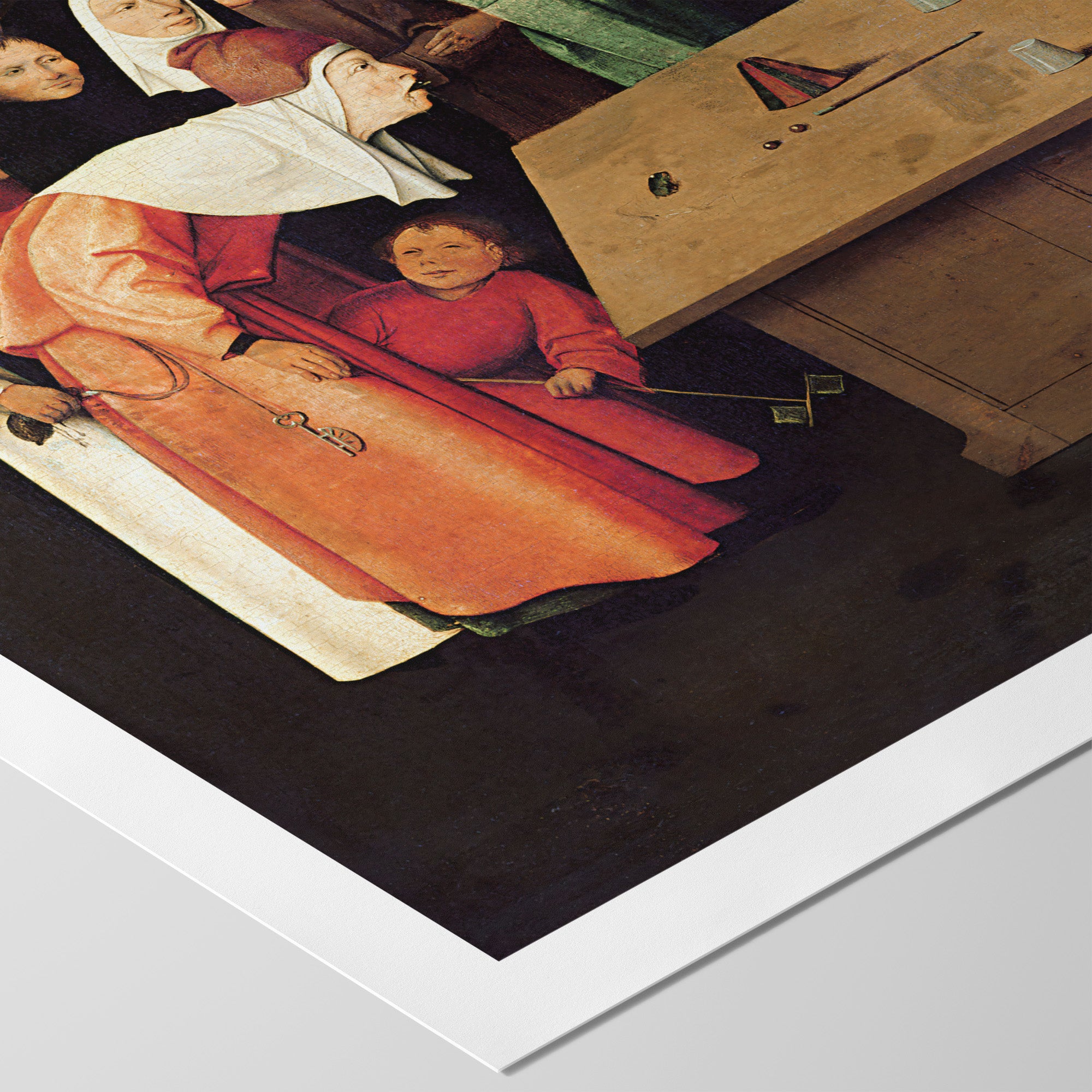 The Conjurer (1502) by Hieronymus Bosch is a notably secular painting whereas he is generally known for religious depictions. It is one of five versions of the painting, and one engraving, made when scenes of everyday life were becoming more popular. Bosch ➵
The Conjurer (1502) by Hieronymus Bosch is a notably secular painting whereas he is generally known for religious depictions. It is one of five versions of the painting, and one engraving, made when scenes of everyday life were becoming more popular. Bosch ➵◰ Canvas Reproductions
⧈ Framed Art Prints -
The Conjurer ☵ Bosch ☴ Canvas
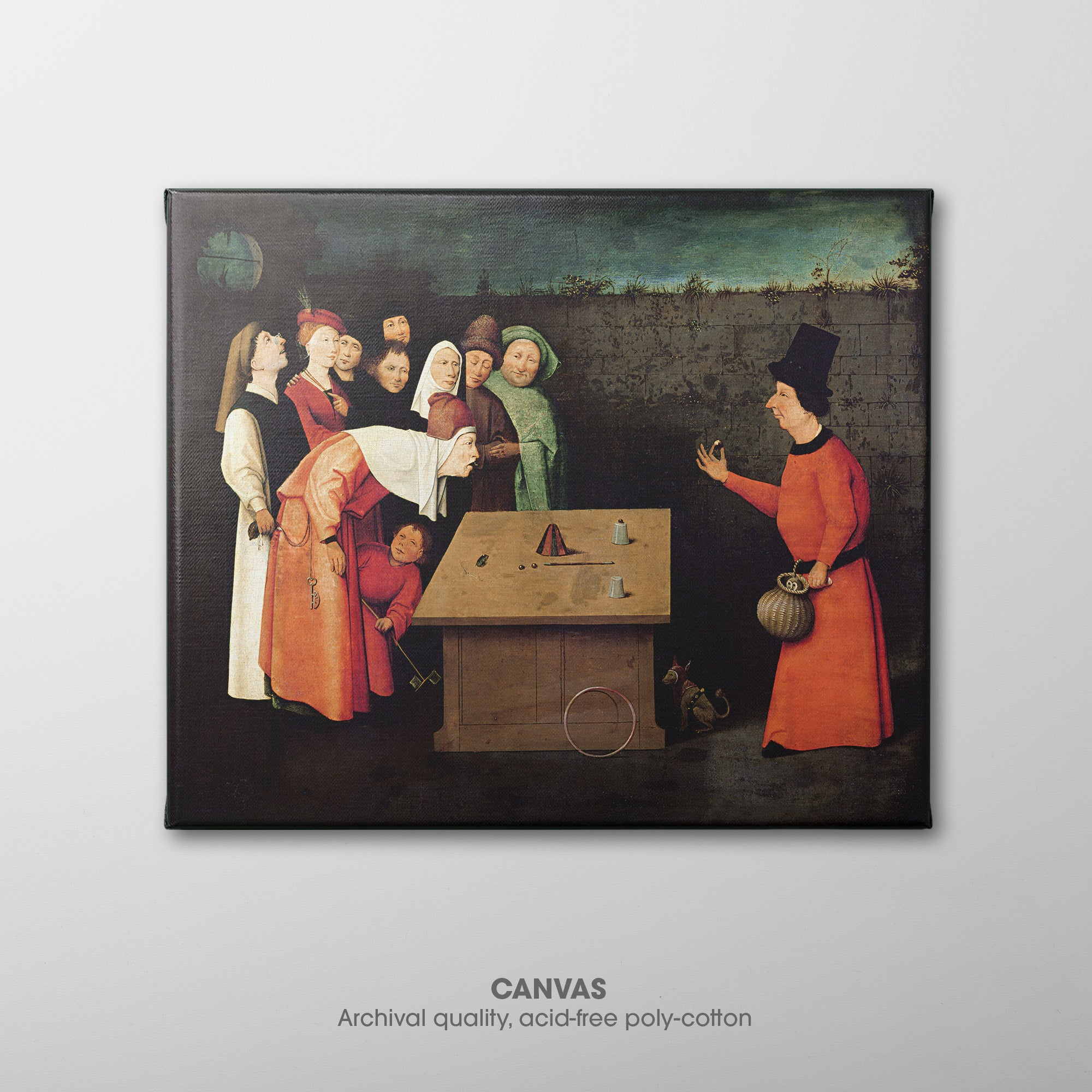
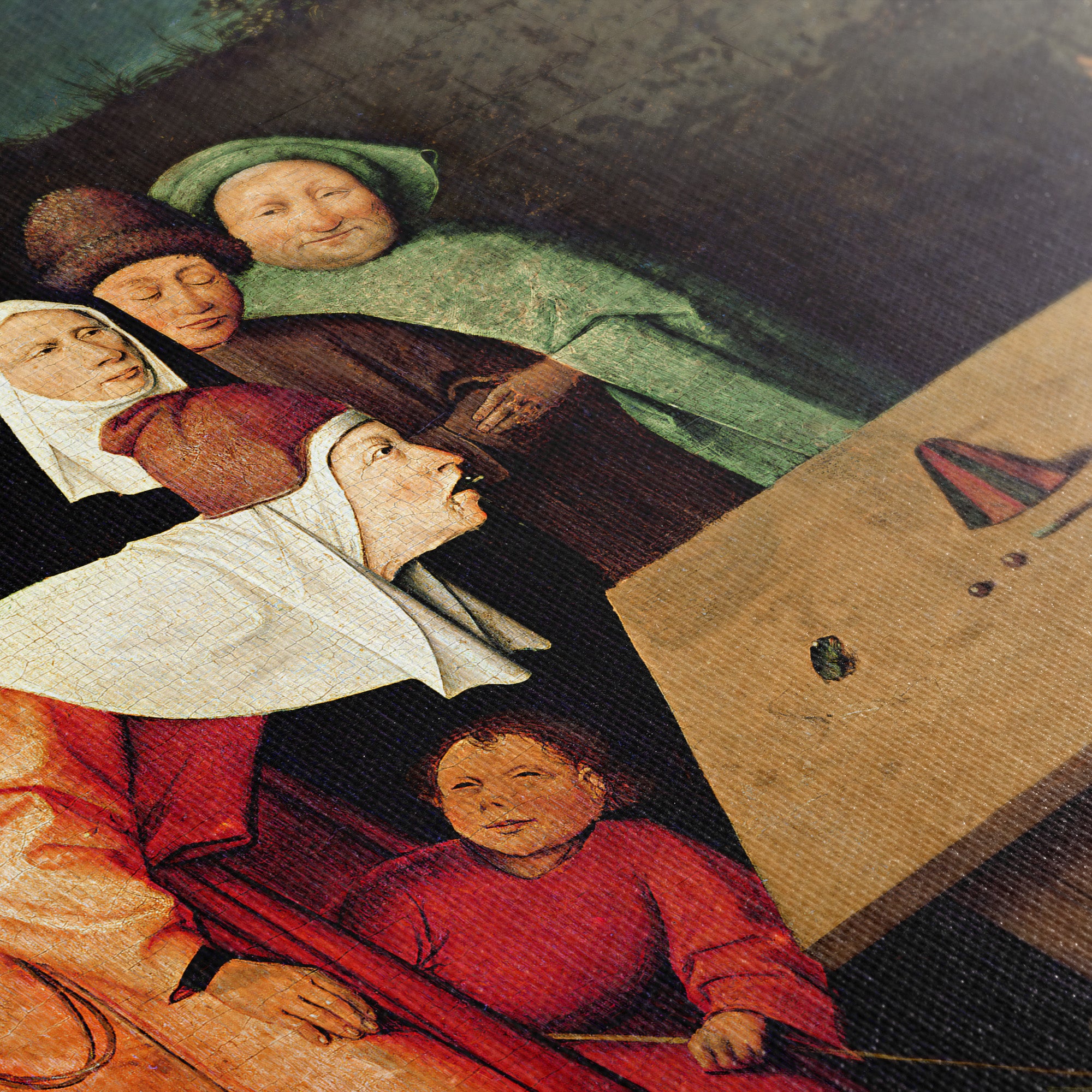 The Conjurer (1502) by Hieronymus Bosch is a notably secular painting whereas he is generally known for religious depictions. It is one of five versions of the painting, and one engraving, made when scenes of everyday life were becoming more popular. Bosch ➵
The Conjurer (1502) by Hieronymus Bosch is a notably secular painting whereas he is generally known for religious depictions. It is one of five versions of the painting, and one engraving, made when scenes of everyday life were becoming more popular. Bosch ➵◰ Canvas Reproductions
⧈ Framed Art Prints -
The Cowboy ☷ Remington ☳ Art Print
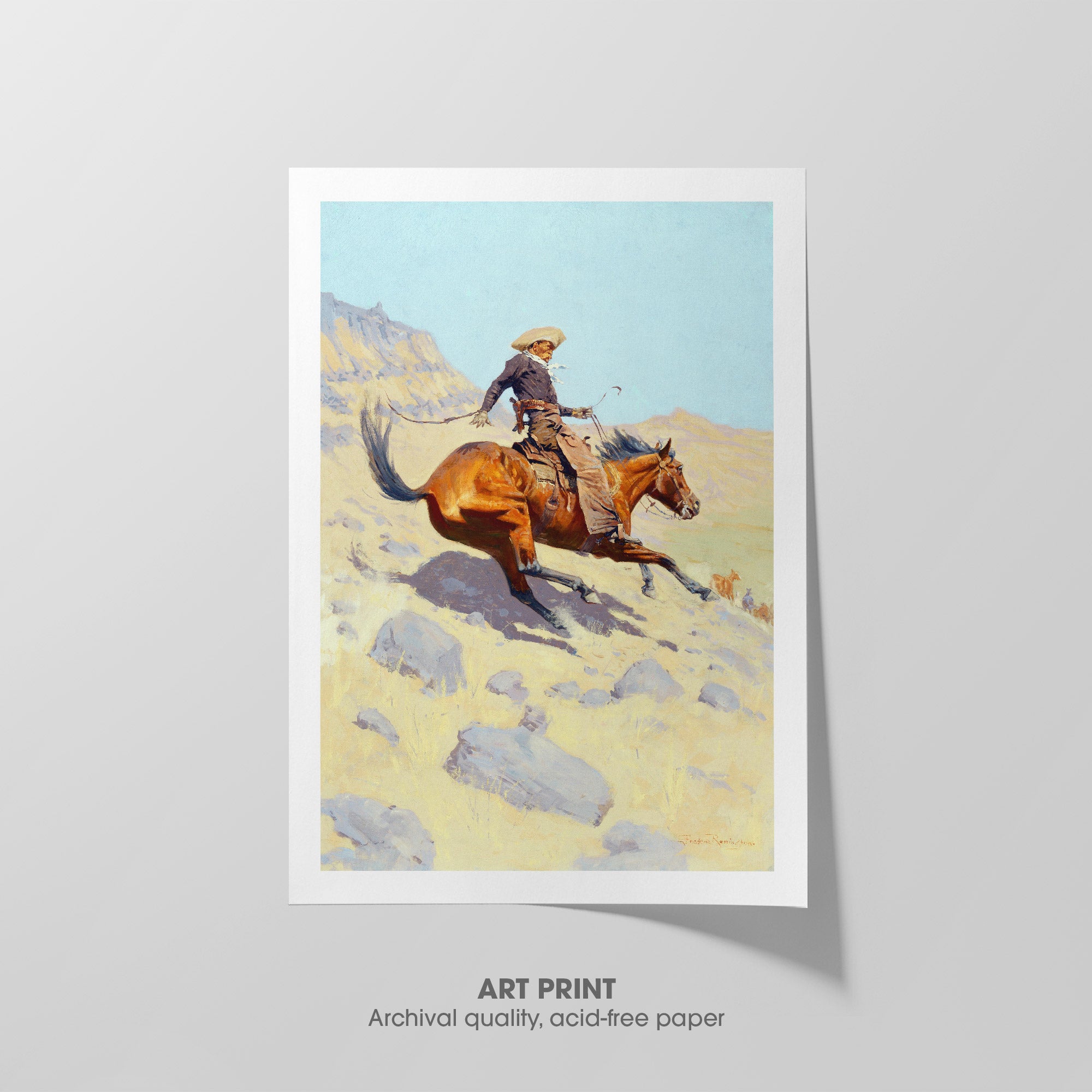
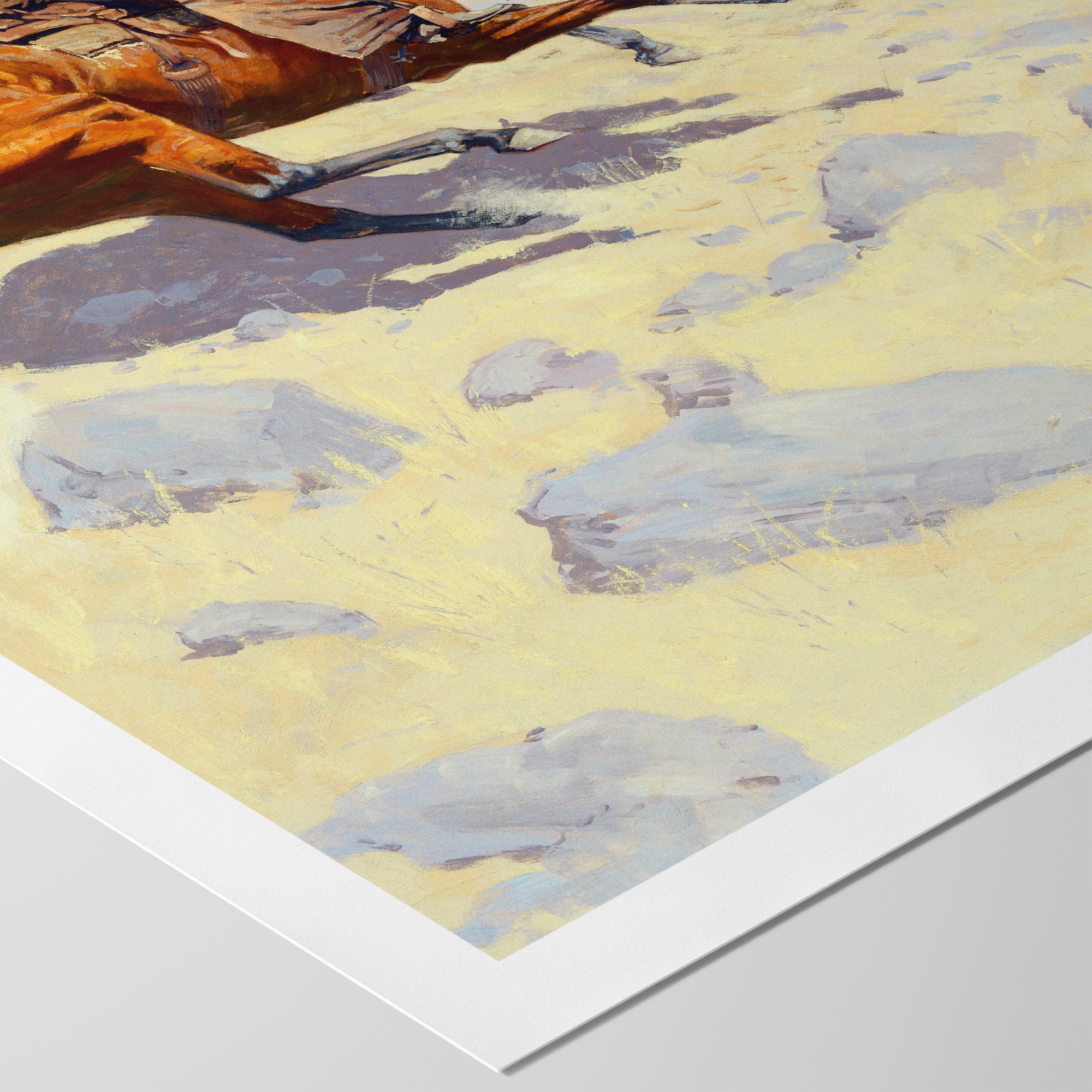 The Cowboy (1902) by Frederic Remington depicts cowboy riding a horse down a steep, rocky incline. A solitary, heroic figure, symbol of the American West, the cowboy is attired in a wide-brimmed hat, chaps, and boots. Remington's fluid brushwork and focus on ➵
The Cowboy (1902) by Frederic Remington depicts cowboy riding a horse down a steep, rocky incline. A solitary, heroic figure, symbol of the American West, the cowboy is attired in a wide-brimmed hat, chaps, and boots. Remington's fluid brushwork and focus on ➵◰ Canvas Reproductions
⧈ Framed Art Prints -
The Cowboy ☷ Remington ☳ Canvas
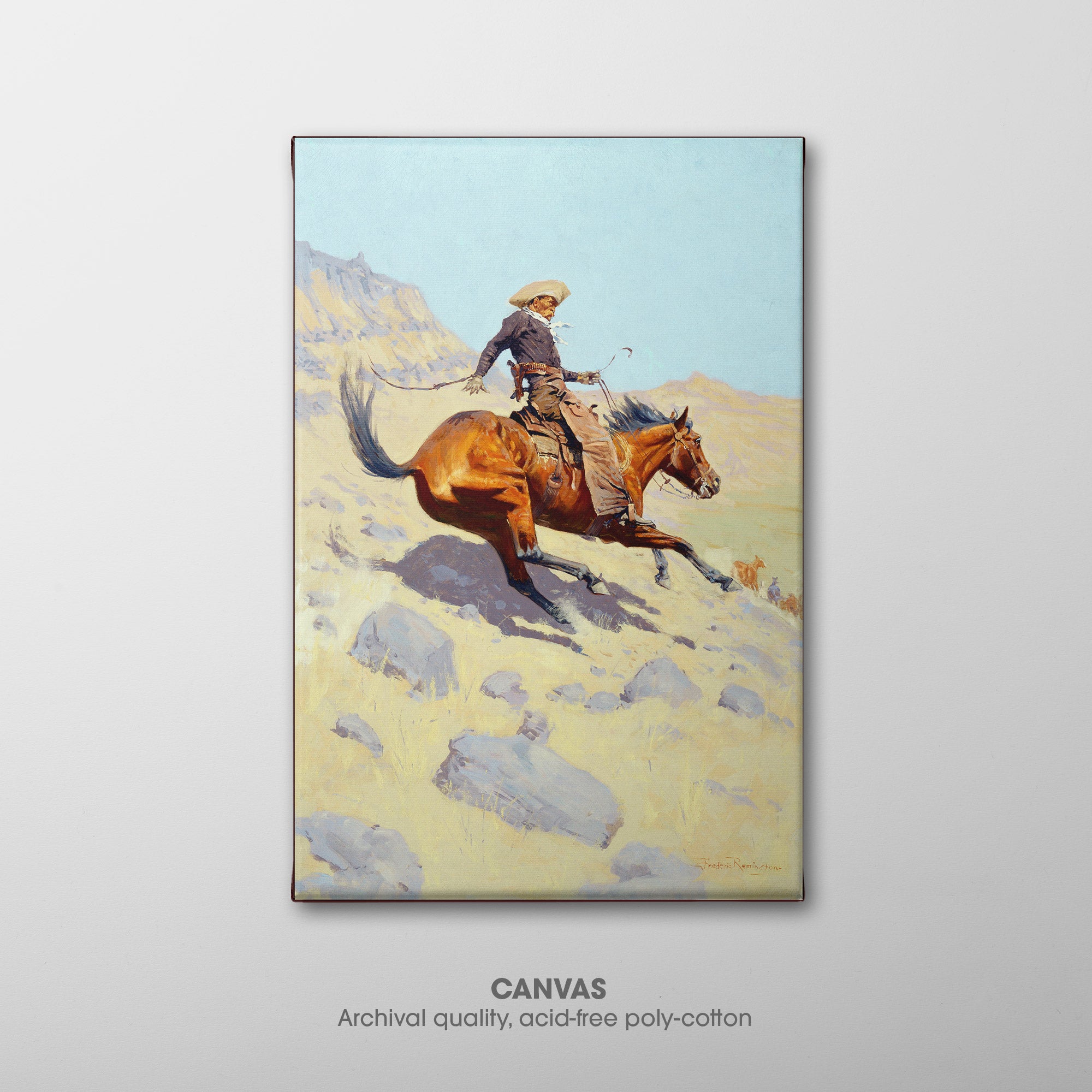
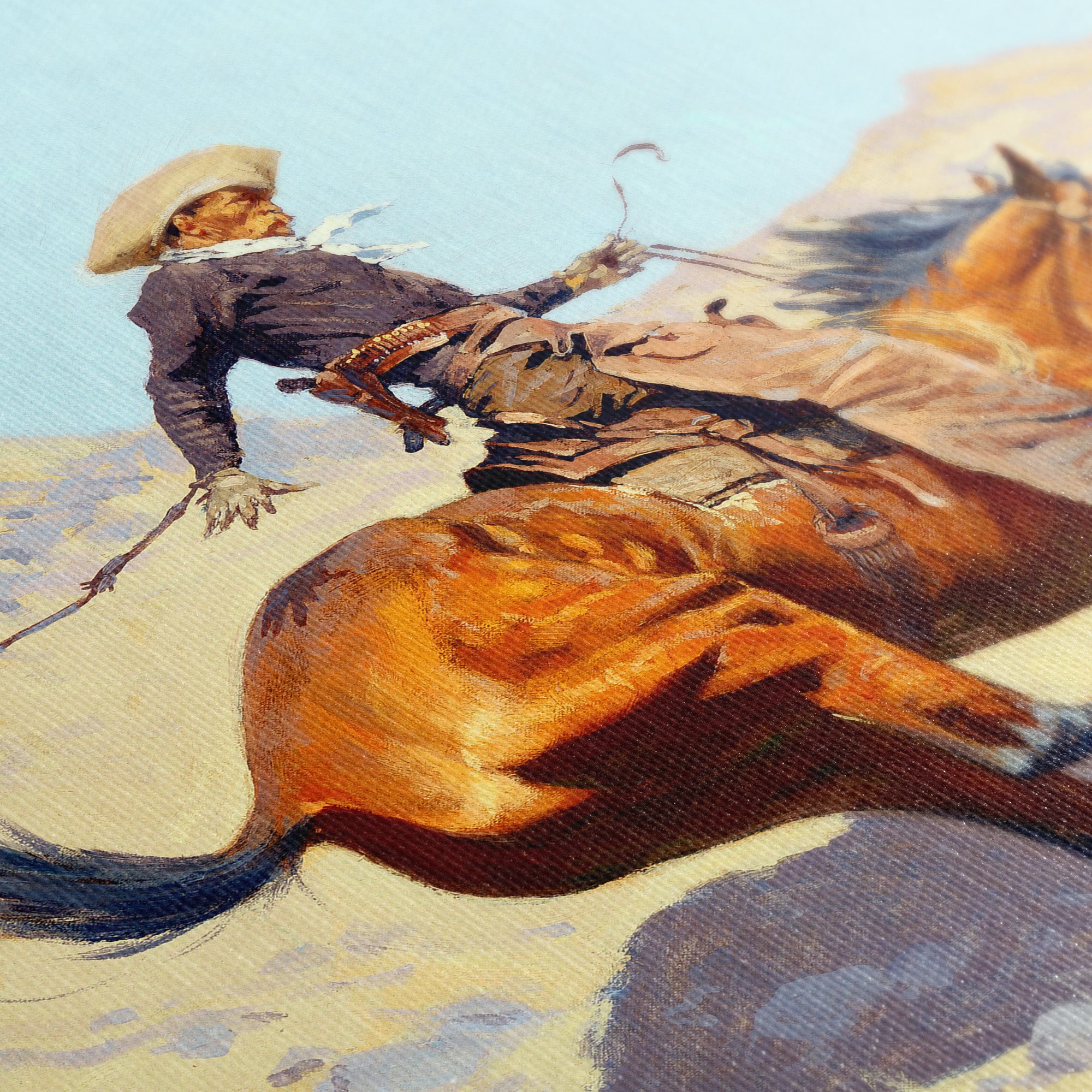 The Cowboy (1902) by Frederic Remington depicts cowboy riding a horse down a steep, rocky incline. A solitary, heroic figure, symbol of the American West, the cowboy is attired in a wide-brimmed hat, chaps, and boots. Remington's fluid brushwork and focus on ➵
The Cowboy (1902) by Frederic Remington depicts cowboy riding a horse down a steep, rocky incline. A solitary, heroic figure, symbol of the American West, the cowboy is attired in a wide-brimmed hat, chaps, and boots. Remington's fluid brushwork and focus on ➵◰ Canvas Reproductions
⧈ Framed Art Prints -
The Dream ☱ Rousseau ☷ Art Print

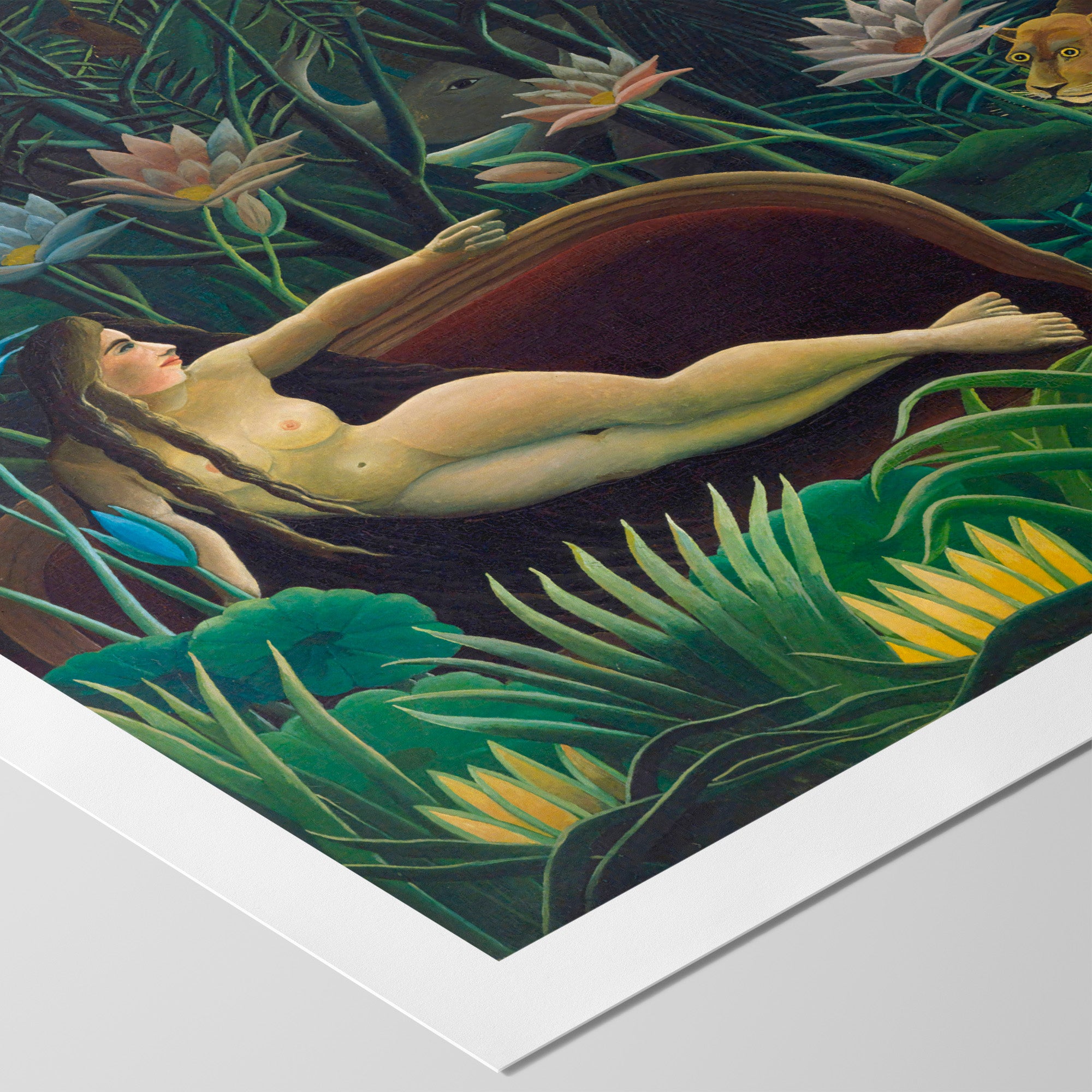 The Dream (1910, Le Rêve) by Henri Rousseau is one of more than 25 jungle scenes he painted. It is a surreal portrait of Yadwigha, Rousseau's Polish mistress from his youth, lying naked on a divan. She gazes over a landscape of ➵
The Dream (1910, Le Rêve) by Henri Rousseau is one of more than 25 jungle scenes he painted. It is a surreal portrait of Yadwigha, Rousseau's Polish mistress from his youth, lying naked on a divan. She gazes over a landscape of ➵◰ Canvas Reproductions
⧈ Framed Art Prints -
The Dream ☱ Rousseau ☷ Canvas
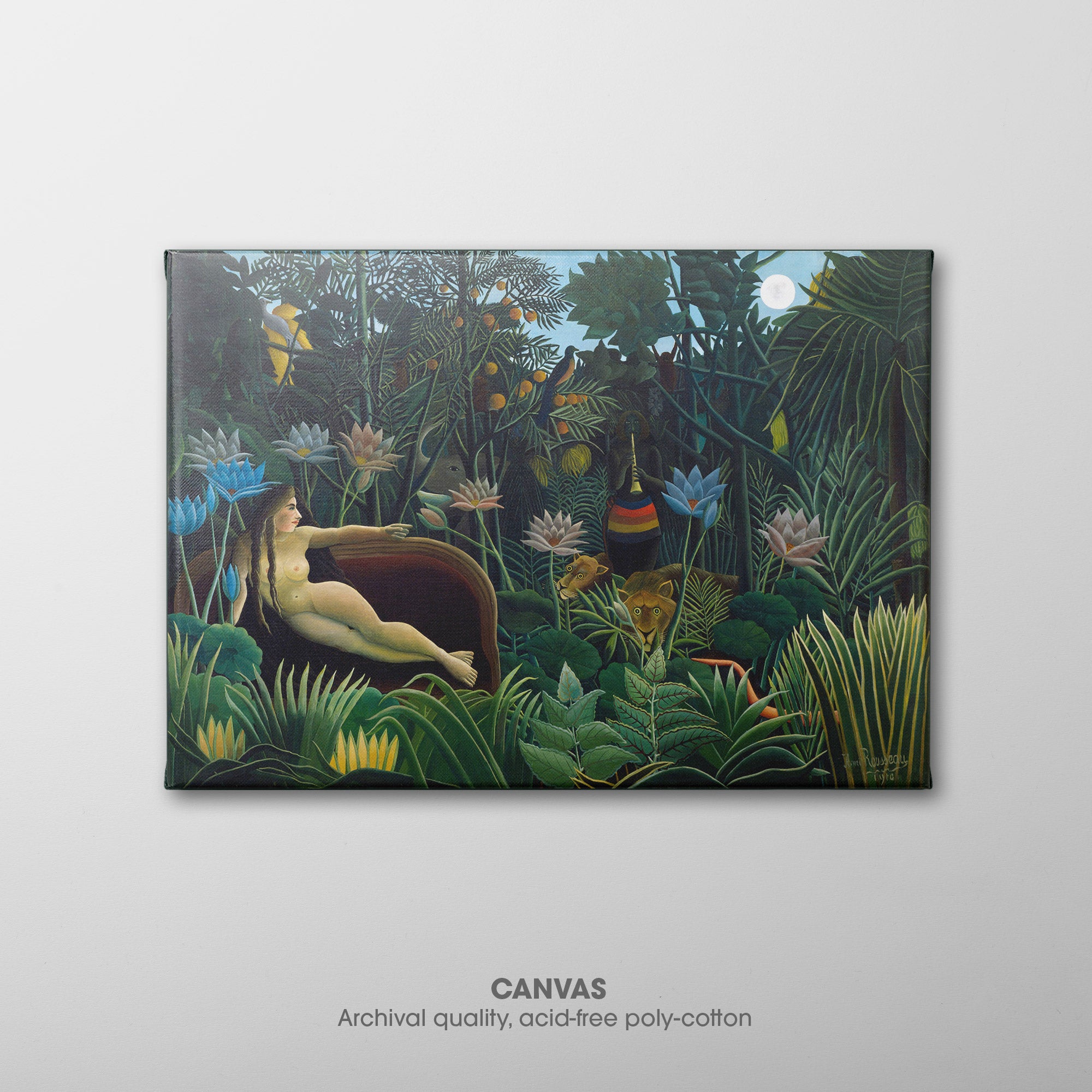
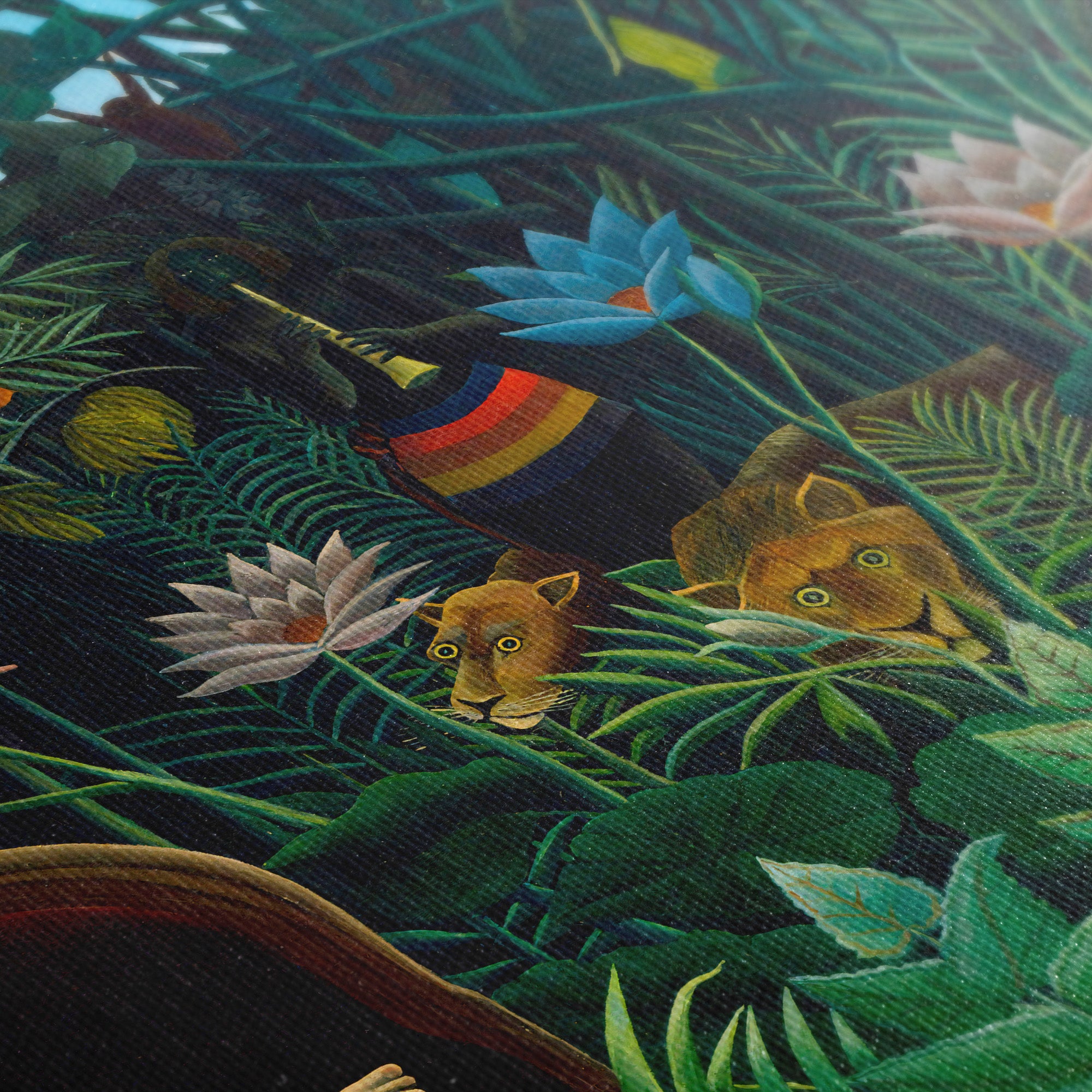 The Dream (1910, Le Rêve) by Henri Rousseau is one of more than 25 jungle scenes he painted. It is a surreal portrait of Yadwigha, Rousseau's Polish mistress from his youth, lying naked on a divan. She gazes over a landscape of ➵
The Dream (1910, Le Rêve) by Henri Rousseau is one of more than 25 jungle scenes he painted. It is a surreal portrait of Yadwigha, Rousseau's Polish mistress from his youth, lying naked on a divan. She gazes over a landscape of ➵◰ Canvas Reproductions
⧈ Framed Art Prints -
The Fall of the Cowboy ☰ Remington ☶ Art Print
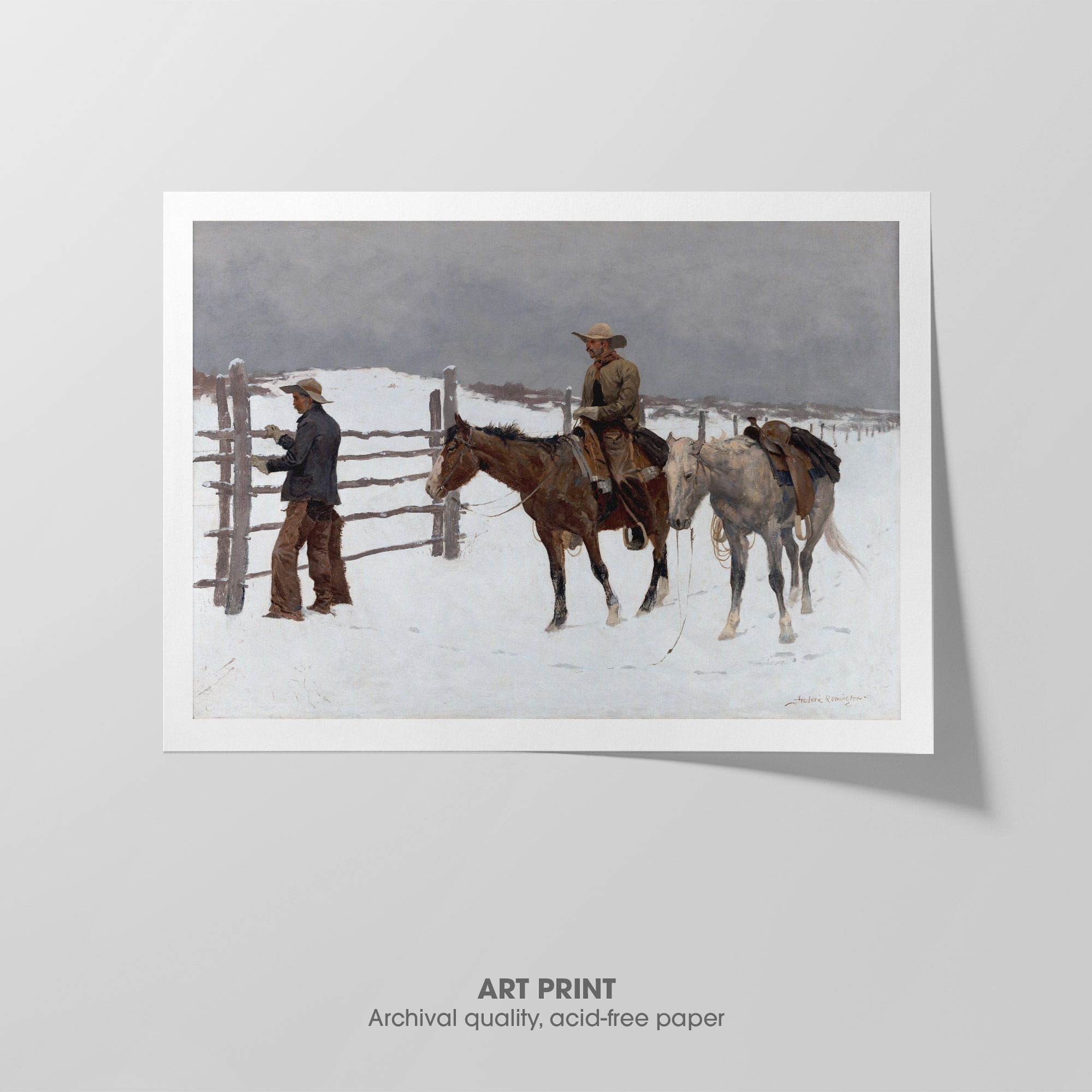
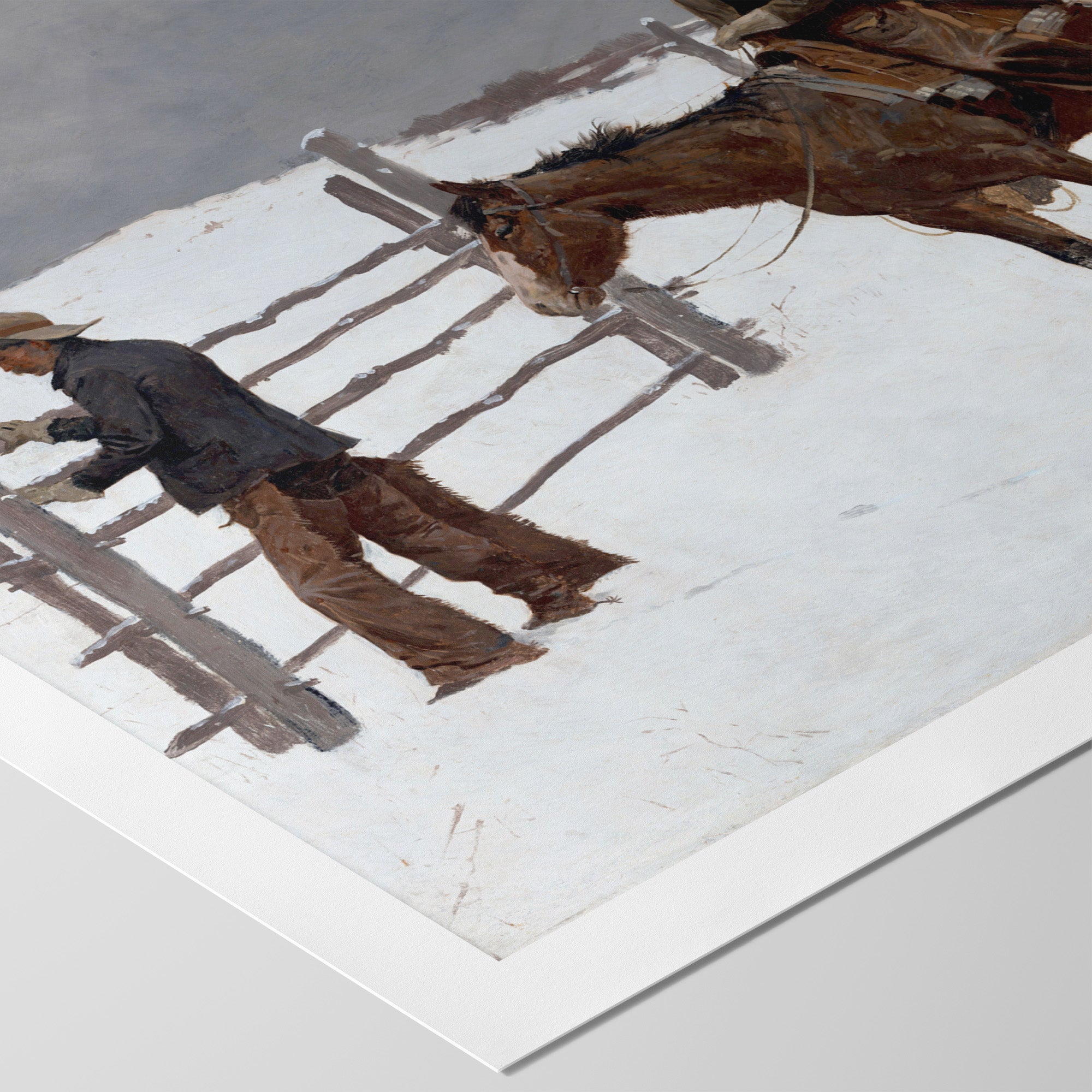 The Fall of the Cowboy (1895) by Frederic Remington depicts two cowboys at the gate of a barbed wire fence, a ranching technology that beginning in the 1870s signaled the end of cowboy life. It divides the painting in half, symbolically fencing ➵
The Fall of the Cowboy (1895) by Frederic Remington depicts two cowboys at the gate of a barbed wire fence, a ranching technology that beginning in the 1870s signaled the end of cowboy life. It divides the painting in half, symbolically fencing ➵◰ Canvas Reproductions
⧈ Framed Art Prints -
The Fall of the Cowboy ☰ Remington ☶ Canvas
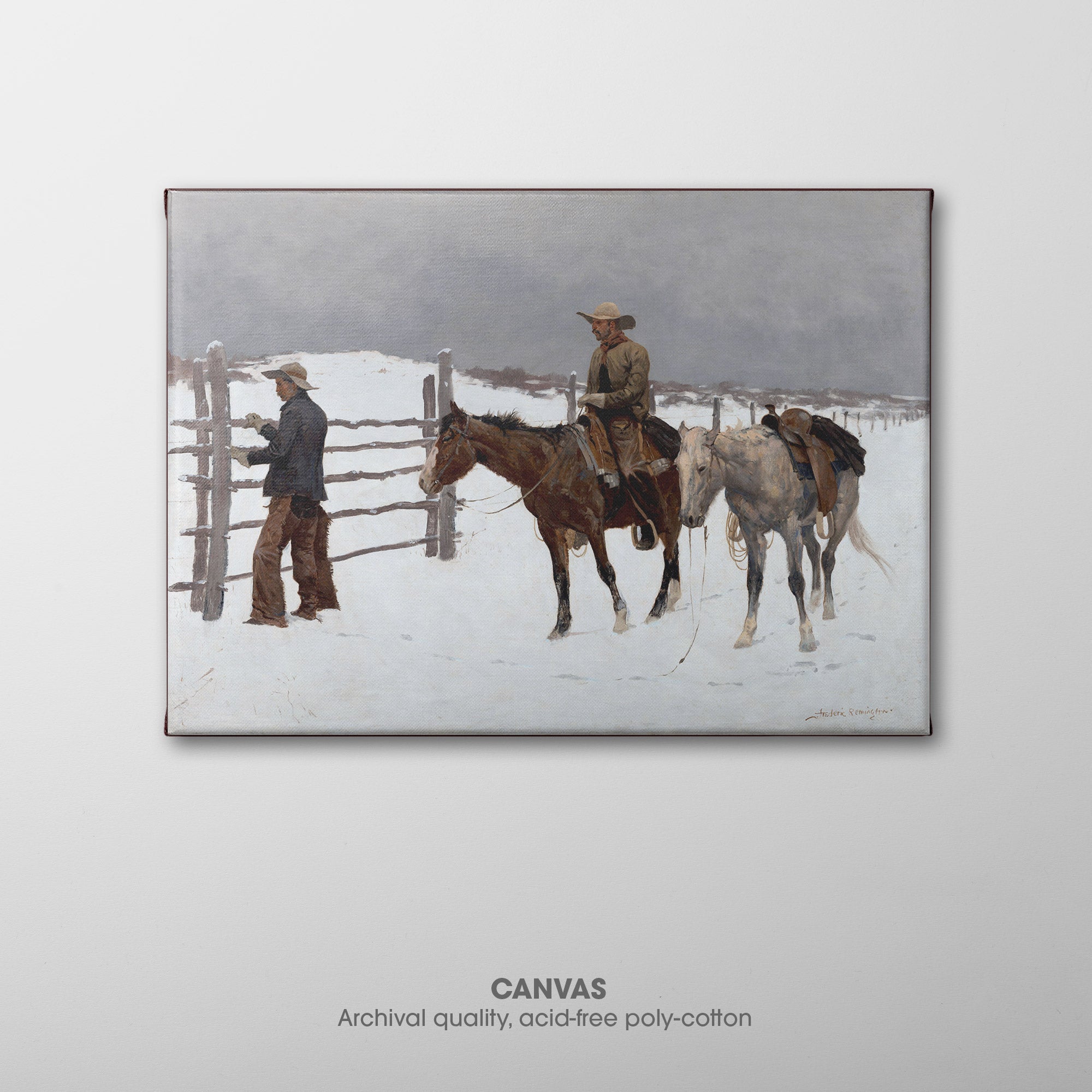
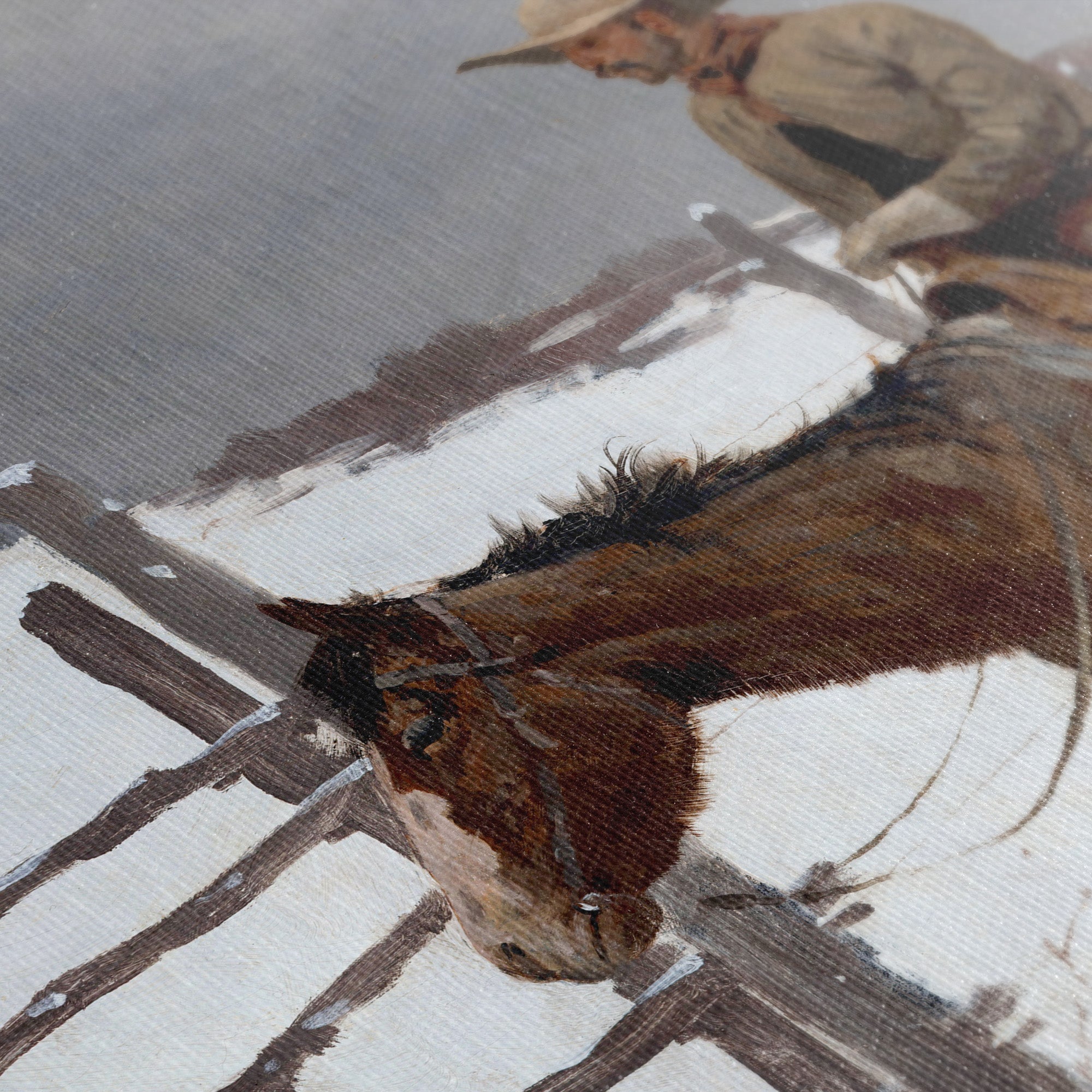 The Fall of the Cowboy (1895) by Frederic Remington depicts two cowboys at the gate of a barbed wire fence, a ranching technology that beginning in the 1870s signaled the end of cowboy life. It divides the painting in half, symbolically fencing ➵
The Fall of the Cowboy (1895) by Frederic Remington depicts two cowboys at the gate of a barbed wire fence, a ranching technology that beginning in the 1870s signaled the end of cowboy life. It divides the painting in half, symbolically fencing ➵◰ Canvas Reproductions
⧈ Framed Art Prints -
The Falling Rocket ☰ Whistler ☲ Art Print
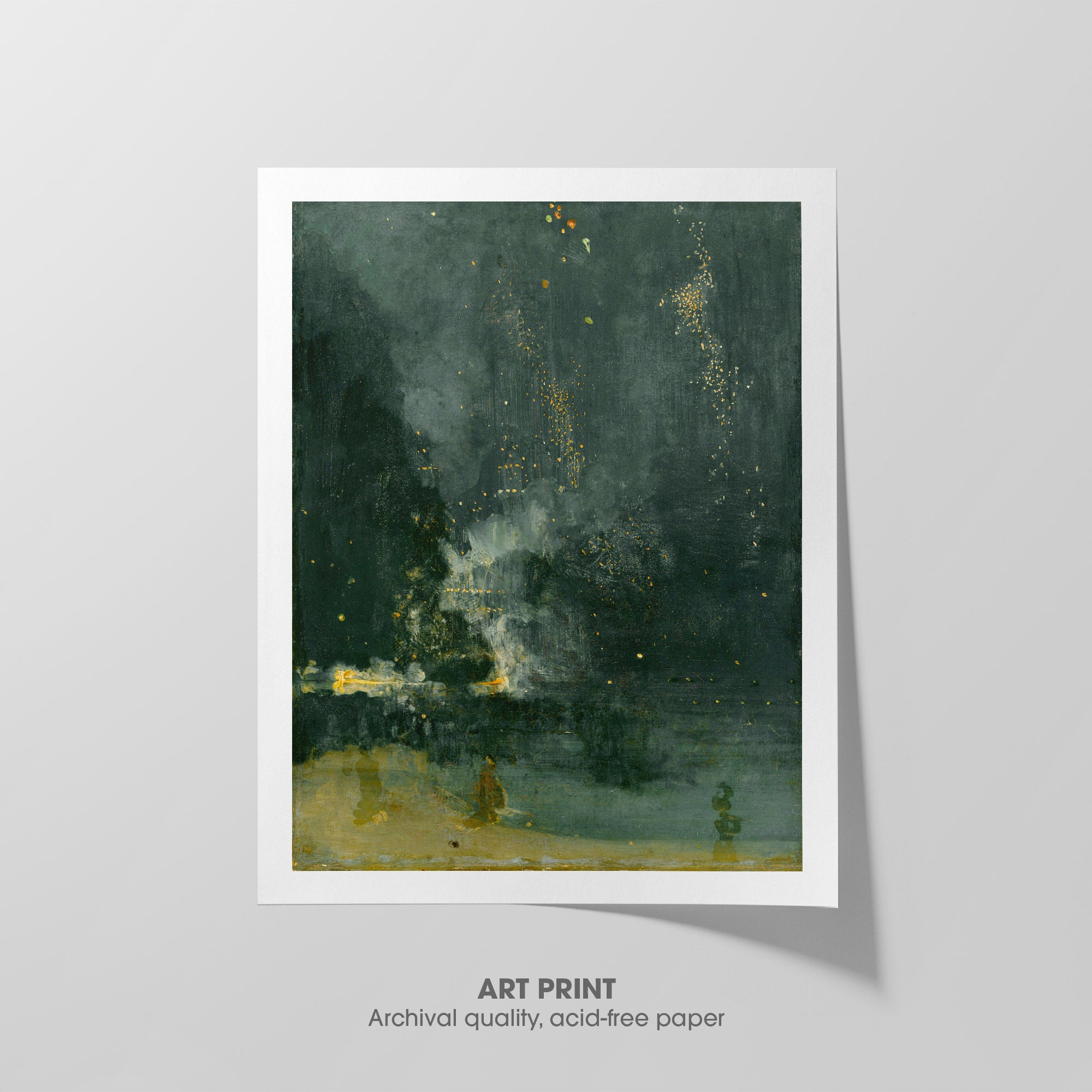
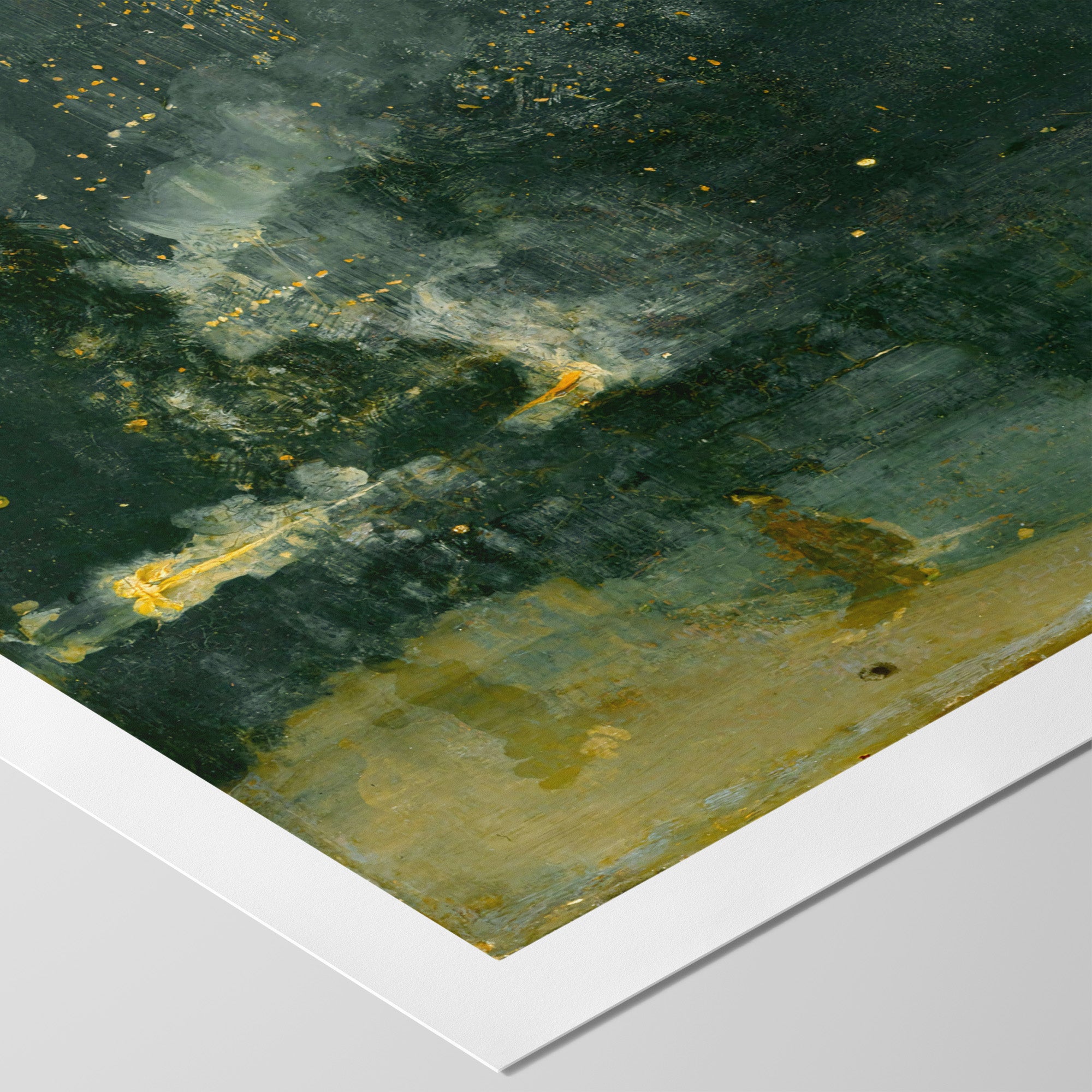 Nocturne in Black and Gold: The Falling Rocket (1877) by James McNeill Whistler depicts a fireworks display in the foggy night sky, inspired by Cremorne Gardens, a celebrated resort in Chelsea, London. John Ruskin, a leading art critic of the Victorian era, ➵
Nocturne in Black and Gold: The Falling Rocket (1877) by James McNeill Whistler depicts a fireworks display in the foggy night sky, inspired by Cremorne Gardens, a celebrated resort in Chelsea, London. John Ruskin, a leading art critic of the Victorian era, ➵◰ Canvas Reproductions
⧈ Framed Art Prints -
The Falling Rocket ☰ Whistler ☲ Canvas

 Nocturne in Black and Gold: The Falling Rocket (1877) by James McNeill Whistler depicts a fireworks display in the foggy night sky, inspired by Cremorne Gardens, a celebrated resort in Chelsea, London. John Ruskin, a leading art critic of the Victorian era, ➵
Nocturne in Black and Gold: The Falling Rocket (1877) by James McNeill Whistler depicts a fireworks display in the foggy night sky, inspired by Cremorne Gardens, a celebrated resort in Chelsea, London. John Ruskin, a leading art critic of the Victorian era, ➵◰ Canvas Reproductions
⧈ Framed Art Prints -
The Geographer ☷ Vermeer ☶ Art Print
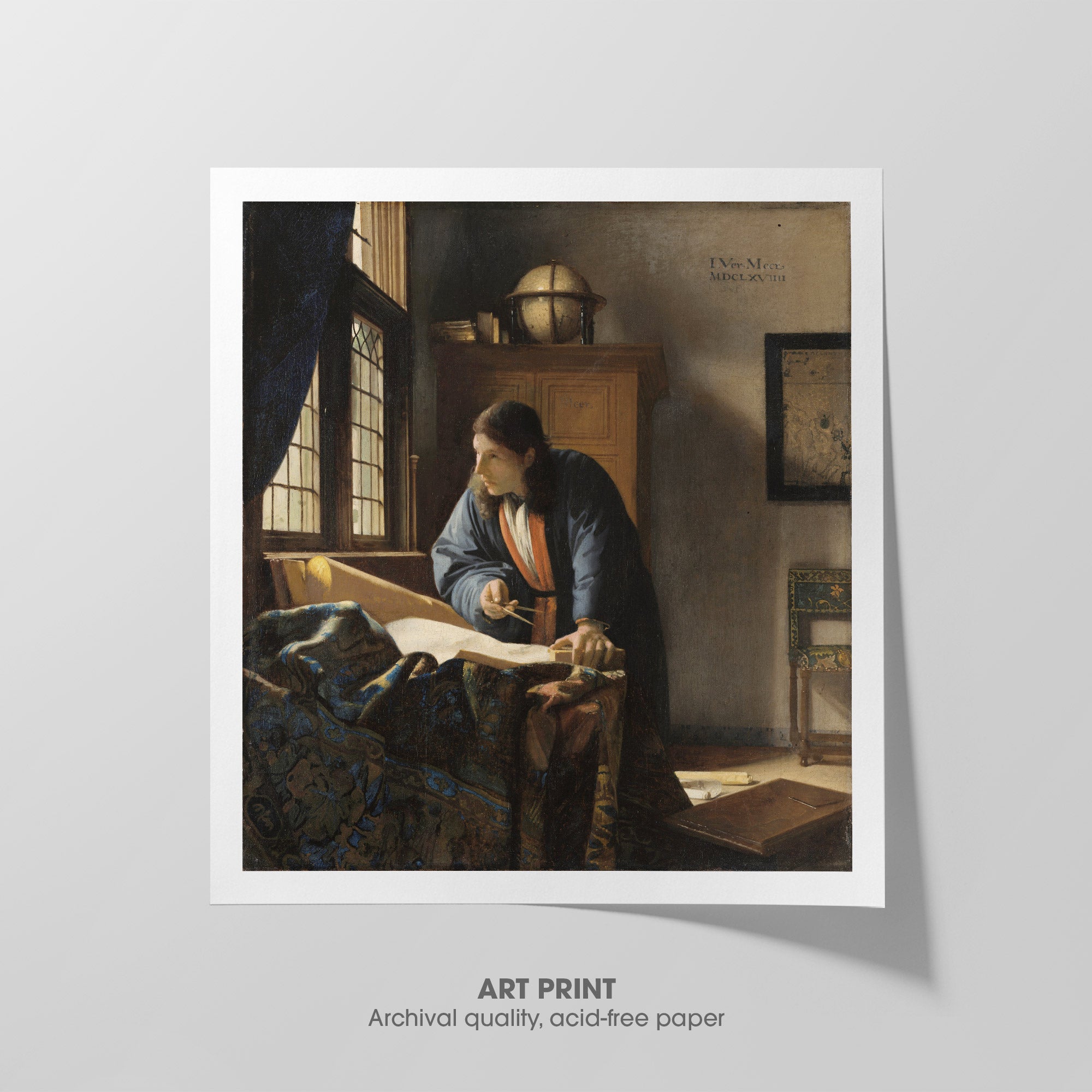
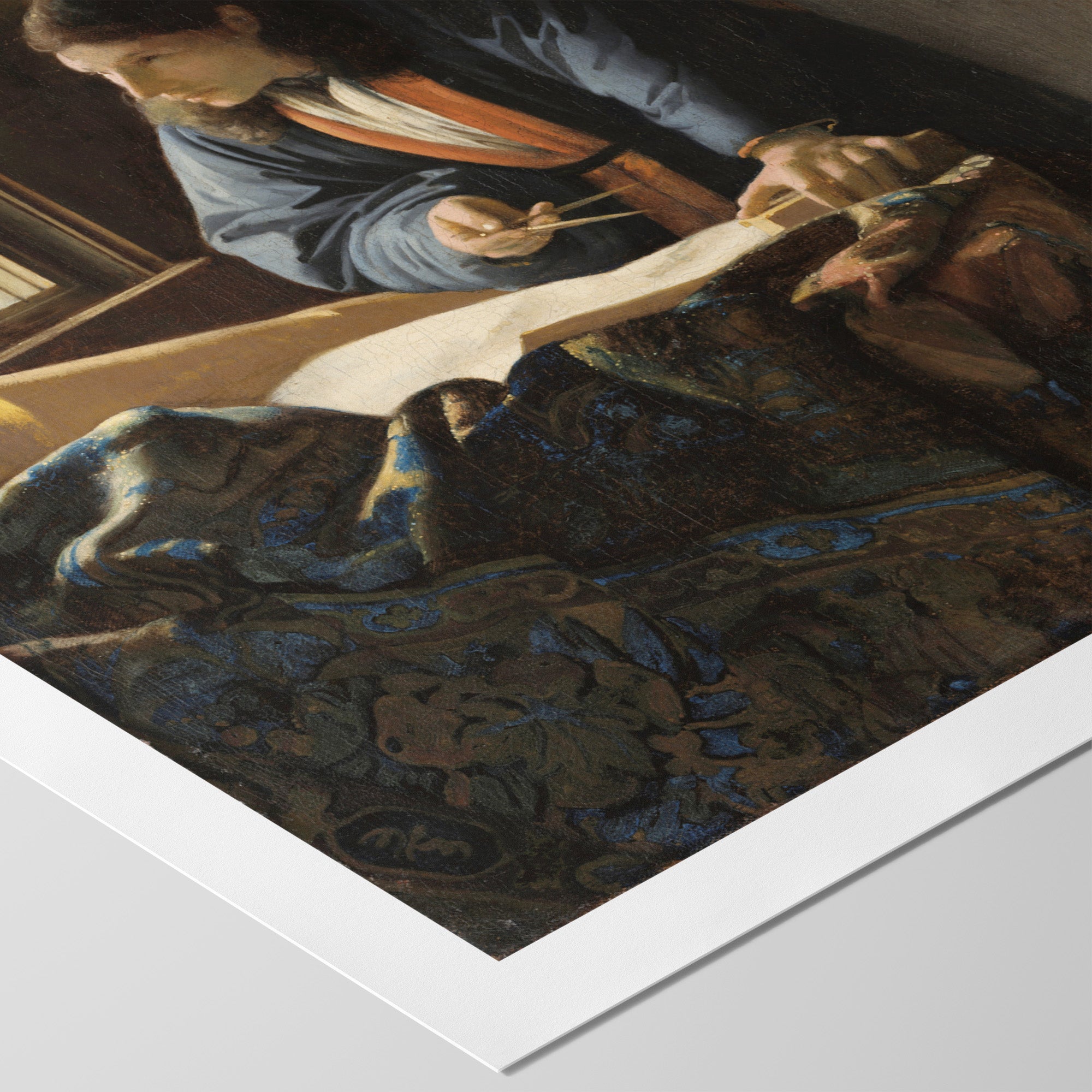 The Geographer (1669) by Johannes Vermeer is one of only three paintings Vermeer signed and dated (the other two are The Astronomer and The Procuress). It is closely paired with The Astronomer, which used the same model in the same dress, and ➵
The Geographer (1669) by Johannes Vermeer is one of only three paintings Vermeer signed and dated (the other two are The Astronomer and The Procuress). It is closely paired with The Astronomer, which used the same model in the same dress, and ➵◰ Canvas Reproductions
⧈ Framed Art Prints -
The Geographer ☷ Vermeer ☶ Canvas
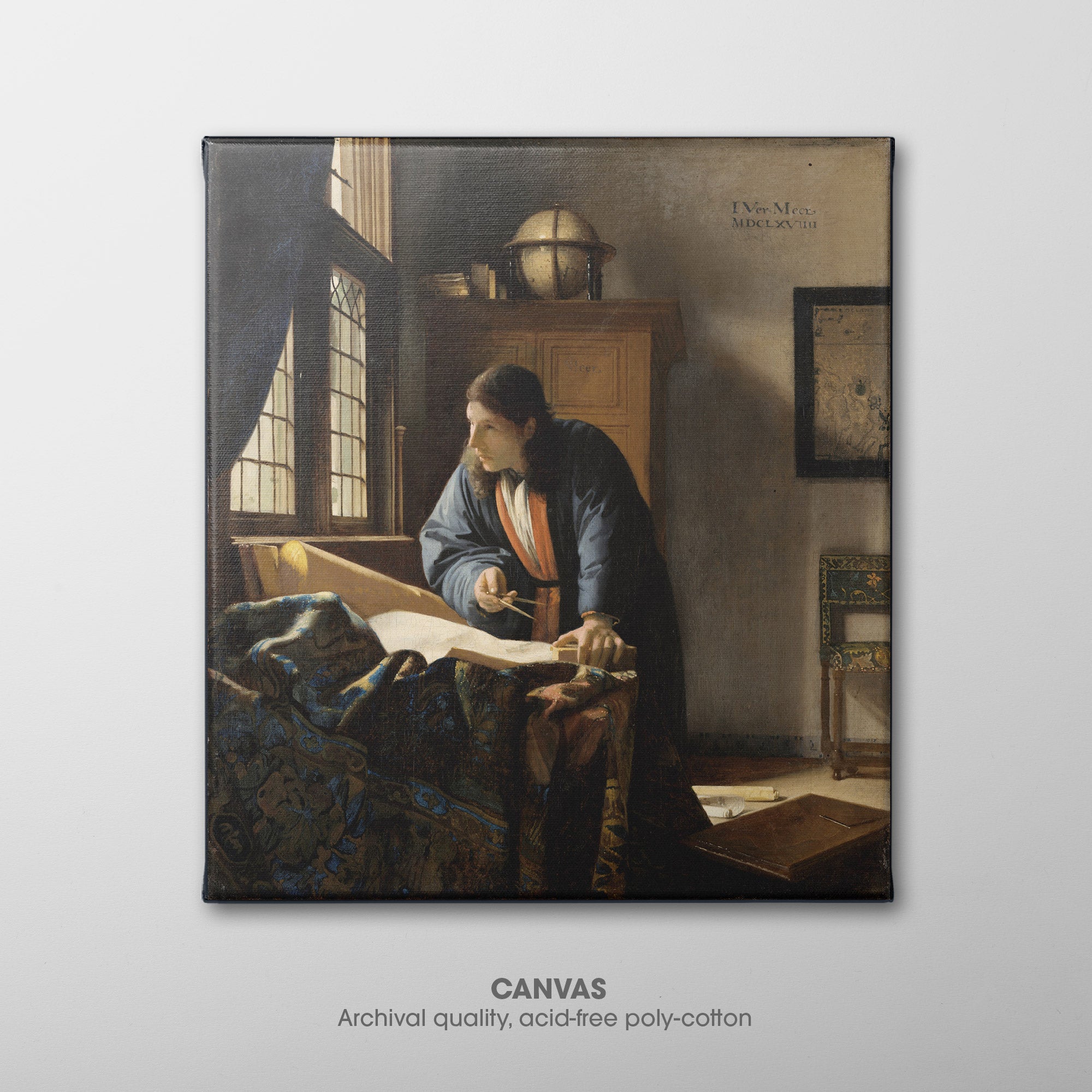
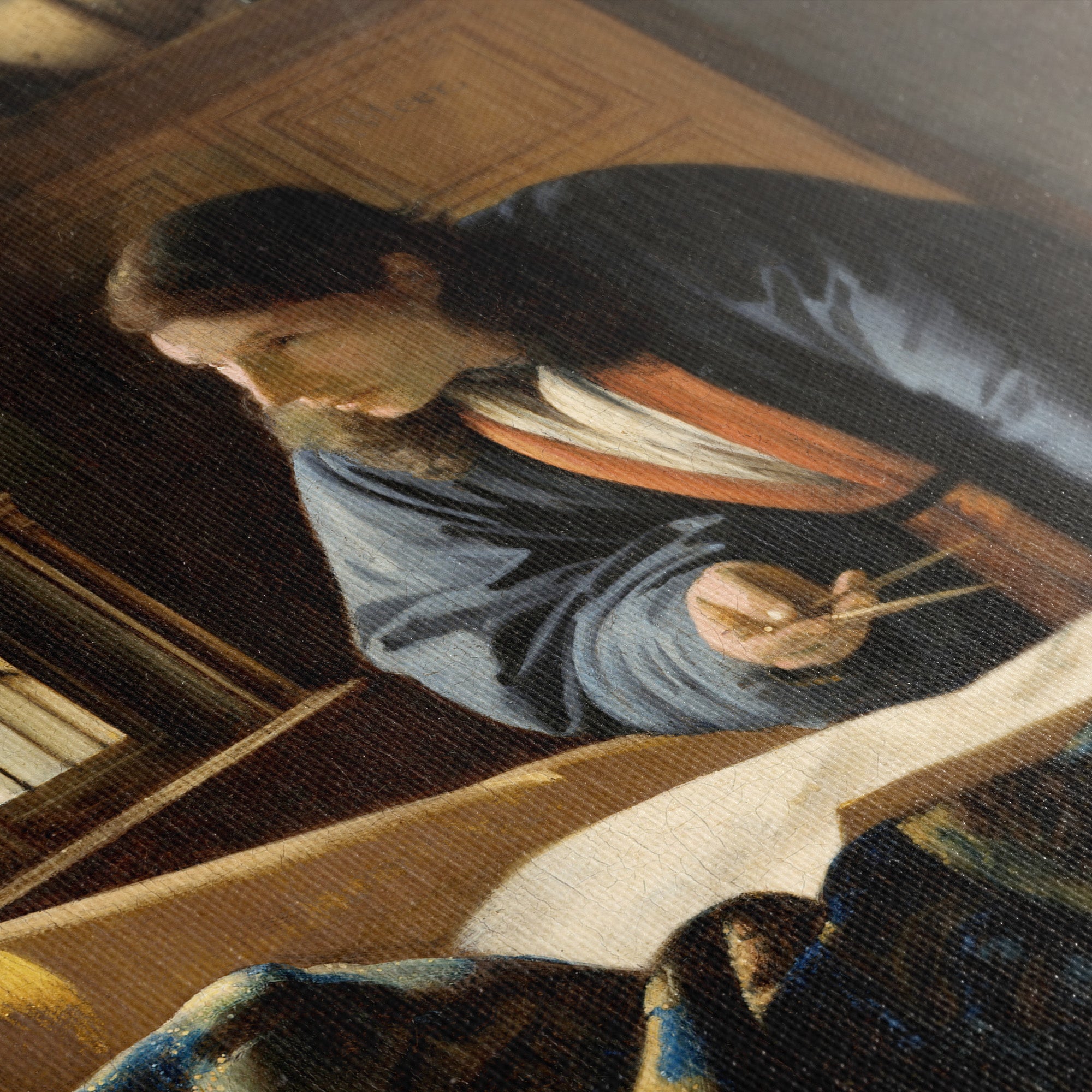 The Geographer (1669) by Johannes Vermeer is one of only three paintings Vermeer signed and dated (the other two are The Astronomer and The Procuress). It is closely paired with The Astronomer, which used the same model in the same dress, and ➵
The Geographer (1669) by Johannes Vermeer is one of only three paintings Vermeer signed and dated (the other two are The Astronomer and The Procuress). It is closely paired with The Astronomer, which used the same model in the same dress, and ➵◰ Canvas Reproductions
⧈ Framed Art Prints -
The Golden Horn, Constantinople ☰ Signac ☲ Art Print
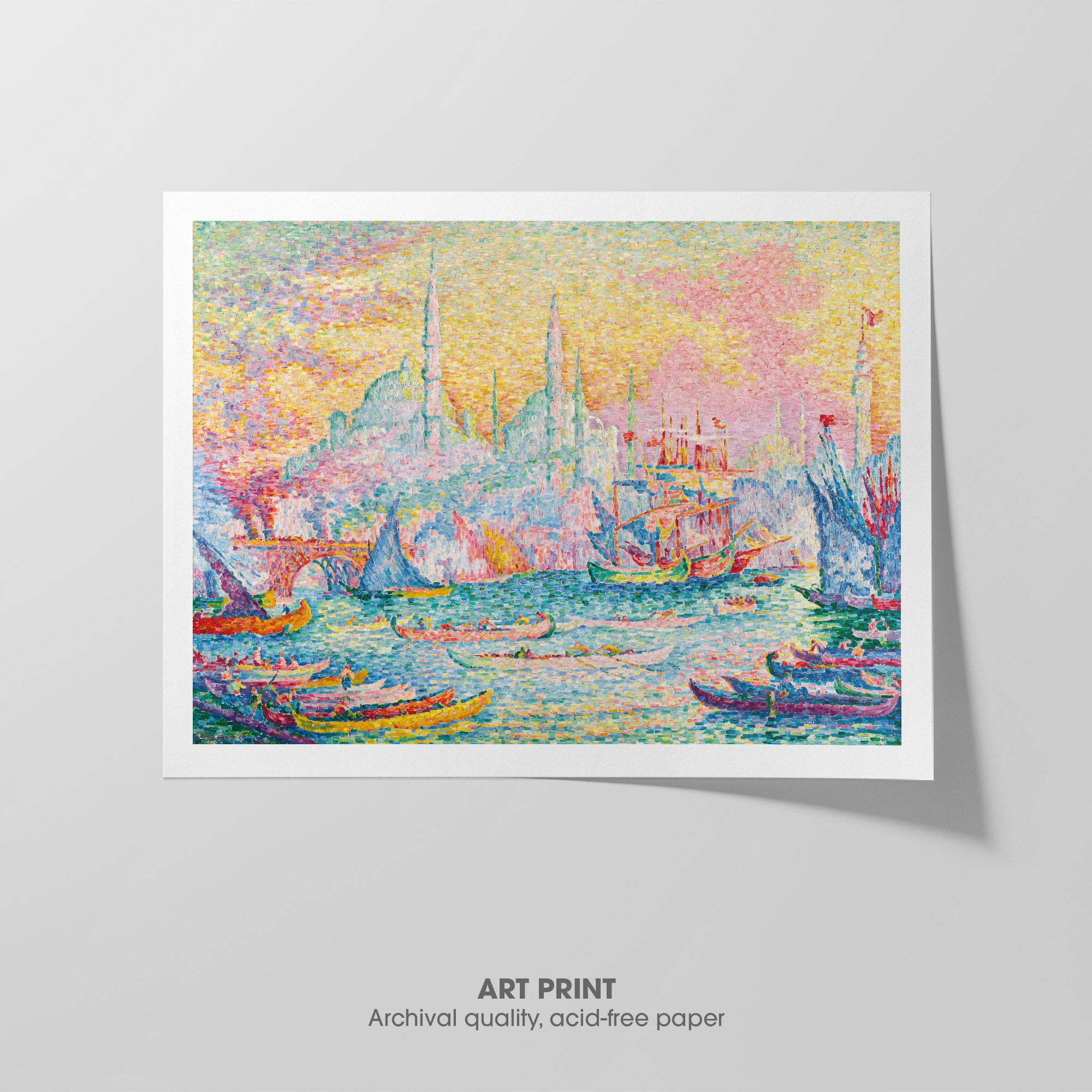
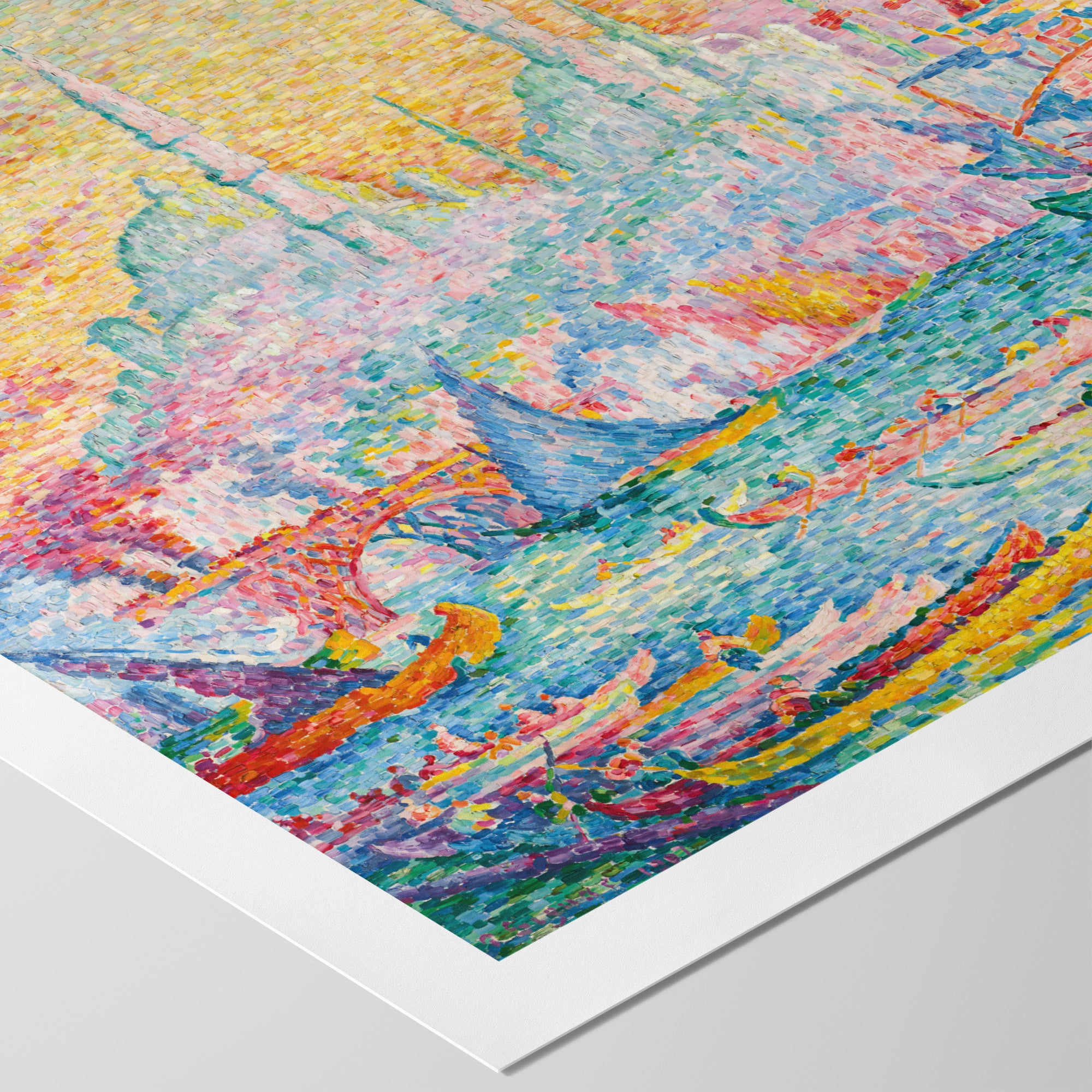 The Golden Horn, Constantinople (1907, La Corne d'Or, Constantinople) by Paul Signac depicts the Golden Horn, the inlet that historically separated Constantinople (present day Istanbul) and kept the peninsula strategically safe from invaders. The harbor is filled with boats, and skyline filled ➵
The Golden Horn, Constantinople (1907, La Corne d'Or, Constantinople) by Paul Signac depicts the Golden Horn, the inlet that historically separated Constantinople (present day Istanbul) and kept the peninsula strategically safe from invaders. The harbor is filled with boats, and skyline filled ➵◰ Canvas Reproductions
⧈ Framed Art Prints -
The Golden Horn, Constantinople ☰ Signac ☲ Canvas
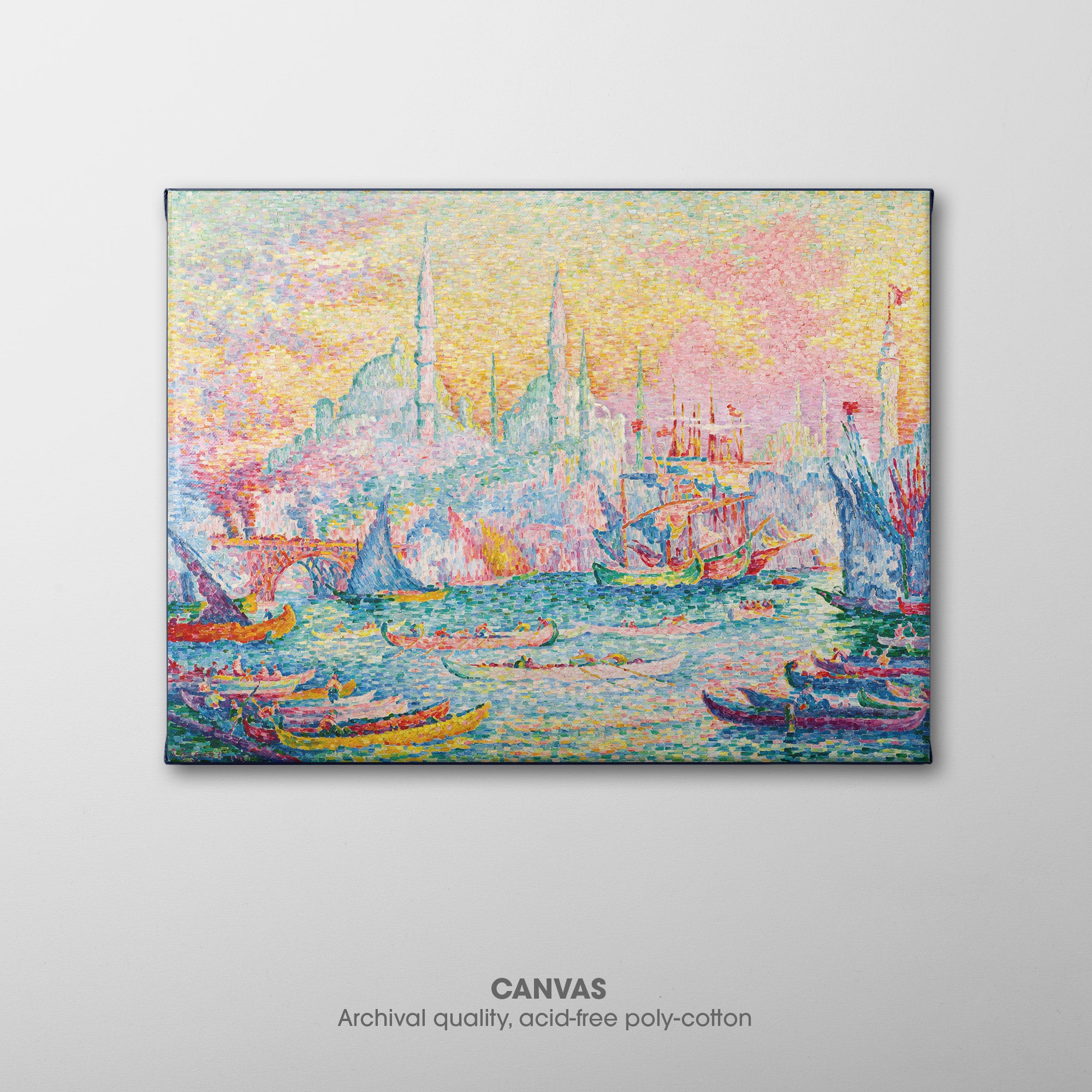
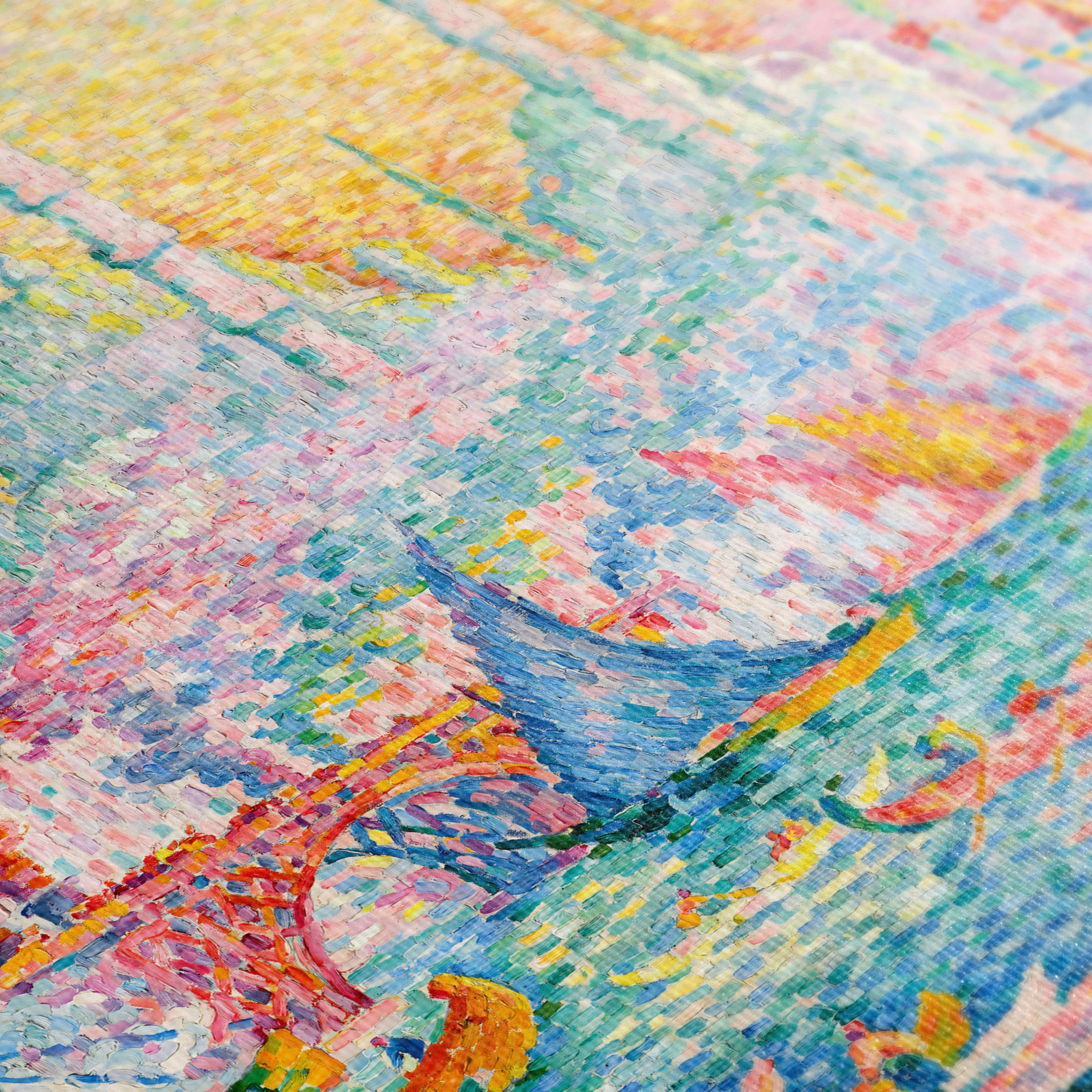 The Golden Horn, Constantinople (1907, La Corne d'Or, Constantinople) by Paul Signac depicts the Golden Horn, the inlet that historically separated Constantinople (present day Istanbul) and kept the peninsula strategically safe from invaders. The harbor is filled with boats, and skyline filled ➵
The Golden Horn, Constantinople (1907, La Corne d'Or, Constantinople) by Paul Signac depicts the Golden Horn, the inlet that historically separated Constantinople (present day Istanbul) and kept the peninsula strategically safe from invaders. The harbor is filled with boats, and skyline filled ➵◰ Canvas Reproductions
⧈ Framed Art Prints -
The Goldfish ☱ Matisse ☵ Art Print
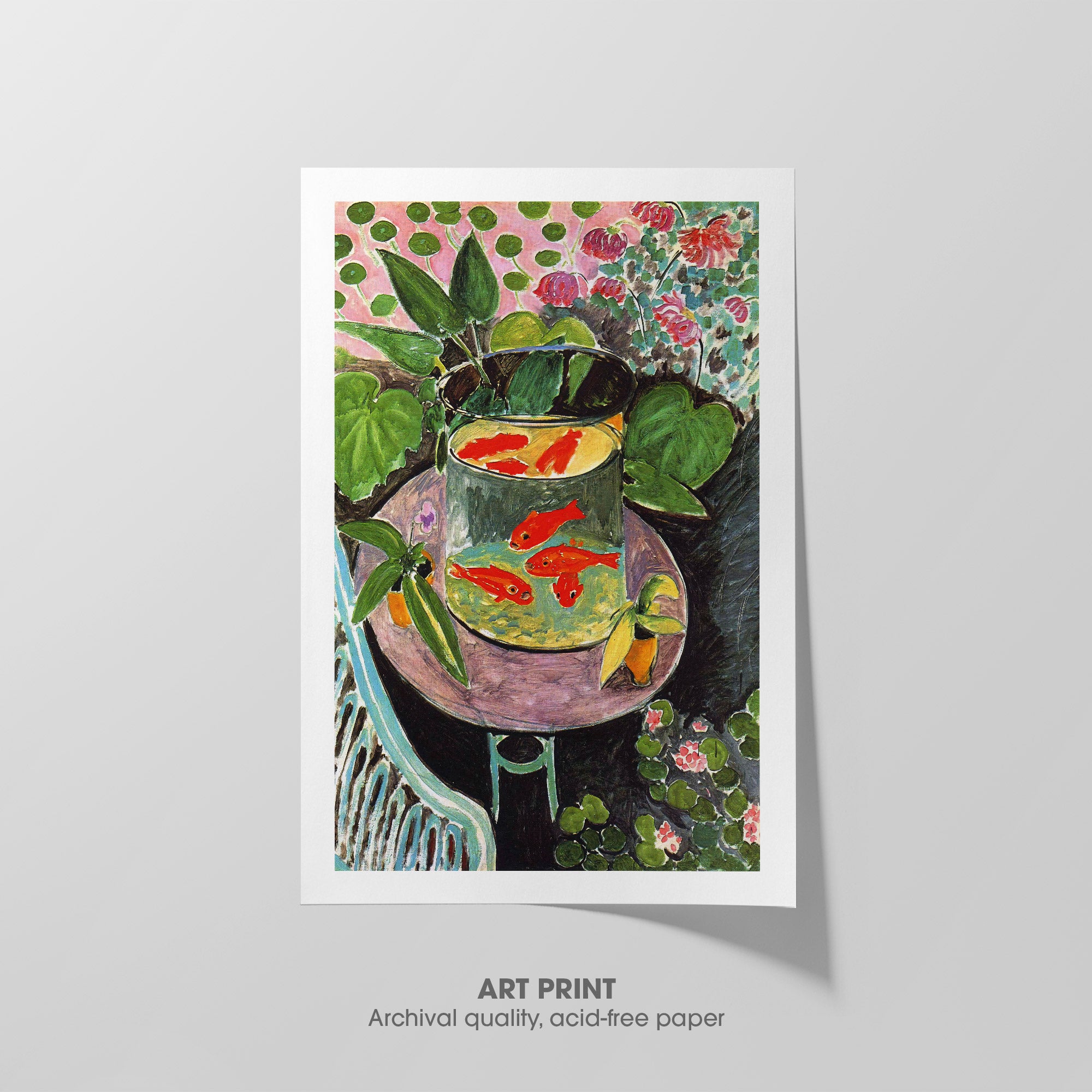
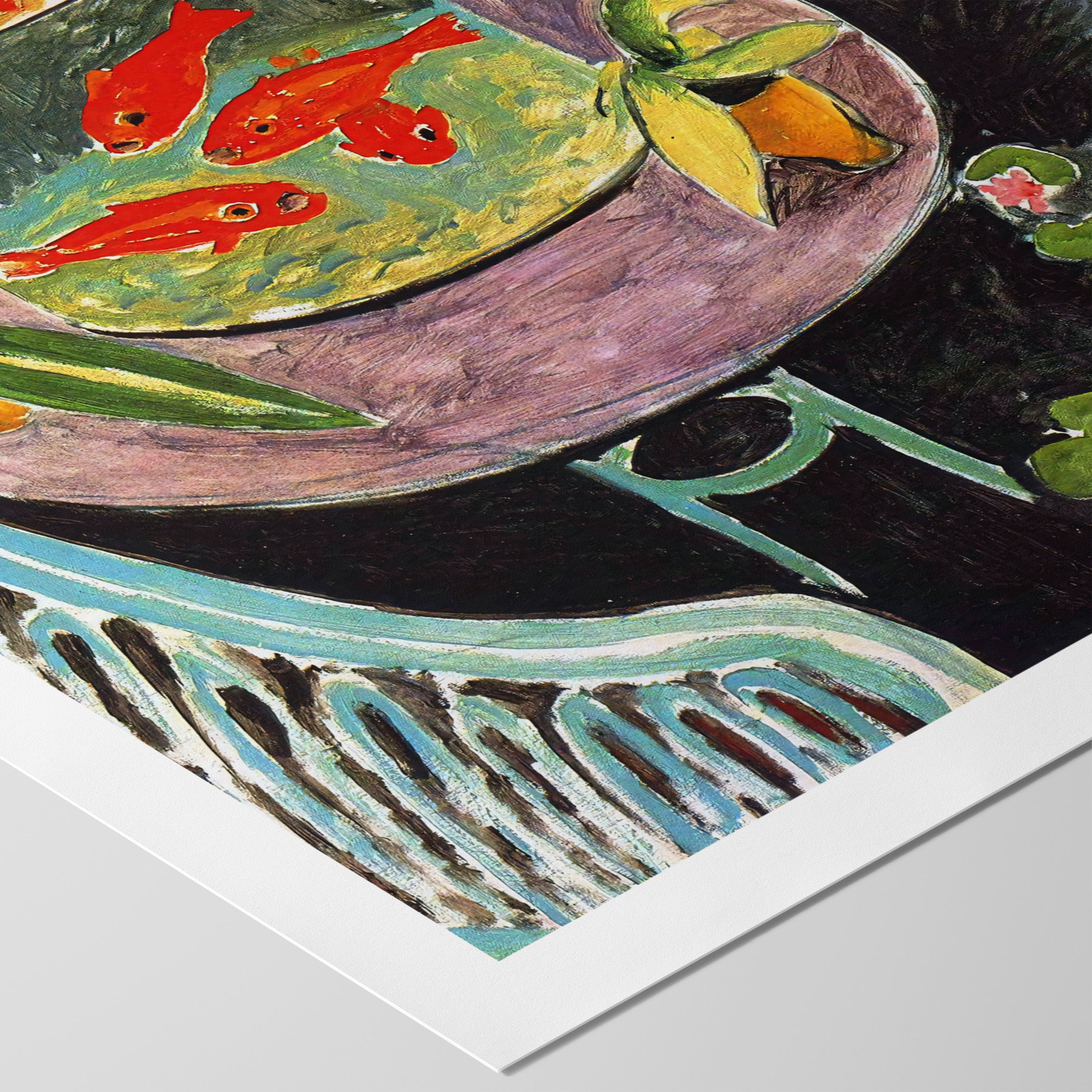 The Goldfish (1912) by Henri Matisse is part of a series that he produced between the spring and early summer of 1912. Goldfish became a recurring subject after his visit to Tangier, Morocco, where he noted how locals would day-dream while gazing ➵
The Goldfish (1912) by Henri Matisse is part of a series that he produced between the spring and early summer of 1912. Goldfish became a recurring subject after his visit to Tangier, Morocco, where he noted how locals would day-dream while gazing ➵◰ Canvas Reproductions
⧈ Framed Art Prints -
The Goldfish ☱ Matisse ☵ Canvas
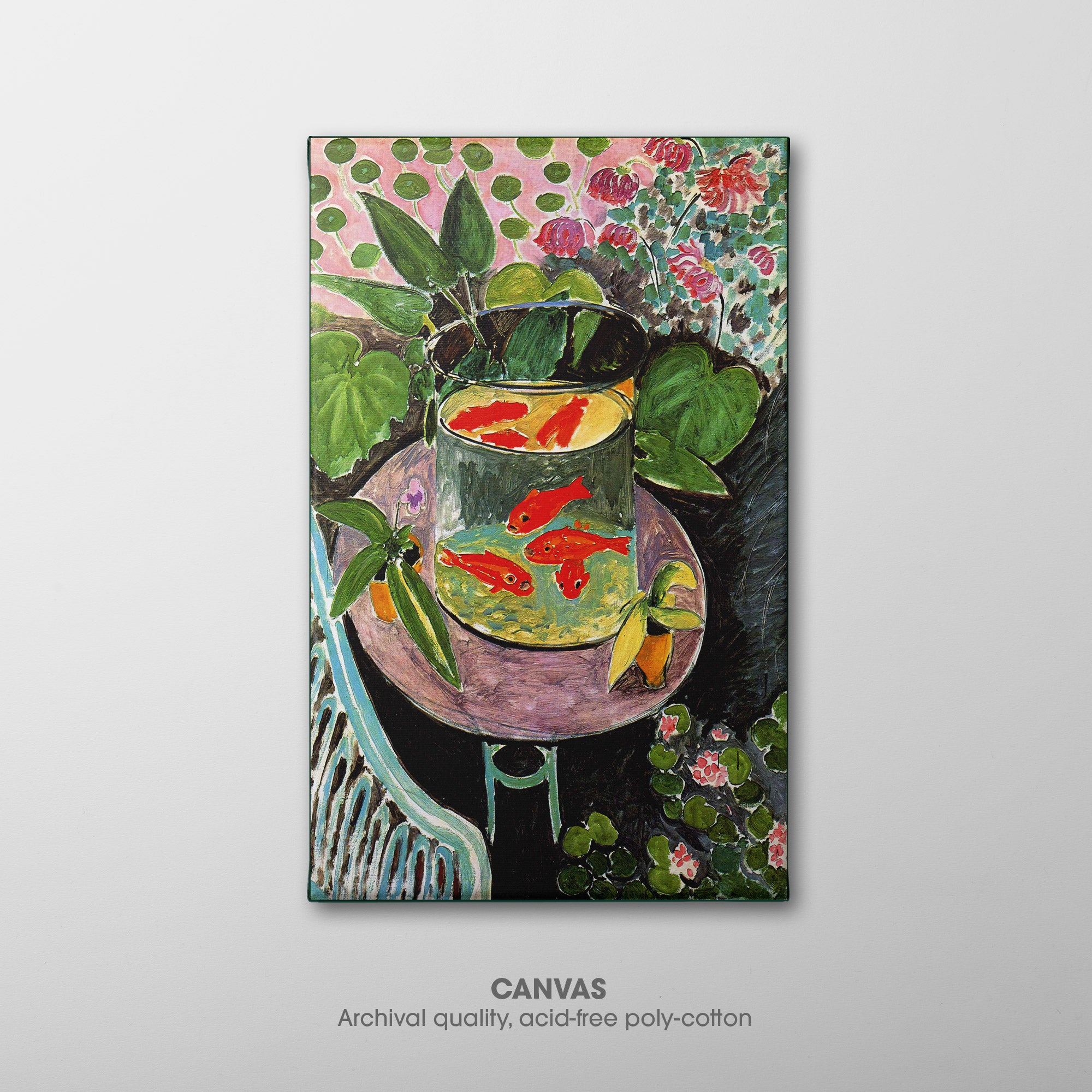
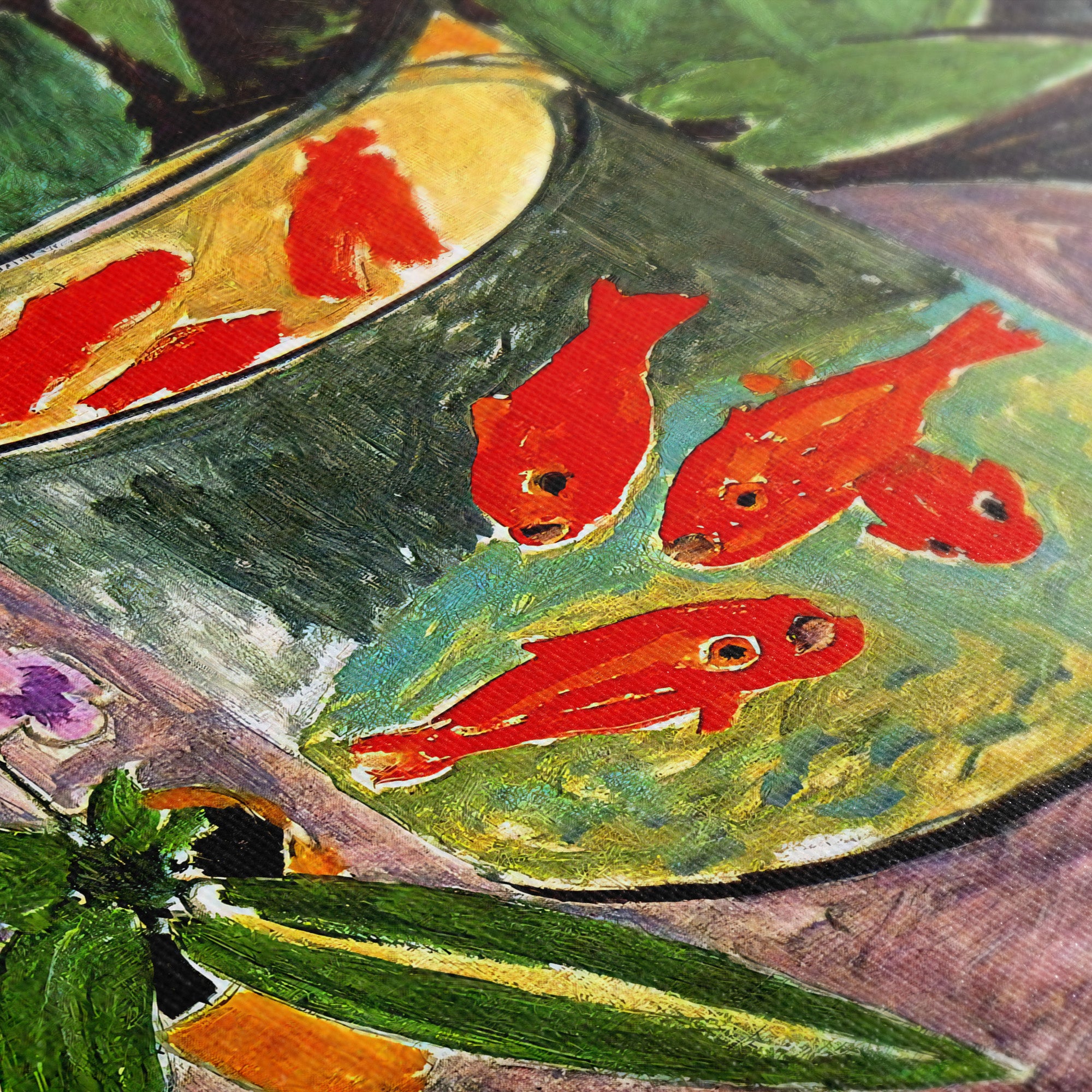 The Goldfish (1912) by Henri Matisse is part of a series that he produced between the spring and early summer of 1912. Goldfish became a recurring subject after his visit to Tangier, Morocco, where he noted how locals would day-dream while gazing ➵
The Goldfish (1912) by Henri Matisse is part of a series that he produced between the spring and early summer of 1912. Goldfish became a recurring subject after his visit to Tangier, Morocco, where he noted how locals would day-dream while gazing ➵◰ Canvas Reproductions
⧈ Framed Art Prints -
The Good Samaritan ☰ Rembrandt ☷ Art Print

 Landscape with the Good Samaritan (1638) by Rembrandt van Rijn depicts the biblical parable of the Good Samaritan, a compassionate figure tending to a wounded traveler on the side of a road. The scene shows the Samaritan bandaging the man's wounds while ➵
Landscape with the Good Samaritan (1638) by Rembrandt van Rijn depicts the biblical parable of the Good Samaritan, a compassionate figure tending to a wounded traveler on the side of a road. The scene shows the Samaritan bandaging the man's wounds while ➵◰ Canvas Reproductions
⧈ Framed Art Prints -
The Good Samaritan ☰ Rembrandt ☷ Canvas

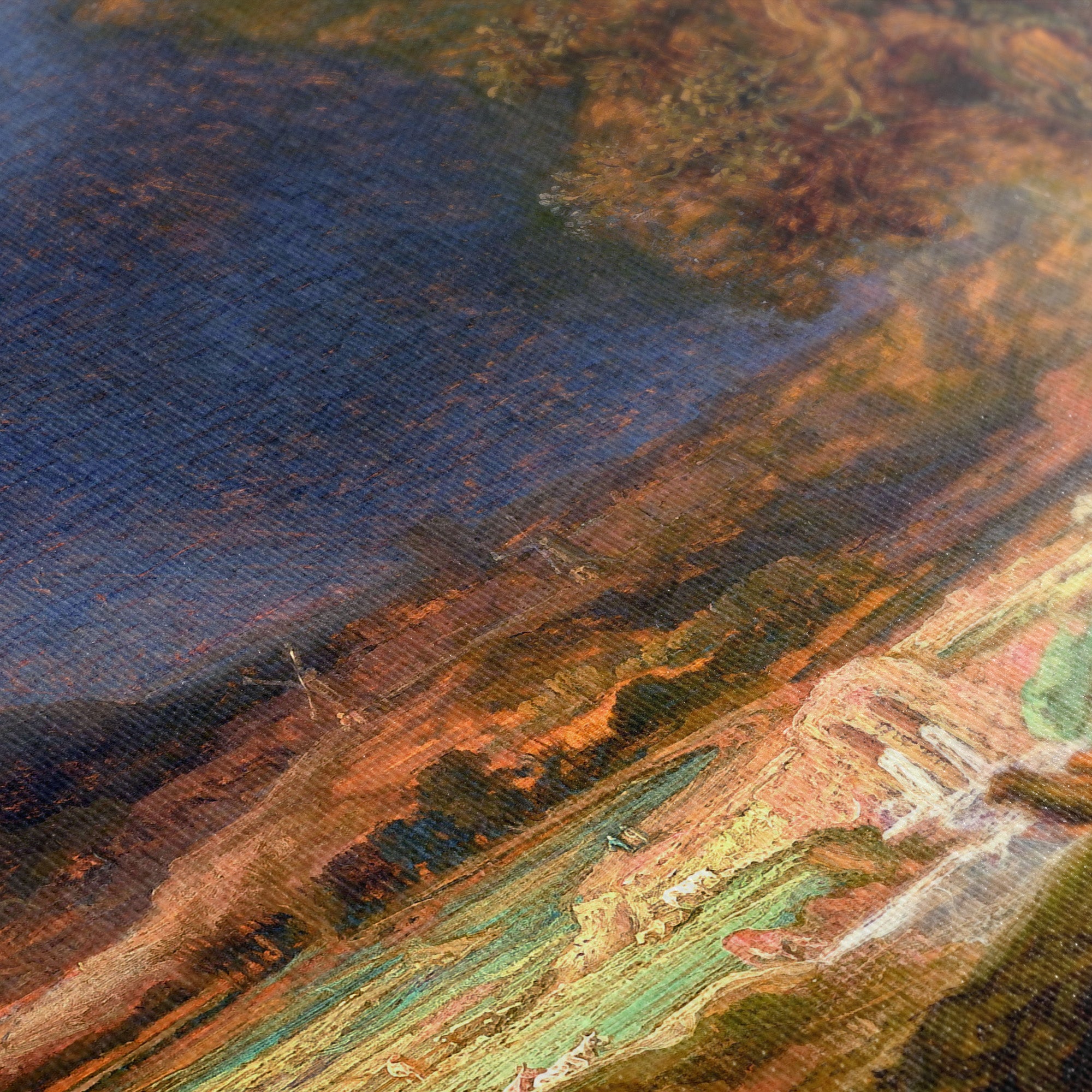 Landscape with the Good Samaritan (1638) by Rembrandt van Rijn depicts the biblical parable of the Good Samaritan, a compassionate figure tending to a wounded traveler on the side of a road. The scene shows the Samaritan bandaging the man's wounds while ➵
Landscape with the Good Samaritan (1638) by Rembrandt van Rijn depicts the biblical parable of the Good Samaritan, a compassionate figure tending to a wounded traveler on the side of a road. The scene shows the Samaritan bandaging the man's wounds while ➵◰ Canvas Reproductions
⧈ Framed Art Prints -
The Great Wave ☶ Hokusai ☵ Art Print

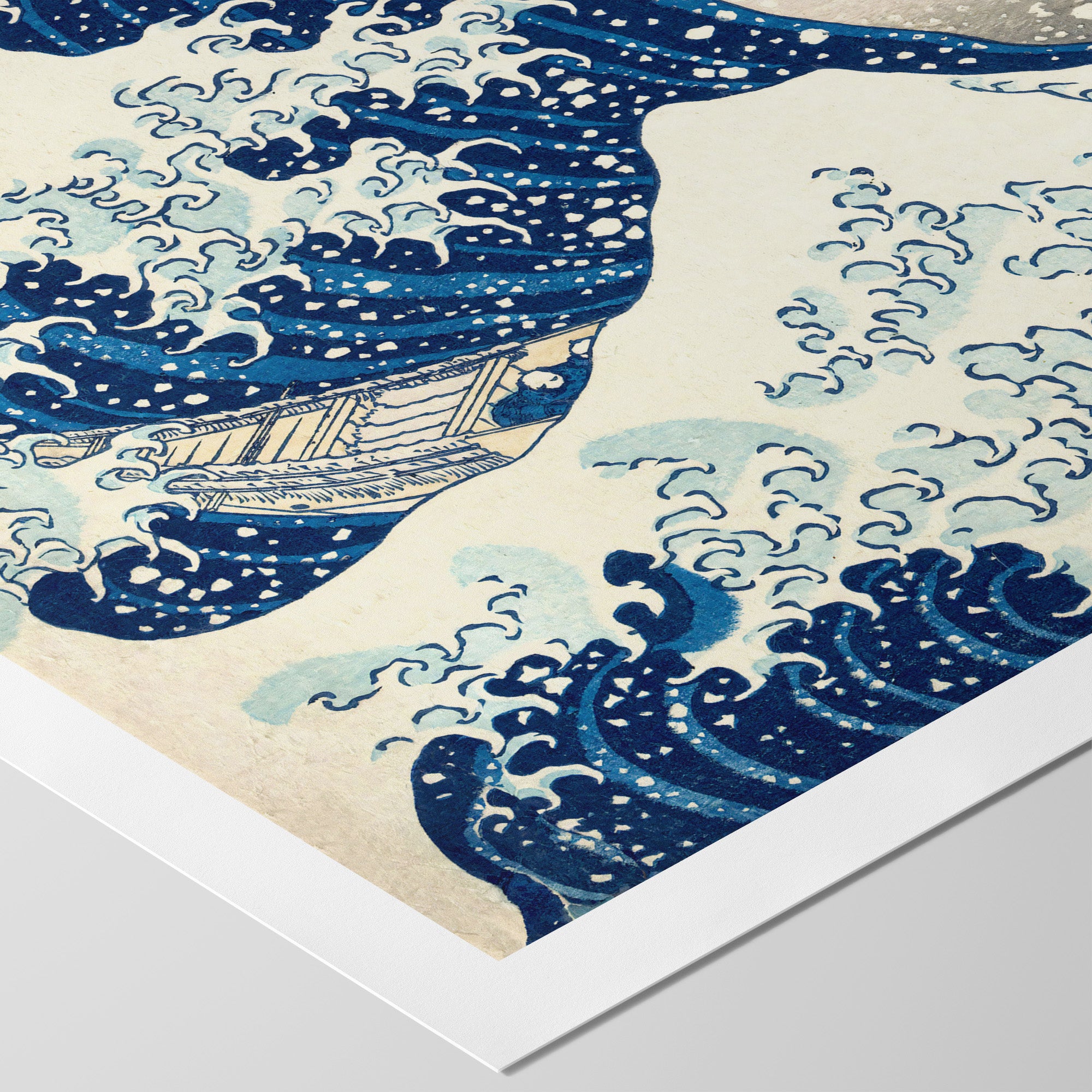 The Great Wave off Kanagawa (1831) by Katsushika Hokusai, also known as Under the Wave off Kanagawa (神奈川沖浪裏, Kanagawa-oki Nami Ura) is a Japanese ukiyo-e woodblock print, and possibly the most reproduced image in the history of art. The print depicts a ➵
The Great Wave off Kanagawa (1831) by Katsushika Hokusai, also known as Under the Wave off Kanagawa (神奈川沖浪裏, Kanagawa-oki Nami Ura) is a Japanese ukiyo-e woodblock print, and possibly the most reproduced image in the history of art. The print depicts a ➵◰ Canvas Reproductions
⧈ Framed Art Prints ⨳ Blankets -
The Great Wave ☶ Hokusai ☵ Canvas
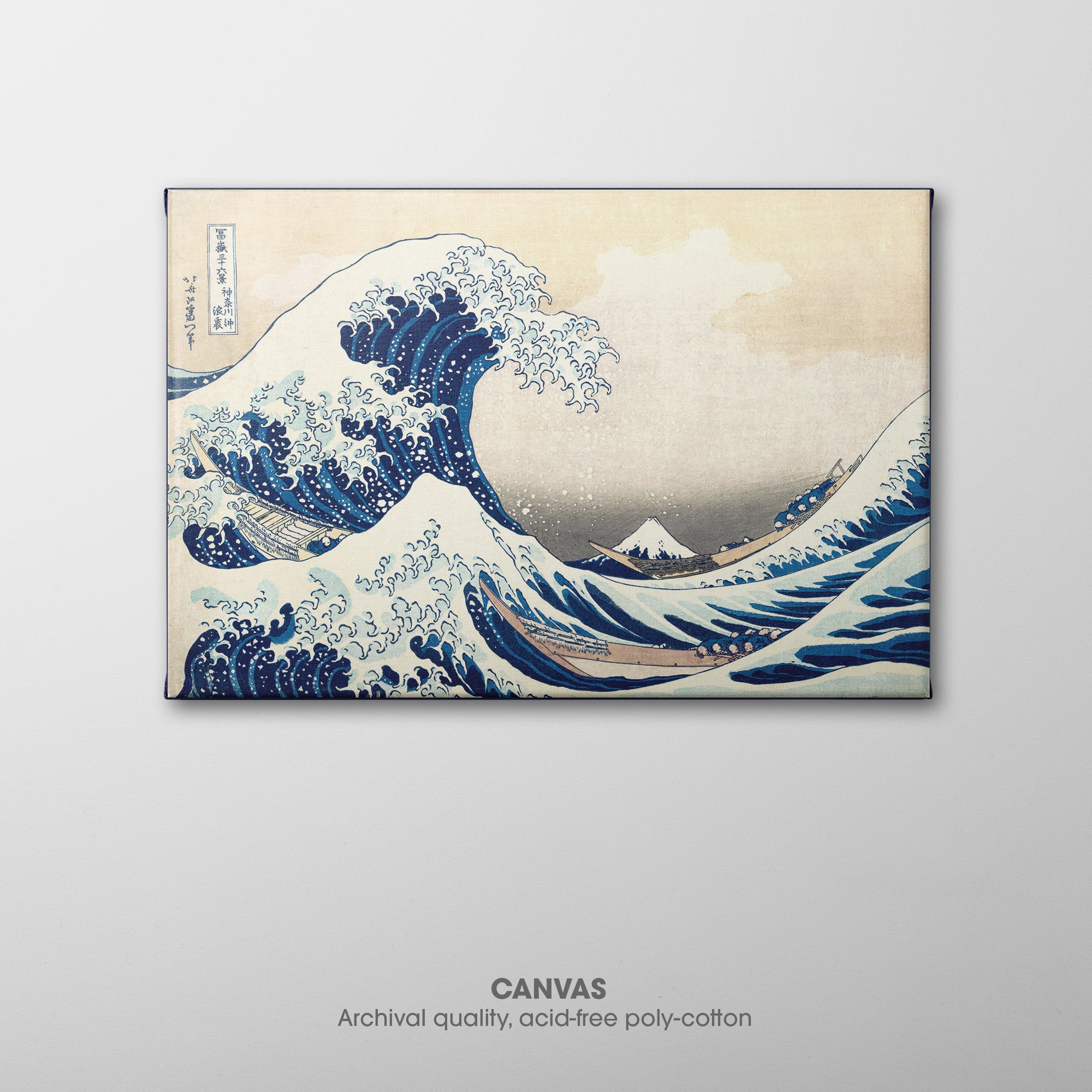
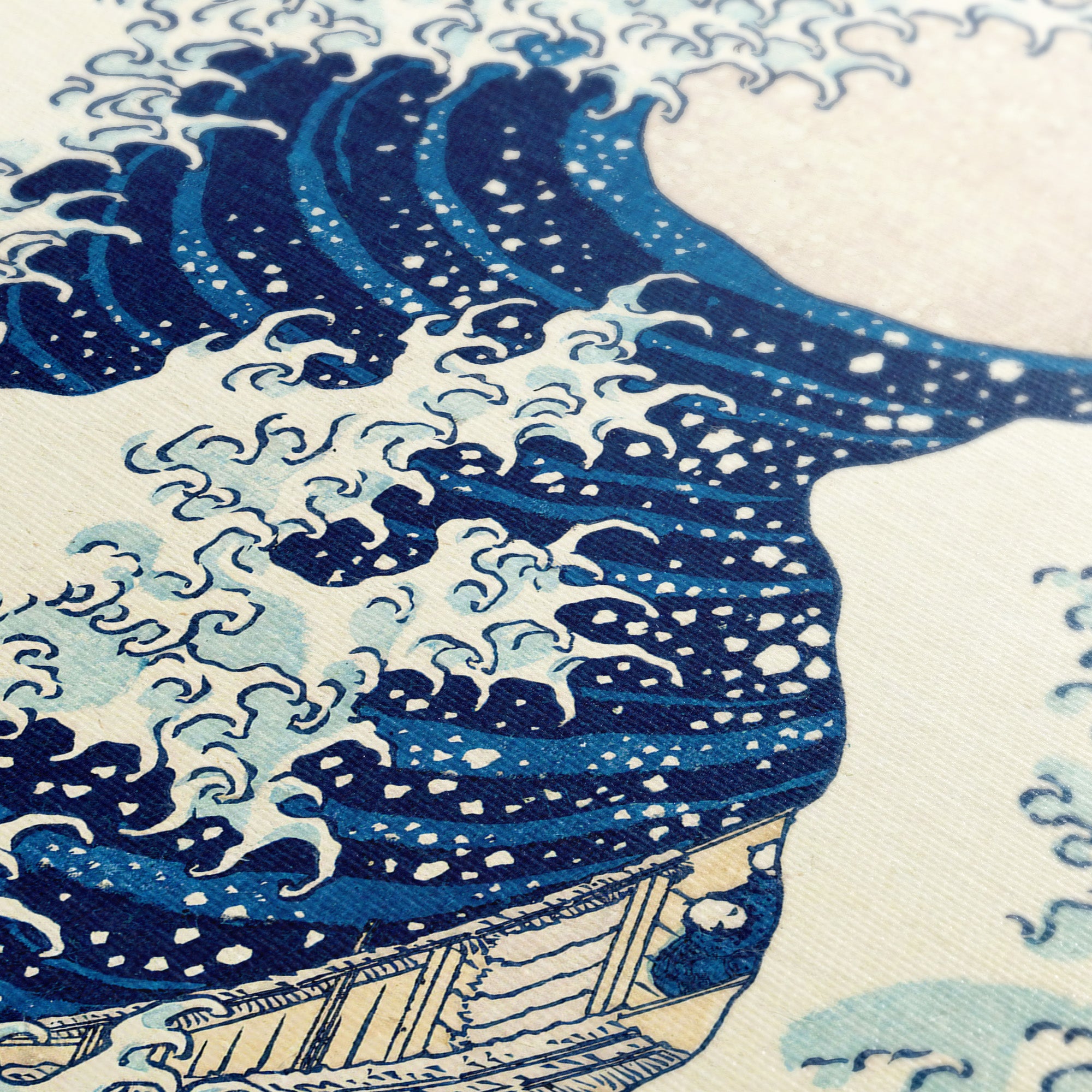 The Great Wave off Kanagawa (1831) by Katsushika Hokusai, also known as Under the Wave off Kanagawa (神奈川沖浪裏, Kanagawa-oki Nami Ura) is a Japanese ukiyo-e woodblock print, and possibly the most reproduced image in the history of art. The print depicts a ➵
The Great Wave off Kanagawa (1831) by Katsushika Hokusai, also known as Under the Wave off Kanagawa (神奈川沖浪裏, Kanagawa-oki Nami Ura) is a Japanese ukiyo-e woodblock print, and possibly the most reproduced image in the history of art. The print depicts a ➵◰ Canvas Reproductions
⧈ Framed Art Prints ⨳ Blankets -
The Great Wave ☶ Hokusai ☵ Woven Art Blanket

 The Great Wave off Kanagawa (1831) by Katsushika Hokusai, also known as Under the Wave off Kanagawa (神奈川沖浪裏, Kanagawa-oki Nami Ura) is a Japanese ukiyo-e woodblock print, and possibly the most reproduced image in the history of art. The print depicts a ➵
The Great Wave off Kanagawa (1831) by Katsushika Hokusai, also known as Under the Wave off Kanagawa (神奈川沖浪裏, Kanagawa-oki Nami Ura) is a Japanese ukiyo-e woodblock print, and possibly the most reproduced image in the history of art. The print depicts a ➵◰ Canvas Reproductions
⧈ Framed Art Prints ⨳ Blankets -
The Green Wave ☵ Monet ☳ Art Print

 The Green Wave (1867, La vague verte) by Claude Monet depicts sailboats on the ocean, capturing the movement and energy of the waves in relation to the ships. An ocean of greens and blues dominates the scene, with a high horizon line ➵
The Green Wave (1867, La vague verte) by Claude Monet depicts sailboats on the ocean, capturing the movement and energy of the waves in relation to the ships. An ocean of greens and blues dominates the scene, with a high horizon line ➵◰ Canvas Reproductions
⧈ Framed Art Prints -
The Green Wave ☵ Monet ☳ Canvas

 The Green Wave (1867, La vague verte) by Claude Monet depicts sailboats on the ocean, capturing the movement and energy of the waves in relation to the ships. An ocean of greens and blues dominates the scene, with a high horizon line ➵
The Green Wave (1867, La vague verte) by Claude Monet depicts sailboats on the ocean, capturing the movement and energy of the waves in relation to the ships. An ocean of greens and blues dominates the scene, with a high horizon line ➵◰ Canvas Reproductions
⧈ Framed Art Prints -
The Hungry Lion ☵ Rousseau ☳ Art Print
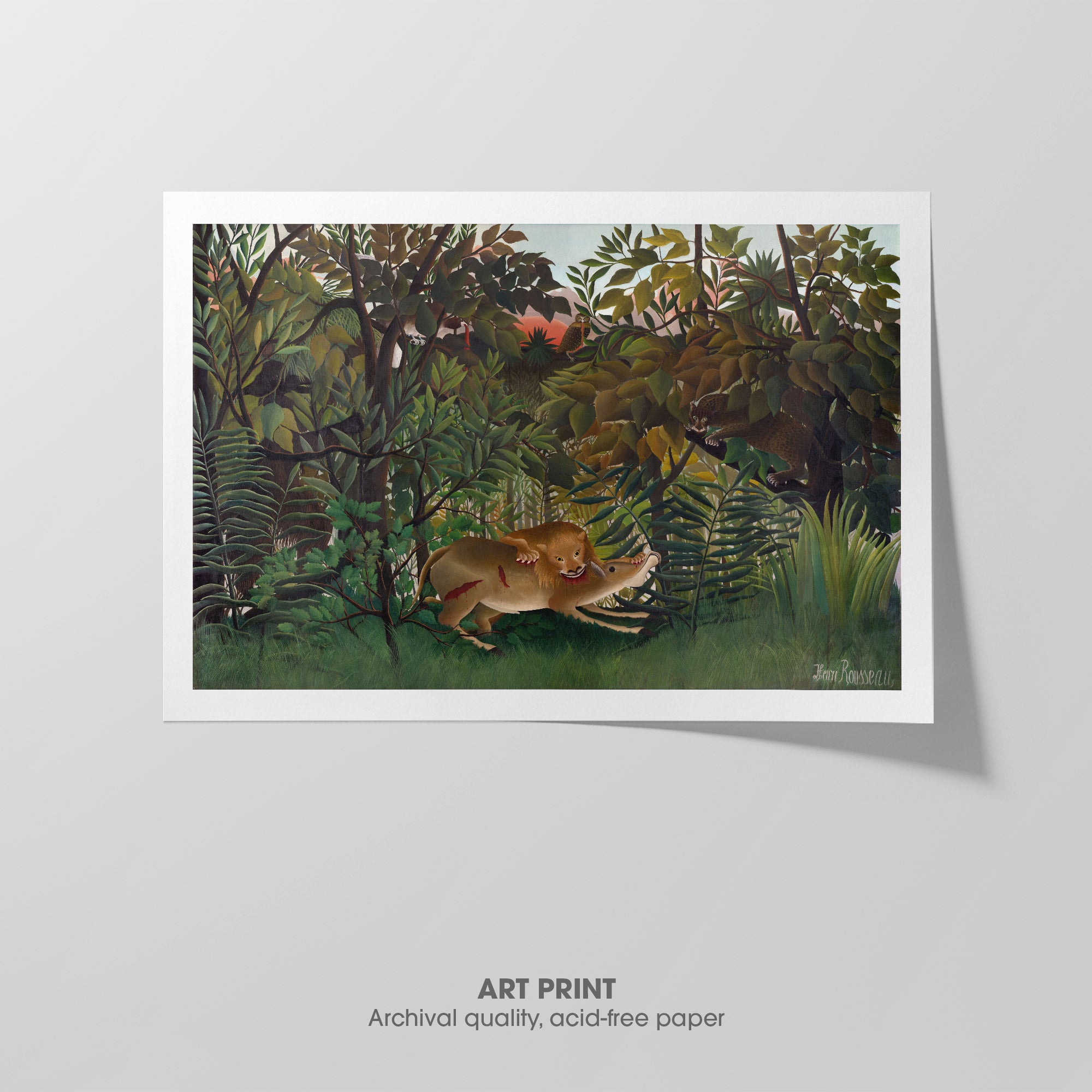
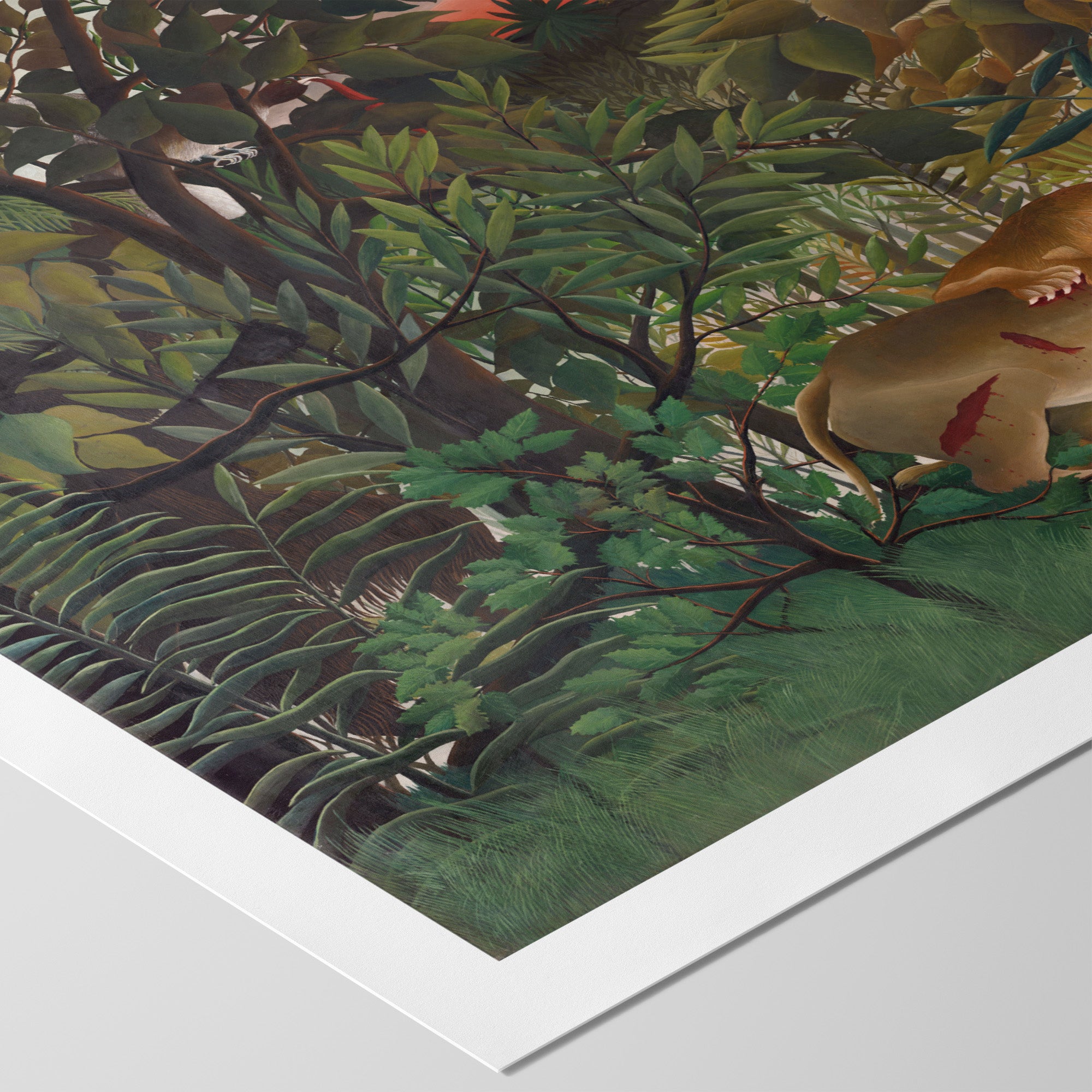 The Hungry Lion Throws Itself on the Antelope (1905, Le lion ayant faim se jette sur l'antilope) by Henri Rousseau depicts a jungle scene of thick green foliage lit by a deep red setting sun. In the foreground, a lion bites into ➵
The Hungry Lion Throws Itself on the Antelope (1905, Le lion ayant faim se jette sur l'antilope) by Henri Rousseau depicts a jungle scene of thick green foliage lit by a deep red setting sun. In the foreground, a lion bites into ➵◰ Canvas Reproductions
⧈ Framed Art Prints -
The Hungry Lion ☵ Rousseau ☳ Canvas
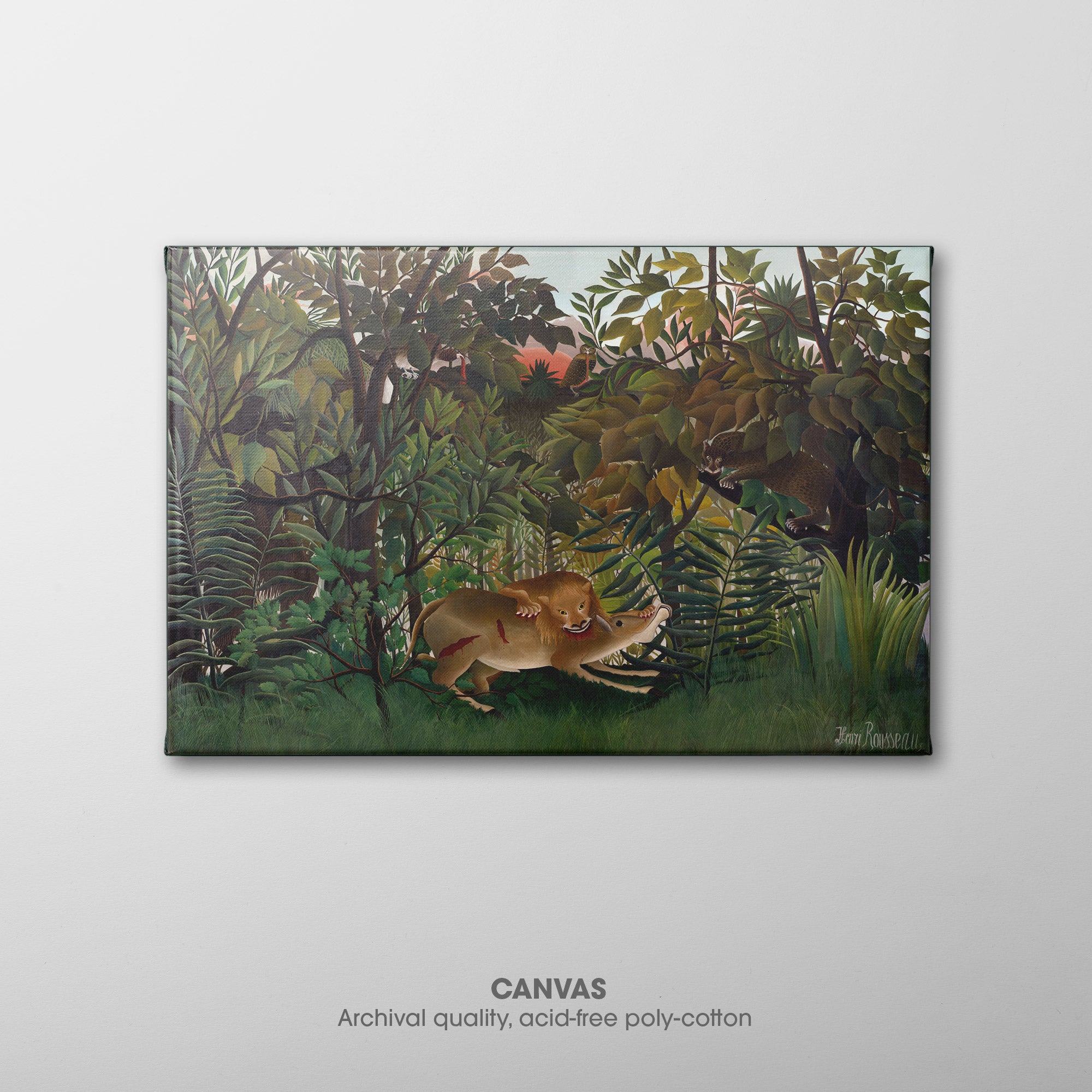
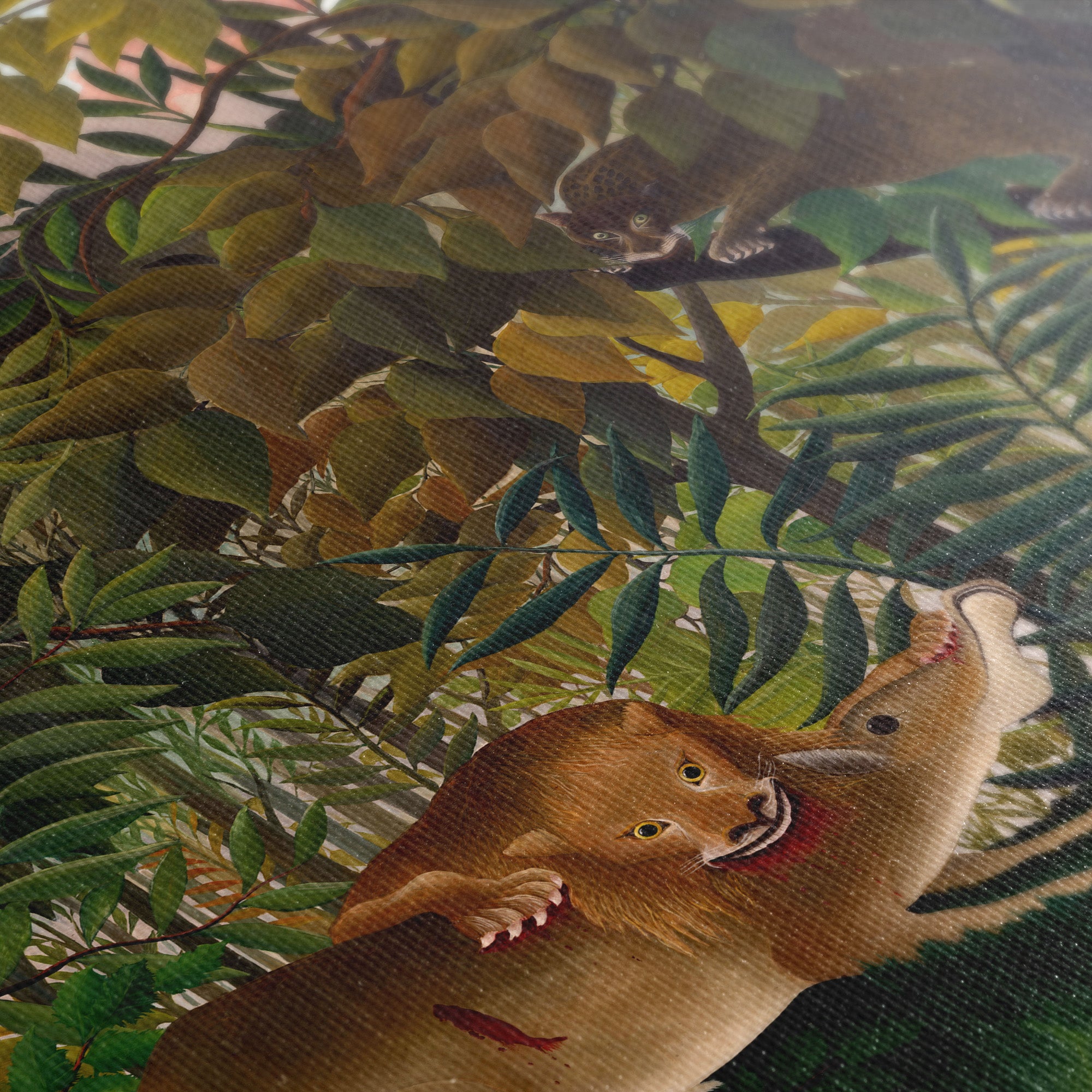 The Hungry Lion Throws Itself on the Antelope (1905, Le lion ayant faim se jette sur l'antilope) by Henri Rousseau depicts a jungle scene of thick green foliage lit by a deep red setting sun. In the foreground, a lion bites into ➵
The Hungry Lion Throws Itself on the Antelope (1905, Le lion ayant faim se jette sur l'antilope) by Henri Rousseau depicts a jungle scene of thick green foliage lit by a deep red setting sun. In the foreground, a lion bites into ➵◰ Canvas Reproductions
⧈ Framed Art Prints


